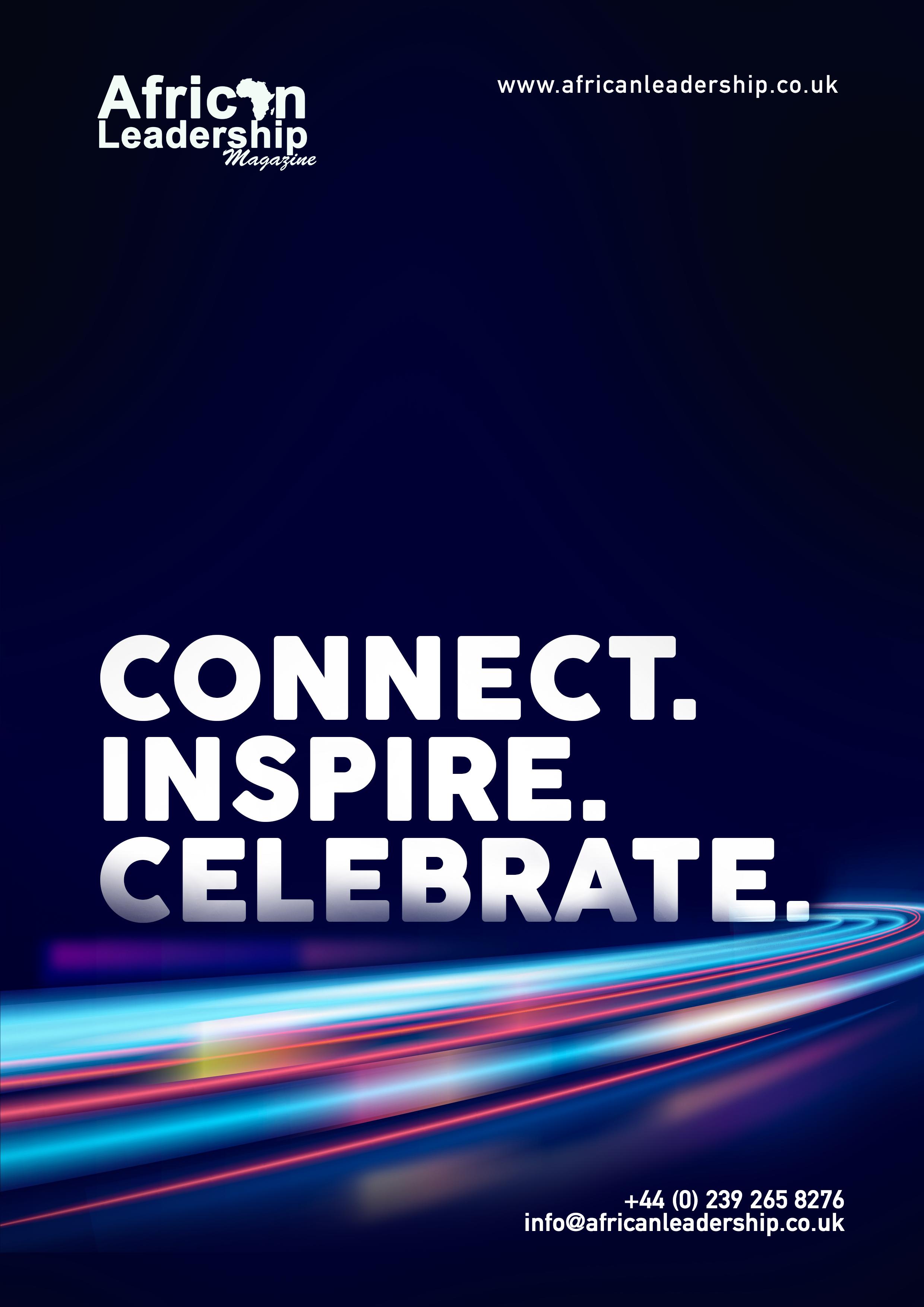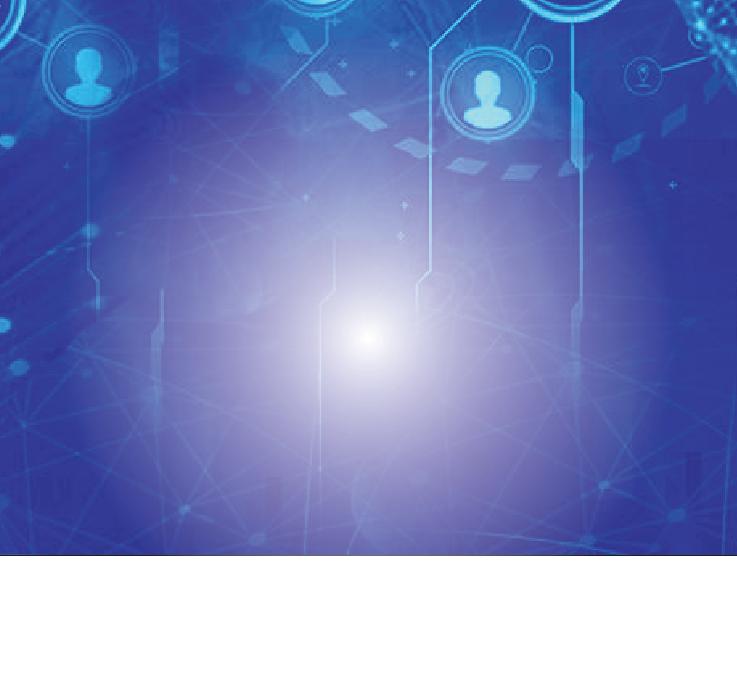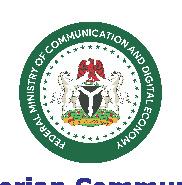








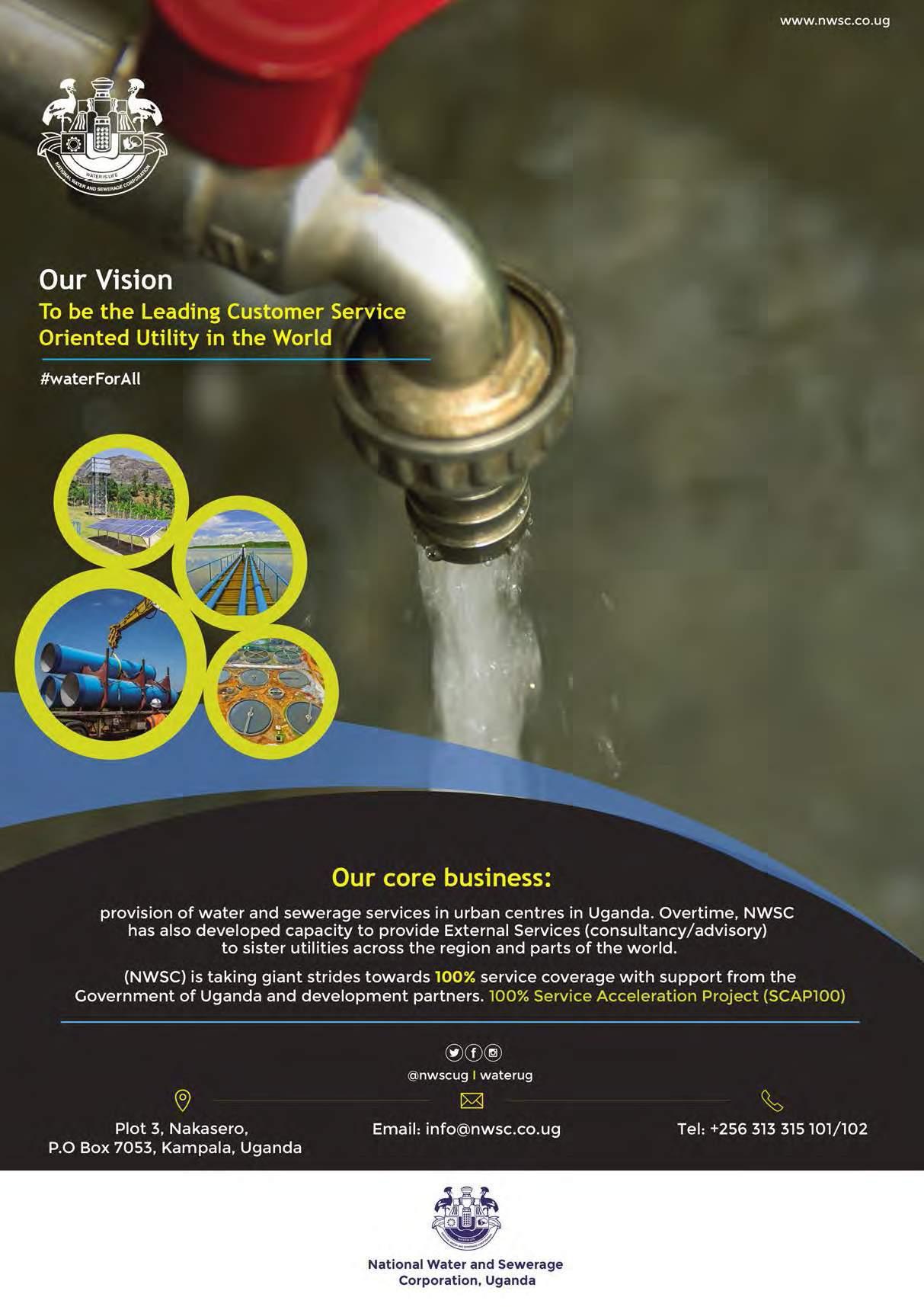











...A Publication of The African Leadership Organization
Ken Giami
Founder & Executive Chairman
Group Managing Editor - Kingsley Okeke editor@africanleadership.co.uk
Group Head, Editorial & Content Development - King Richard king.richards@africanleadership.co.uk
Creatives
Ayeni Adegbola Victor
Design and Brand Consultant - Jehoshaphat Ogujiuba
Bernard Jeremiah
Editorial Board
Peter Burdin, London UK - Chair
Nwandi Lawson, Atlanta USA - Member
Simon Kolawole, Lagos Nigeria - Member
Peter Ndoro, SABC EditorJohannesburg - Member
Frenny Jowi, Nairobi Kenya - Member
Brig. Gen. SK Usman Rtd., Abuja Nigeria - Member
David Morgan, Washington DC USA - Member
Furo Giami - Chief Operating Officer / Executive Director
Dr. Ibifuro Ken-Giami - Chief Operating Officer / Executive Director
Boma Benjy - Iwuoha - Group Head, Finance & Administration
Boma Wesley-Onugha - Group Head, Finance & Administration
Sasha Caton - Manager, UK & European Operations
Ehis Ayere - Group Head, Sales & Business Development
Amana Alkali - Executive Assistant to the Chairman
Samuel M. Elaikwu - Manager, Sales & Business Developments
Happy Benson - Director of Operations Nor th America
Christy Ebong - Head, Research & Admin - Nor th America
Stanley Emeruem - Business Development Manager
Muna Jallow - West African Rep. for The Gambia & Senegal
Oluwatoyin Oyekanmi - Head, South African Bureau
Bernard Adeka - Head, Nigeria SS/SE
Ngozi Nwokolo - Executive Assistant to the Chairman
CORPORATE HEADQUARTERS
Por tsmouth Technopole, Kingston Crescent, Por tsmouth PO2 8FA , United Kingdom; t: 44 23 9265 8276 | fax: +44 (0)23 9265 8201 | e: info@africanleadership.co.uk w | www.africanleadershipmagazine.co.uk
AFRICA & REGIONAL REPRESENTATIVES
Abuja Accra Atlanta Banjul Bujumbura Freetown Johannesburg London Monrovia Nairobi Washington DC
ISSN 2006 - 9332
While great care has been taken in the receipt and handling of materials, production and accuracy of content in the magazine, the publishers will not take responsibility for views expressed by the writer
JOIN THE CONVERSATION
www.africanleadershipmagazine.co.uk
FOLLOW US ON SOCIAL MEDIA


Facebook : African Leadership Magazine

Twitter : @AfricanLM
Instagram: @africanleadershipmag
LinkedIn: African Leadership Magazine

YouTube: African Leadership Magazine
...Identifying, Celebrating & Enabling Excellence in Africa

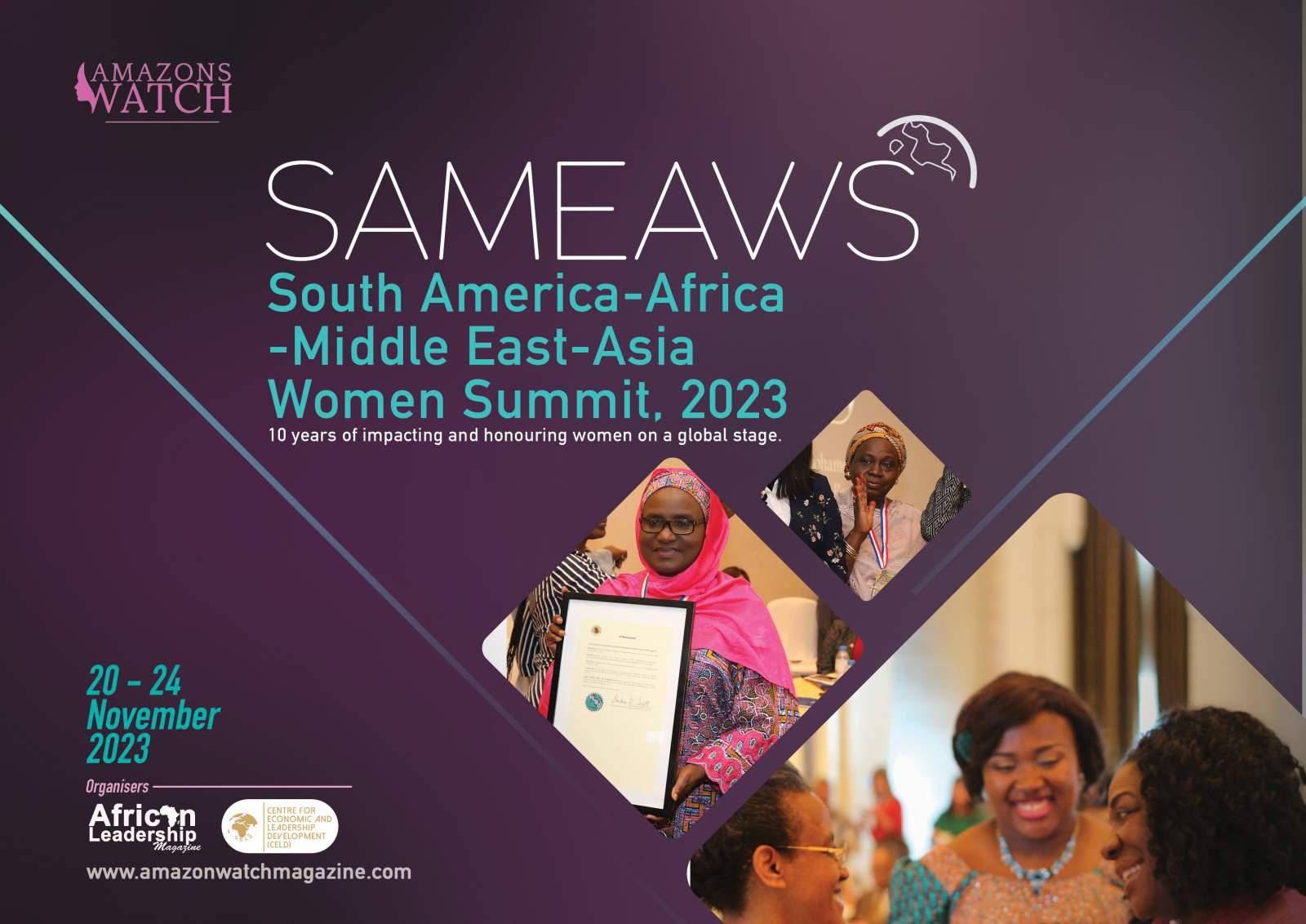
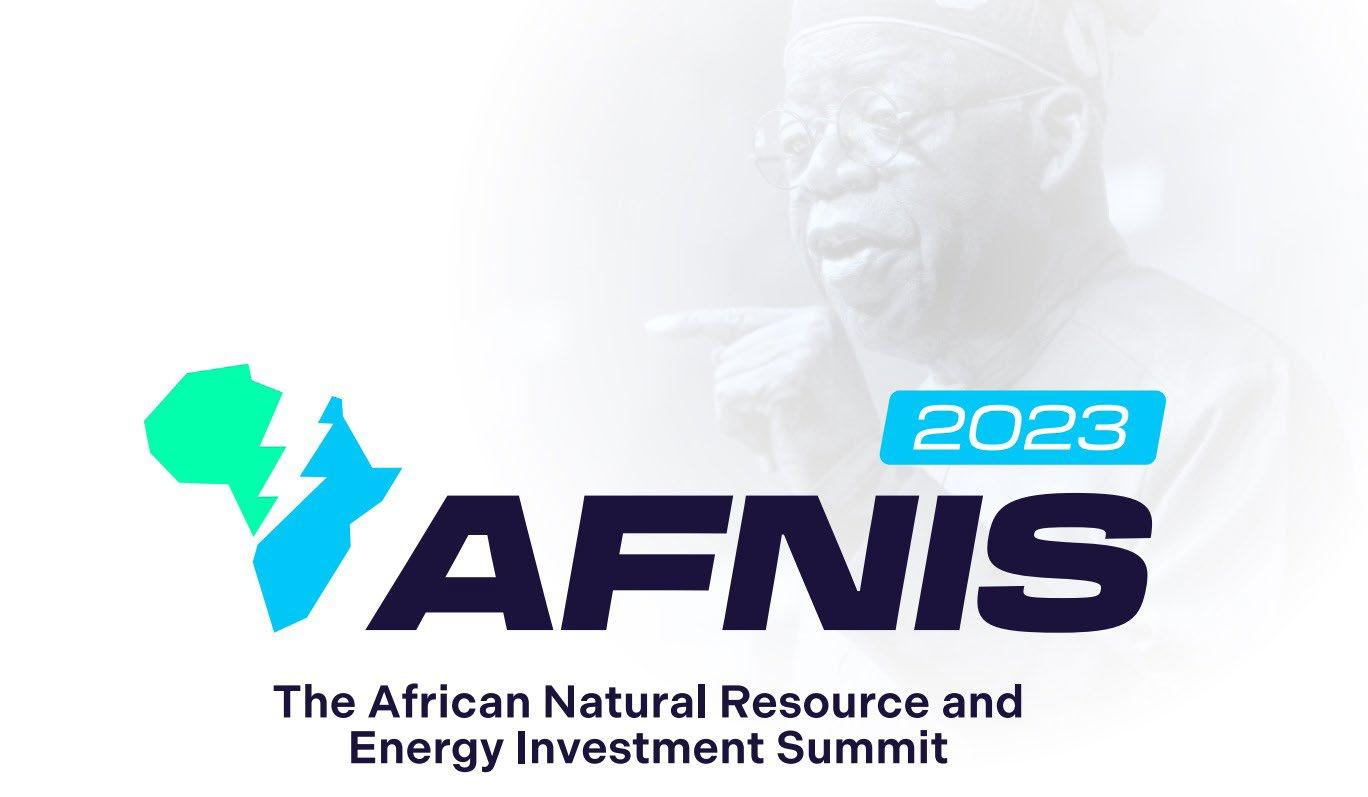
26
46 50
Olukayode Pitan: A Doyen of Nigeria’s Economic Transformation
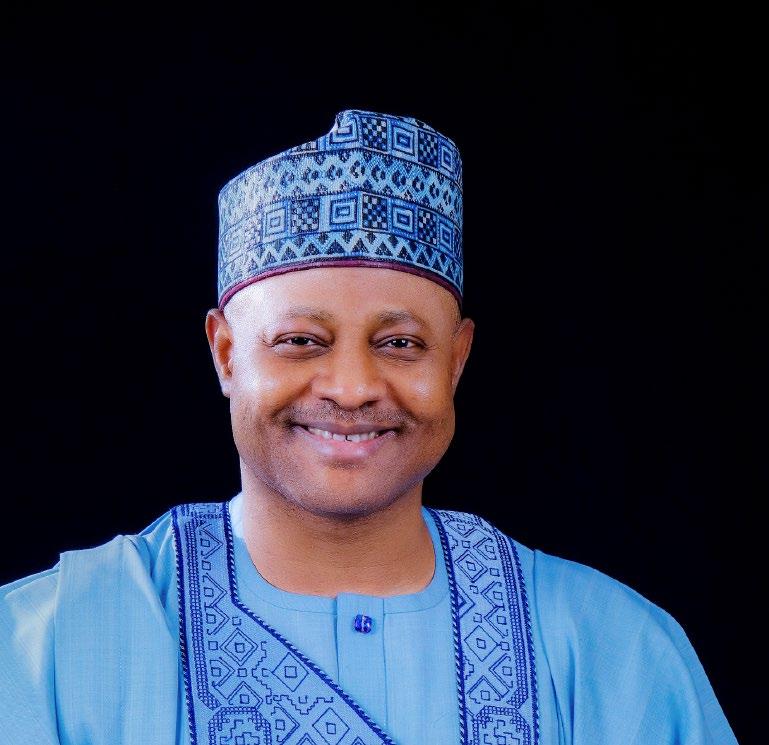
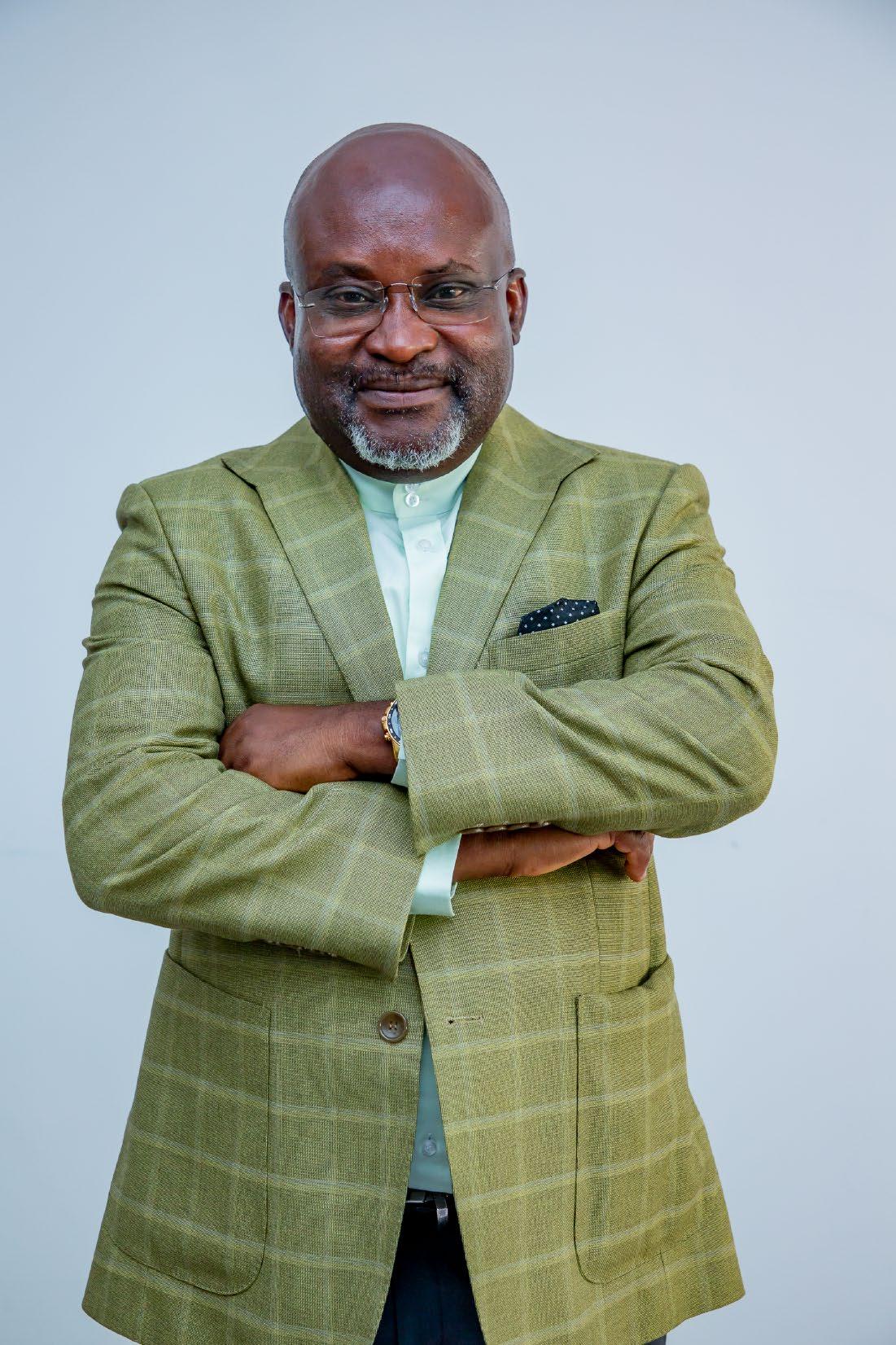
Africa Regional Development: Dr. Monteiro’s Vision for Modernizing Angola’s Social Security System and Enhancing Financial Stability
Building Bridges: Ambassador Kholostenko’s Blueprint for Powerful Ukrainian-Nigerian Collaboration
58
Rejigging Healthcare: Everight Diagnostic Sets New Quality Standards in Medical Diagnostics
32
Diamonds and Dedication: The Inspiring Leadership of Dr. Benedito Paulo Manuel
76 40
Mauritius; A Prime Investment Destination: EDB Chief Unveils Unique Advantages
16
www.africanleadershipmagazine.co.uk
34 76
16 34 66
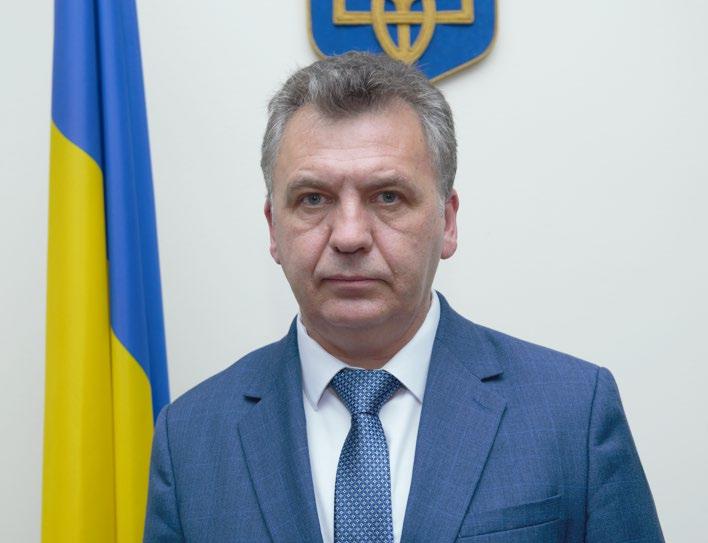
Prioritizing Progress and Prosperity: A Conversation with Kaduna State Governor, Senator Uba Sani
The Economic Triumph of Mauritius: Insights from Prime Minister Pravind Kumar Jugnauth
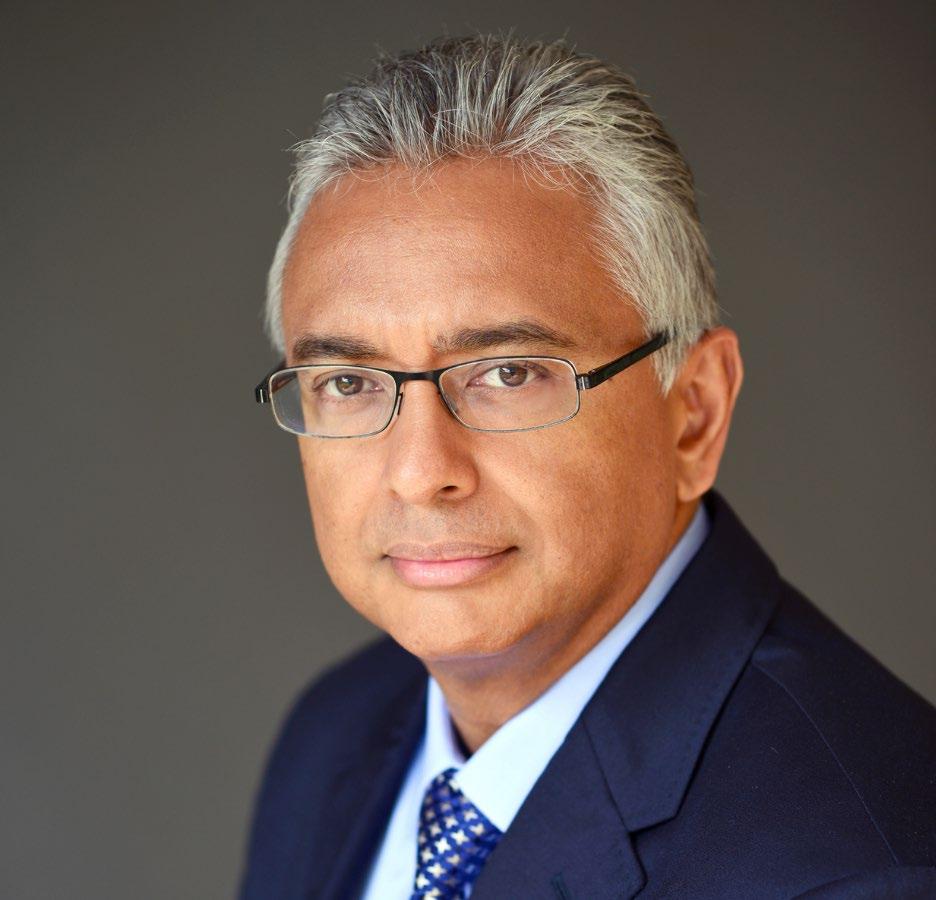
Dr. Nabhit Kapur: Leading the Way in Mental Health and Fund Development
Balancing Profit and Purpose: Etu Energias Angola’s Impactful Journey
Diplomatic Dilemma: Assessing Francophone Africa’s New Resistance Against France
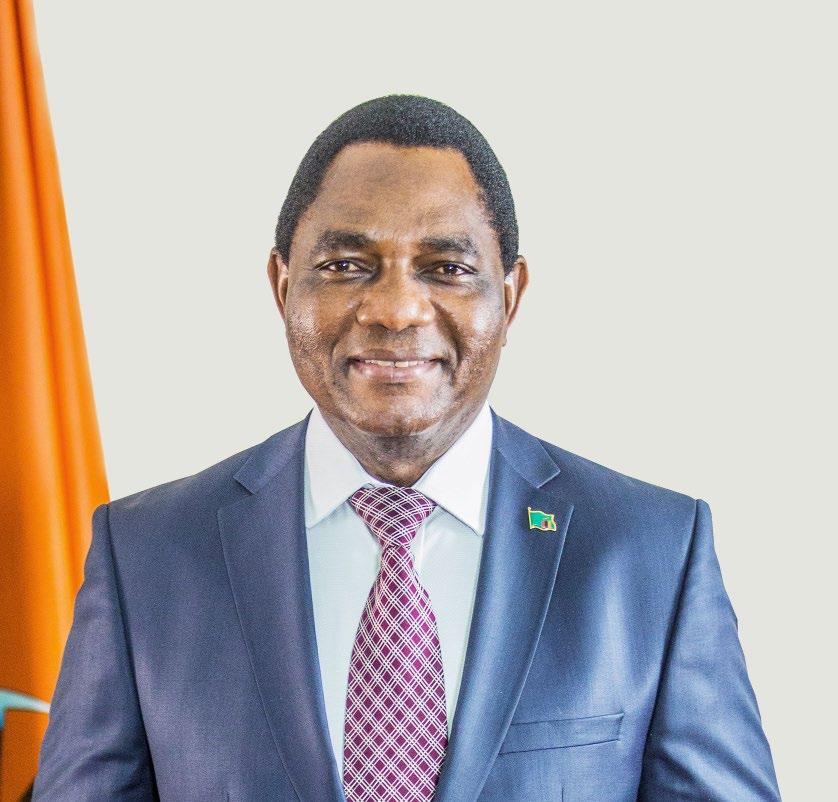
80
74 70 56
From Banking to Empowerment: Mary Mumba’s MSMEs Visionary Leadership in Zambia
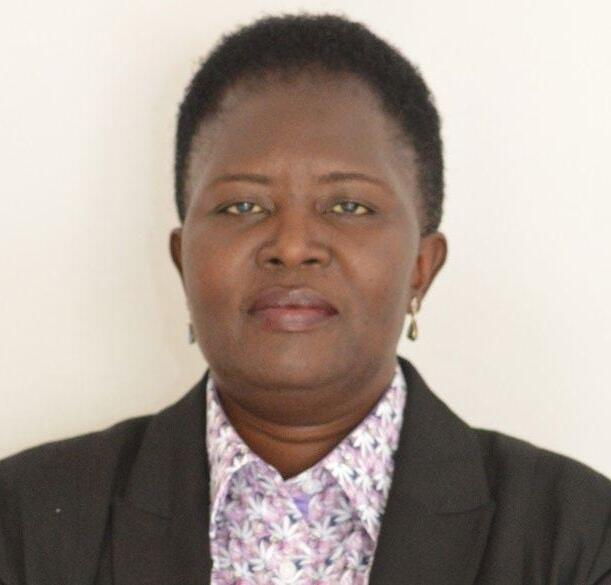
56 www.africanleadershipmagazine.co.uk
Anselmo Viriato Monteiro: A Renaissance Leader Shaping Angola’s Future
WHAT NOTABLE LEADERS ARE SAYING ABOUT AFRICAN LEADERSHIP MAGA ZINE
“It is always an honour to be in the company of such distinguished fellow Africans, that the African Leadership Magazine events bring together - Africans who have committed their lives to changing the negative narrative about our continent.”
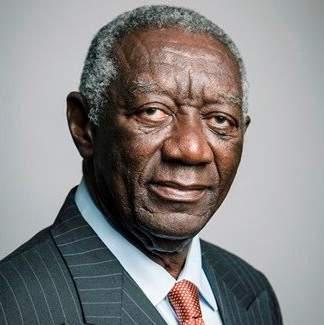
“It is ver y gratifying that we now have an organization like African Leadership Magazine, which endeavors to promote good governance and impactful leadership in Africa - bring the best of Africa to the global stages.”
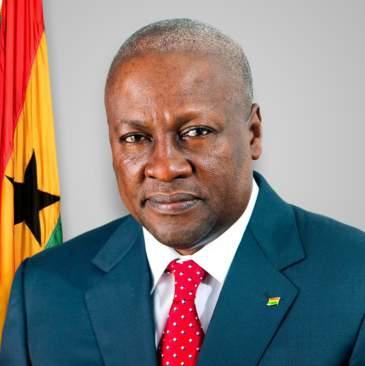
“African Leadership Magazine has become a brand for Africa and I am pleased to be associated with it. especially because of the caliber of African Leaders on itʼs board.”
“I wish to express my sincere thanks and deep appreciation to the African Leadership Magazine for the work that it is doing on the continent, and especially in advancing the cause of small Islands Developing states, Any effor t aimed at increasing the visibility of the good work being done by leadership in Africa does positively impact on the continent and that is what the African Leadership Magazine is doing.”
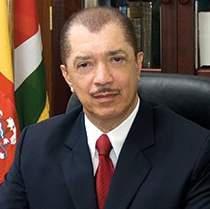
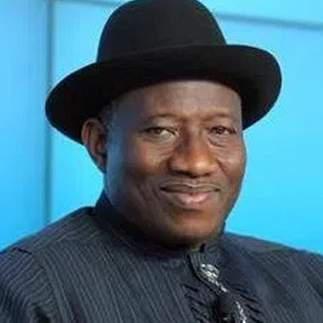
“I am delighted to be associated with the sterling work that the African Leadership Magazine is doing on the continent. Democratic governance is the elephant in the room, and the continent needs to reaccess its governance systems. The agenda on global sustainable development shows that Africans are lagging behind. Africa will need to reinvent its governance system with its youth growing population.”
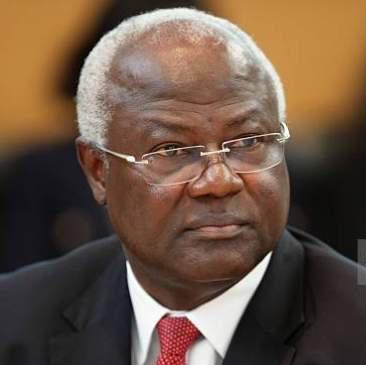
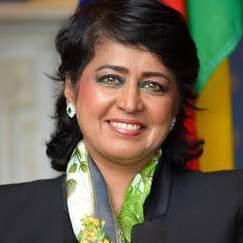 H.E. JOHN MAHAMA Fmr. President of Ghana
H.E. MRS. AMEEN GURIB-FAKIM Fmr. President of Mauritius
H.E. JAMES A MICHEL Fmr. President of Seychelles
H.E. ERNEST BAI KOROMA Fmr. President of Sierra Leone
DR. GOODLUCK JONATHAN Fmr. President of Nigeria
H.E. JOHN MAHAMA Fmr. President of Ghana
H.E. MRS. AMEEN GURIB-FAKIM Fmr. President of Mauritius
H.E. JAMES A MICHEL Fmr. President of Seychelles
H.E. ERNEST BAI KOROMA Fmr. President of Sierra Leone
DR. GOODLUCK JONATHAN Fmr. President of Nigeria
“I believe people are more impor tant than power and anything that promotes good people and leadership is what we need in Africa, and that is what African Leadership Magazine is doing.”H.E. JOHN KUFOUR Fmr. President of Ghana
“I feel deeply honored to be associated with the African Leadership Magazine as it is a veritable platform to honor true ser vice in Africa. I commend your effor ts and assure you of my continued suppor t and the suppor t of the good people of Liberia.”
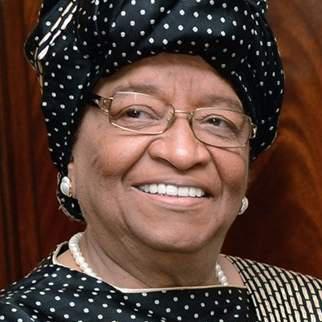
“African Leadership Magazine is doing a wonderful job of speaking for Africa and Africans. The magazine remain a good example of what young people in Africa can do in the world. Best wishes in keeping the African dream alive.”
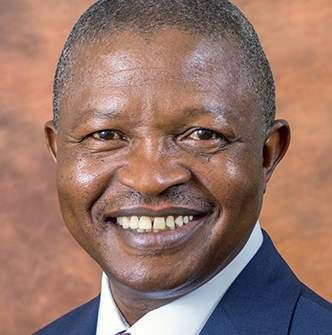
“It is an honour to par ticipate at this African Leadership Magazine's 2020 Ceremony, and I commend the magazine's focus to reshape positively, the dominant narratives about the African continent, especially towards the pursuit of peace-building and democracy on the continent”
“I thank you so much, African Leadership Magazine for the great work that you are doing for the continent. Your tradition of awarding excellence as I have seen in the line up of African Leaders who have received the African Leadership Awards, is something ver y commendable”
“ The future of African people and improving the quality of Leadership on the African continent is my vision and I find in African Leadership Magazine - a true par tner. I am also happy that the African Leadership Awards is doing at a lower level, what I intend to achieve at the Head of State level. That is why I flew to Paris just to be a par t of what you are doing here at the African Leadership Magazine”
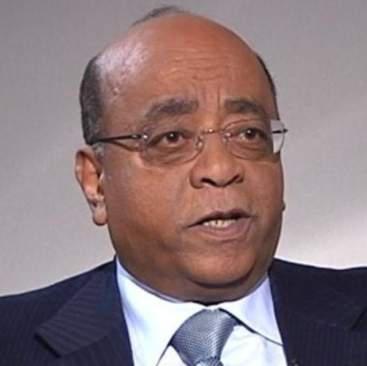
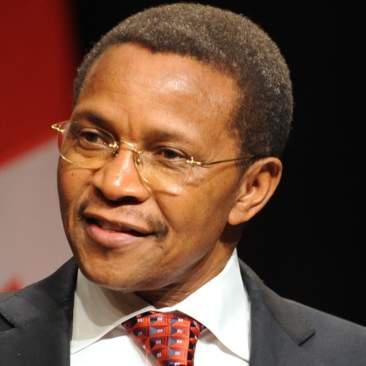
“ The African Leadership Awards truly captures the essence of my message which is that, success shouldnʼt be solely defined by wealth. It should be about the positive impact and influence that one has had in his community ”
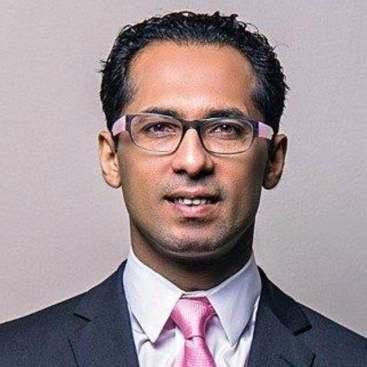
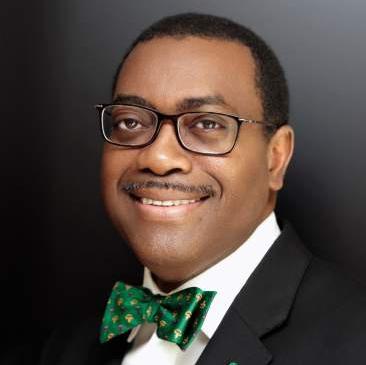
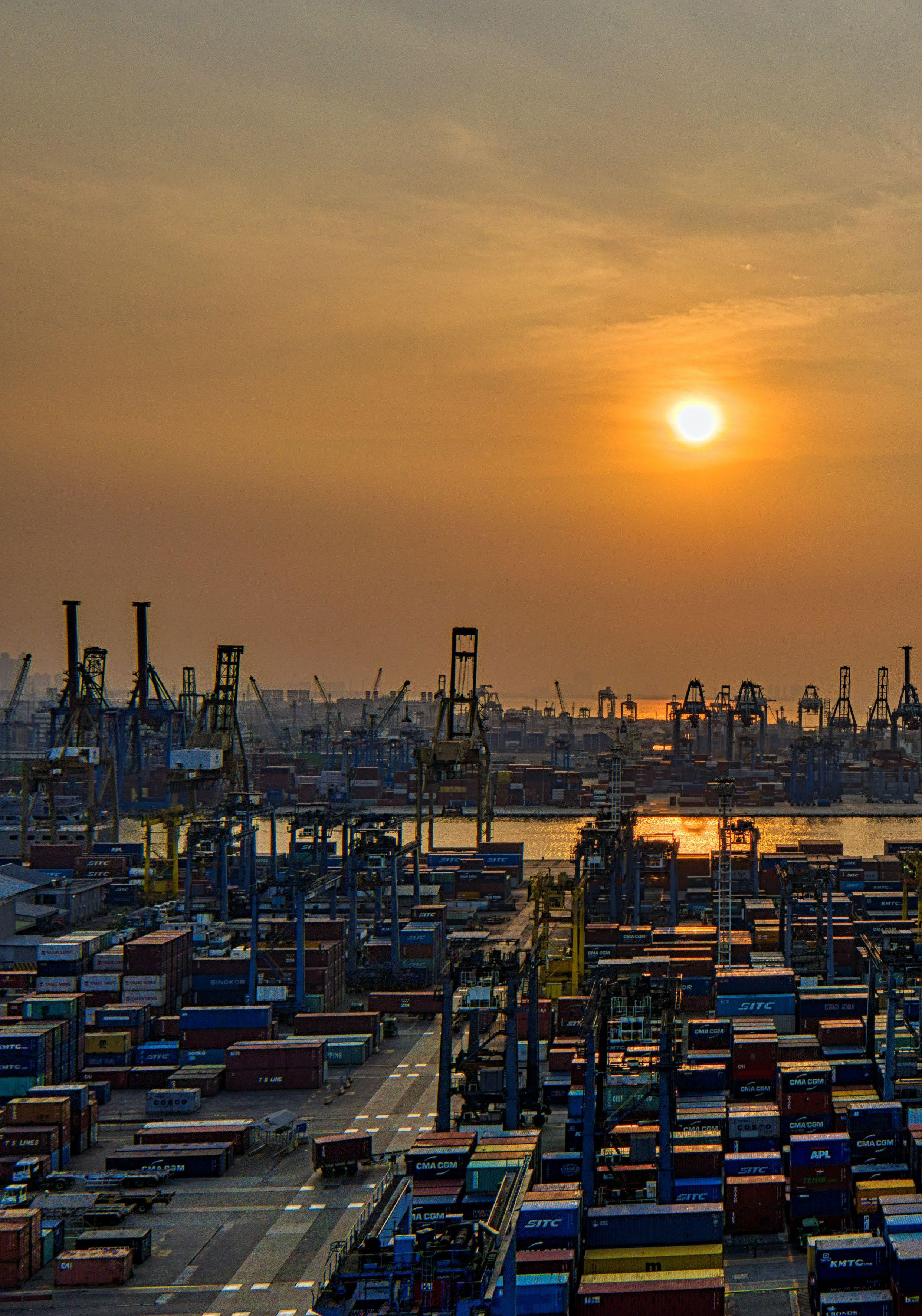 By Peter Burdin
By Peter Burdin
It’s a little-known fact that the United Kingdom pays for and distributes billions of condoms throughout Africa. It’s part of a long-standing commitment to combat the spread of HIV AIDS. It’s also a good example of how aid and trade are intrinsically intertwined. The common wisdom that trade is good and aid is bad only tells part of a very complex relationship between Africa and the wider world.
Ever since the great Zambian-born economist Dambisa Moyo published her seminal book “Dead Aid” in 2010, there’s been a recognition that aid hasn’t helped Africa prosper but has actually condemned the continent to poverty and a dependency on others. Moyo argued that over the past fifty years or so, around one trillion dollars of development aid had flowed from largely Western governments into Africa, and there was very little to show for it on the ground. Rather than achieving its stated goal of reducing poverty, aid donations had contributed to economic stagnation and political corruption.
In “Dead Aid,” she highlights a culture of “aid dependency” which she argues blunts the incentives for African leaders to develop their own economies while contributing to corruption as some leaders have been able to mismanage and abuse incoming aid funding. As a result, the aid often goes to the wrong places and doesn’t reach those who need it most.
One of Moyo’s theories that has really struck a chord is her belief that aid often crowds out private investment and blunts the promotion of entrepreneurship and business ingenuity.
That message has been embraced by many Western governments. The UK government’s Trade Ambassador in East Africa, Lord Popat, is a true believer in the power of trade to transform the continent: “Every time one of our UK Ministers goes to Africa and talks about aid, Africans hate it. Our High Commissioners tell Ministers don’t talk about aid, they don’t like it and they don’t want it. Trading prosperity is the key, not aid.”
Lord Popat says this mind shift from aid to trade is really working. He highlights a trade mission to Uganda he led recently to support the Ugandan government’s industrialization program. This includes helping to finalize UK financing for a hospital and electricity and solar power projects: “The UK is investing heavily in Uganda because increased trade between the UK and Uganda will deliver more jobs, increased exports, and technology transfers. Africa is undergoing a sea change. I was born in Uganda. When I was at school there you wouldn’t find a single African who was qualified as a teacher. Now we’ve got a body of highly qualified people. There’s a lot of enthusiasm for Africans to own their own businesses. Everywhere now in Africa, you find young entrepreneurs setting up their enterprises and trying to sell you things. These SMEs are the cornerstone of the economy and they are flourishing.”
Lord Popat says the trade figures speak for themselves. When he became Trade Minister in 2016, UK trade with Uganda was worth £140 million, now it’s in excess of £2 billion. Likewise in Rwanda where £12 million of trade in 2016 has grown to more than £1 billion as Rwanda continues to develop its infrastructure and promote inward investment. Lord Popat also highlights the role Rwanda’s shirt sponsorship with Arsenal Football Club as a good example of this new entrepreneurial Africa: “Every year since President Kagame and Arsenal signed that deal tourism in Rwanda has grown by 8%. It’s changed perceptions of Rwanda and places Africa as the next frontier for trade and investment”.
Lord Popat sees the African Continental Free Trade Agreement (AfCFTA) as a key player in the new Africa. He points to the Trademark East Africa as a great example of promoting the intra-Africa cross-border trade that the AfCFTA seeks to promote: “I remember queues of lorries at the border between Uganda and Kenya, sometimes some six or eight miles long. It would take the drivers up to six hours to get across the frontier. Now thanks to the electronic controls that have been installed it takes less than six minutes. Uganda’s President Museveni told me that as a result of these digital systems customs and duty are now thirty times higher between Uganda and Kenya. That will allow better roads and greater intra-Africa trade.”
The UK is investing £140 million in the AfCFTA project to make it effective and facilitate the trade of goods, services, and people in Africa to help create the world’s largest single market serving a population in excess of 1.1 billion people.
Does that investment count as trade or is that aid? Very often the two strands are closely intertwined. Perhaps the answer is not to choose between either aid or trade. That’s the view of the World Trade Organisation’s International Trade Centre’s Arancha Gonzales: “It would be a simplification to make countries choose between aid and trade. The reality is that both are needed. The question is not whether to choose between aid or trade, but how to balance the two.”
The International Trade Centre (ITC) works by providing training on how African entrepreneurs can secure access to capital. According to Ms. Gonzales: “There are thousands of companies that could benefit if we build capacity locally. The expertise that we provide for mango producers in Senegal, for example, will also benefit pineapple or poultry producers there. “We have a project with spice traders in Zanzibar, Tanzania. We found out that producers can obtain up to 20 times more revenue by branding and packaging the product attractively.”
The US government is firmly moving to this view that Africa needs more trade than aid. At a recent event in honor of Africa Day, the US’s Chair of the House Foreign Affairs subcommittee on Africa, Karen Bass, stressed this shift towards trade and investment: “We view the continent of Africa as a partner – as an investment partner, a business partner and don’t view the continent of Africa as a place where we need to deliver charity”.
The US’s African Growth and Opportunity Act (AGOA) is a concrete example of this trend. It offers many African economies duty-free access to the US market across more than 1,800 goods. In the words of the veteran Nigerian politician Ngozi Okonjo-Iweala, the Director-General of the World Trade Organisation (WTO): “Trade, not aid, for Africa,” she says and points out: “We need to make use of the African Continental Free Trade Area to develop certain industries. If we want to trade more, we need to add value. We can’t continue selling the same raw materials we used to do if we want to move forward. So there’s a huge opportunity on the continent. “ I see three opportunities for the future. One is the services trade, the next is digital trade. That’s a
Rather than achieving its stated goal of reducing poverty, aid donations had contributed to economic stagnation and political corruption.
huge opportunity. E-commerce is becoming so important, and the third is green trade; there is going to be a big opportunity in green trade and investment”.
For other African leaders like Fronati Kofa, the Deputy Speaker of the Liberian parliament, China sets a good example for the continent’s path to prosperity. Speaking at the African Leadership Summit in London he said: “I admire where China has come from. It had a single mind-set and Africa can do the same. We can develop a single currency and open our borders. It’s time to develop a pan-African approach. “African leadership has been stereotyped because of what happened in the past. We are building a new breed of competent and capable leaders, committed to transparency. As Africans we must act together and take our place on the world stage”.
It’s a view endorsed by Lord Popat of the UK’s Uganda and Rwanda Trade mission: “Africa is a sleeping giant that is now waking up. It has the talent, knowledge, creativity, and resources to prosper. Don’t look at Africa through a BandAid lens that Africa is poor or begging for money. Look at Africa’s potential through new eyes. Africa will shape the world of the future. “The potential is enormous. There’s an emerging middle class in Africa of highly educated people. With a population about to double, there’s a growing demand for education, health services, energy, infrastructure, you name it”. Lord Popat recognizes that agriculture remains a key sector in Africa and has been encouraging UK investors to help develop Uganda’s agribusiness to be more climate emergency-resilient and enabling Uganda’s farmers to gain access to affordable finance.
So Trade is the future but don’t write off the importance of aid just yet. Lord Popat’s own UK government has just published a chilling report of what happens when the aid runs out. It’s the work of the UK Parliament’s International Development Committee and it looks at the devastating impact UK government aid cuts have wrought.
The UK was committed to spending 0.7% of its Gross National Income on international development or aid as it is commonly known. In addition, around a third of the remaining budget is now spent on funding refugees awaiting processing in the UK. As a direct result, many of the UK’s aid projects have been slashed:
- The African Girls Education Department has suffered an 87% reduction in funding, so it is estimated that 230,000 students will be denied education, including 115,000 girls.
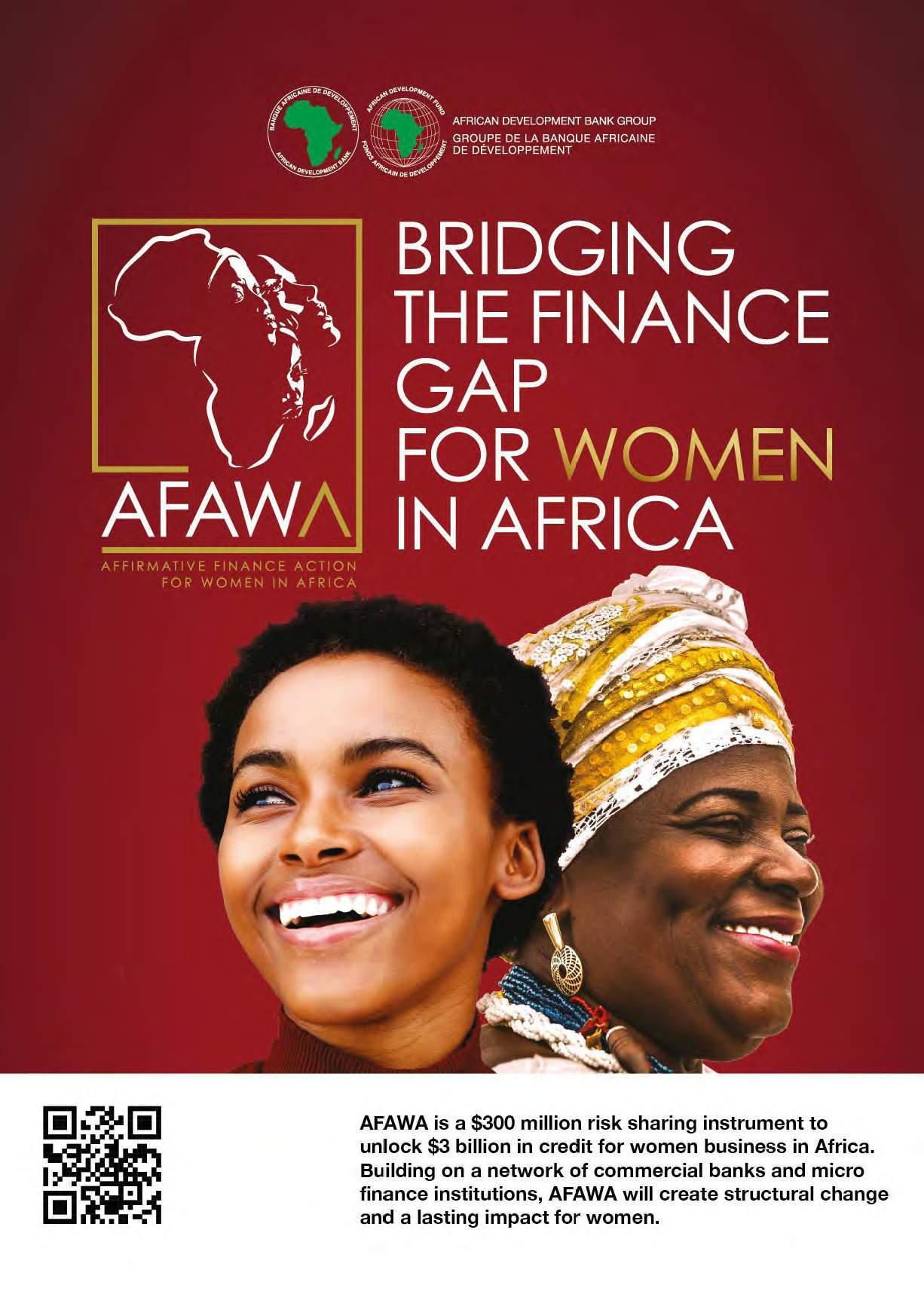
- In South Sudan, 27,000 children suffering from severe and acute malnutrition will no longer be fed, 12% or 3,000 of them will die.
- Also in South Sudan, cuts to a GenderBased Violence education program mean that 101,580 women will no longer be supported and taught how to prevent and respond to violent attacks on them. And 567,000 children will no longer receive their childhood vaccinations.
- In Ethiopia, 41,700 teachers will no longer receive training and 233,000 pupils will lose access to education. In addition, 8,000 disabled children will no longer be able to attend inclusive schools.
- Thousands of women across Africa will die as they no longer have access to prenatal and maternity services.
- Perhaps the starkest evidence from the Committee is the fact that feeding programs in Ethiopia’s “From Crisis to Resilience” scheme have been cut from £41 million to £24 million. It says that as a consequence some 350,000 beneficiaries will no longer receive food.
Overall it makes grim reading. It is also a reminder that aid is not dead but still has a vital role in the lives of millions of Africans living in some of the continent’s most deprived and impoverished countries.
Trade may well be the future but we ignore the importance of aid at our peril. It seems that the UK government has recognized that and next year its aid to Africa is planned to double from £646 million to more than £1.3 billion. And it has promised to restore its commitment to 0.7% of GDI when economic conditions allow. This contrasts starkly with the $34 billion trade that takes place between the UK and Africa each year. Trade dwarfs Aid by a considerable margin. And that will only grow in the coming years.
The Trade versus Aid debate will continue, but the reality is Africa needs every resource it can get its hands on if the continent is to prosper.
The common wisdom that trade is good and aid is bad only tells part of a very complex relationship between Africa and the wider world.

In recent years, Zambia has undergone a remarkable transformation under the leadership of President Hakainde Hichilema. The nation, once grappling with numerous challenges, has embarked on a journey towards enhanced governance, infrastructural development, and economic growth. This article reviews the strides made so far under President Hichilema’s leadership, comparing Zambia today with the previous administration.
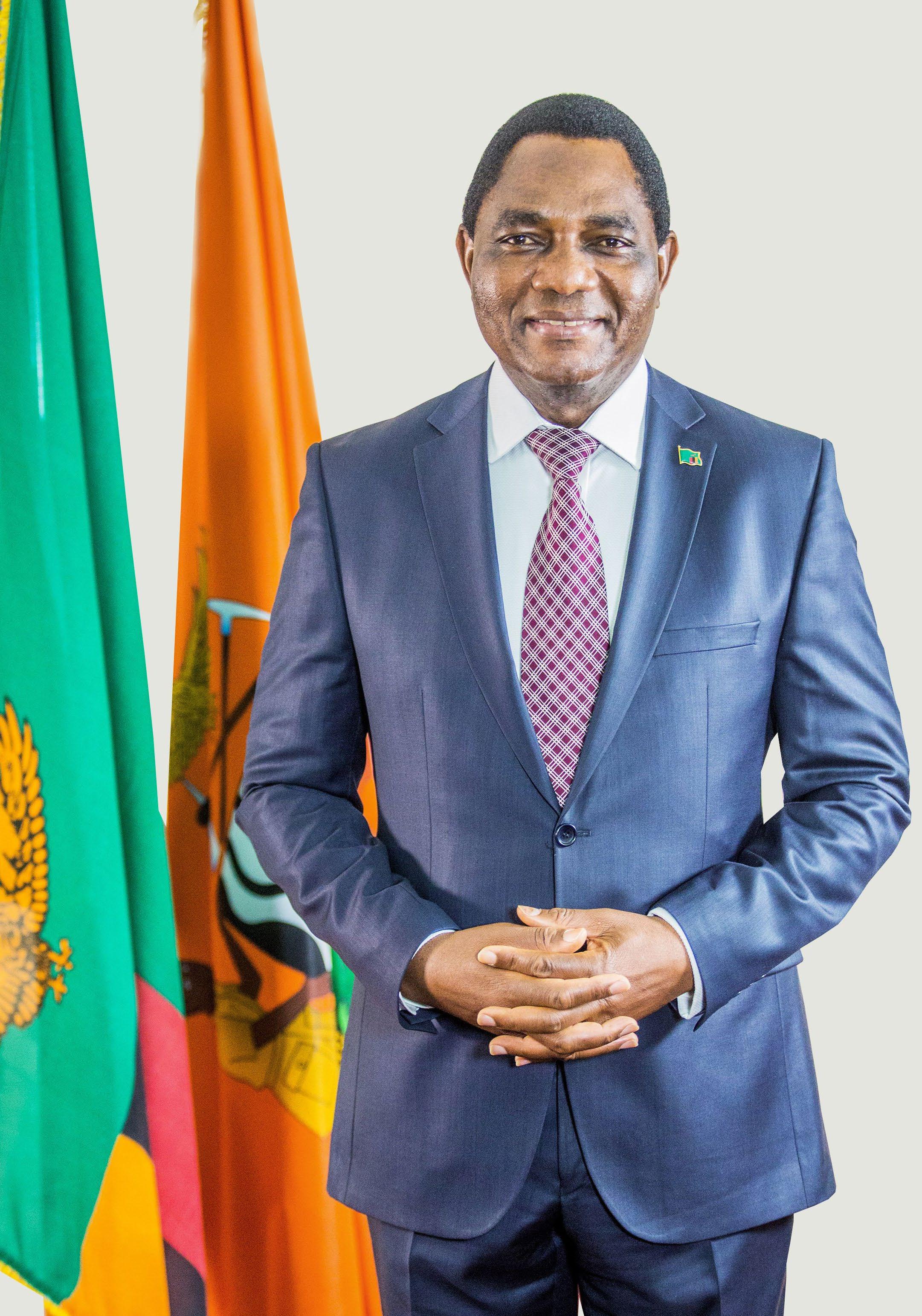
President Hichilema took office with a clear mission: to combat corruption vigorously. His commitment to this cause has been evident through a series of reforms and initiatives aimed at enhancing transparency and accountability in government affairs. A pivotal moment in this fight against corruption was the appointment of a new Attorney General, widely regarded as independent and resolute in battling malfeasance. Moreover, President Hichilema boldly dissolved the Anti-Corruption Commission, establishing a new commission with a broader mandate. This move signaled a solid commitment to eradicating corruption at all levels of government, fostering an environment of trust and integrity.
Likewise, infrastructure development has been the cornerstone of President Hichilema’s administration. The nation has witnessed unprecedented progress in the construction of roads, bridges, and healthcare facilities. These investments in infrastructure have not only improved connectivity but have also enhanced access to vital services for the Zambian people.
Newly constructed roads have facilitated smoother transportation of goods and people, thereby boosting economic activities across the country. The bridge projects have improved accessibility to remote areas, connecting communities that were once isolated. Additionally, investments in hospitals have contributed to better healthcare services, addressing the long-standing issue of inadequate medical facilities.
Under President Hichilema’s leadership, healthcare service delivery has seen remarkable improvements. A critical step was the substantial increase in funding for the healthcare sector, enabling the procurement of essential drugs and medical supplies. This increase in funding underscores the government’s commitment to ensuring the well-being of its citizens.
Furthermore, President Hichilema launched a groundbreaking program that provides free healthcare to children under the age of five. This initiative aims to reduce child mortality rates and enhance overall healthcare outcomes for the youngest members of society.
Under President Hichilema’s tenure, Zambia’s Gross Domestic Product (GDP) experienced growth, primarily driven by rising copper prices in global markets. While this growth is undoubtedly positive, it is crucial to consider its long-term sustainability. Zambia’s economy
remains vulnerable to external shocks, such as fluctuations in copper prices, necessitating diversification efforts for greater stability.
The administration has also entered into numerous trade agreements, promising to boost economic growth further. These agreements open doors to new markets and opportunities, potentially steering Zambia towards a more diversified and resilient economy.
In giving attention to the tenets of democracy, freedom of speech and expression have witnessed significant improvements under President Hichilema’s leadership. The government has lifted several restrictions on the media, granting journalists greater freedom to report and investigate without fear of censorship or persecution. This has ushered in a new era of transparency and accountability in public discourse.
However, concerns persist regarding the harassment of journalists and the intimidation of opposition politicians. While progress has been made, there is still work to be done to ensure that all voices are heard and protected in the democratic process.
Zambia has made substantial strides under President Hakainde Hichilema’s administration. The fight against corruption, infrastructure development, improvements in healthcare, and economic growth are all indicators of a nation on the path to positive transformation. However, it is essential to acknowledge the challenges that remain, including the need to comprehensively address corruption, strengthen healthcare infrastructure, diversify the economy, and safeguard freedom of speech.
President Hichilema has set a promising trajectory for Zambia, but the journey towards lasting change is ongoing. The coming years will test the sustainability of these reforms and their impact on the lives of the Zambian people. As the nation moves forward, it remains to be seen whether President Hichilema can maintain and build upon the progress achieved during his tenure, ultimately leading Zambia to a brighter future.
The fight against corruption, infrastructure development, improvements in healthcare, and economic growth are all indicators of a nation on the path to positive transformation.
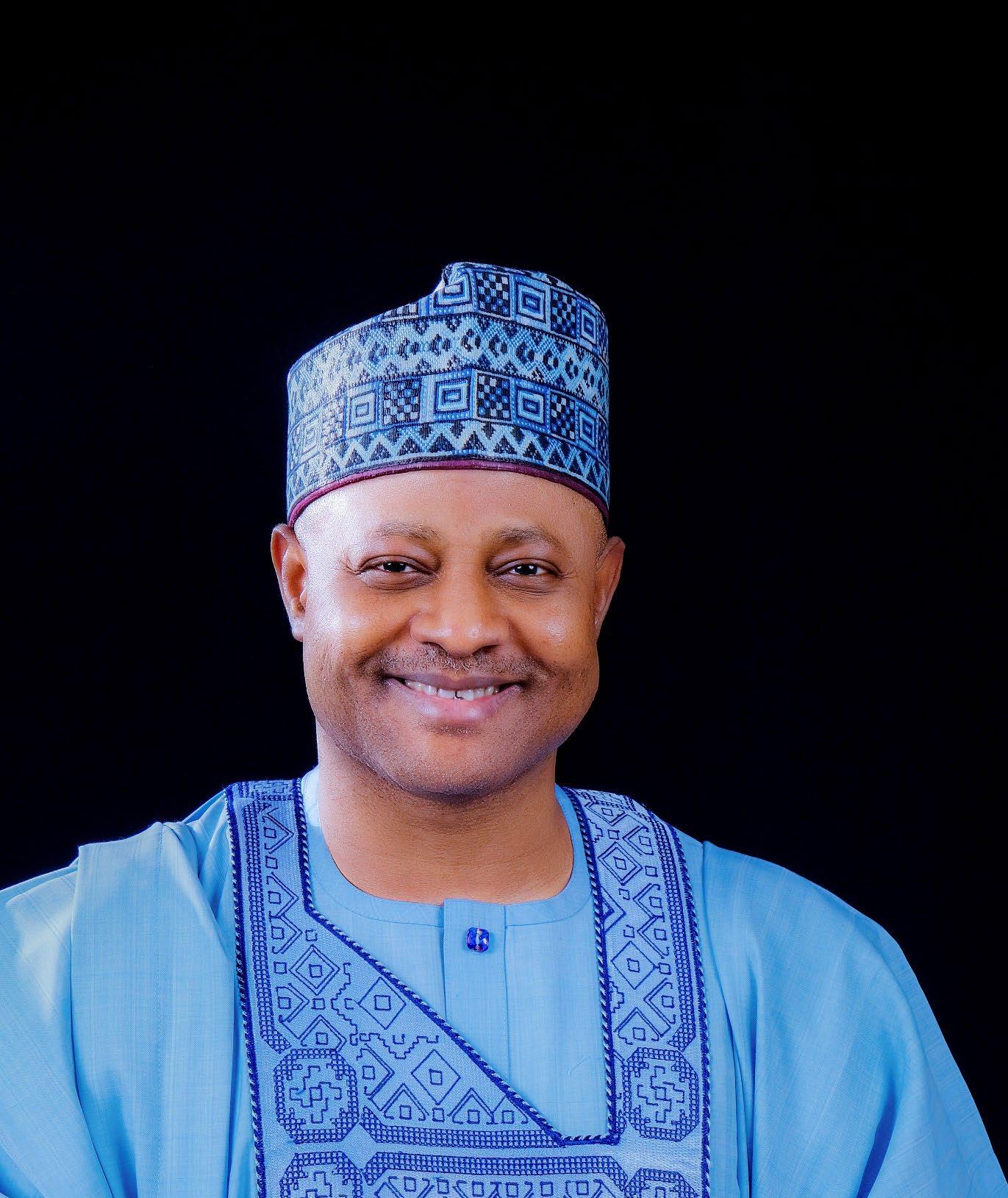
Kaduna State Governor, Senator Uba Sani, shared insights into his administration’s multifaceted approach to governance in a comprehensive discussion with us. He underscored rural development and agribusiness as pivotal drivers of employment generation. The Governor stressed the significance of bolstering extension support networks, promoting priority crops, and attracting agricultural investments. Additionally, he highlighted his administration’s efforts to enhance education, particularly for girls, expand infrastructure development across local government areas, and combat instability through collaborations with security agencies and community leaders. Furthermore, under his guidance, the Uba Sani Foundation has been actively engaged in skill development, entrepreneurship, and educational support. To address the financial exclusion of disadvantaged individuals, Governor Uba Sani signed an executive order on financial inclusion. Overall, his administration is unwavering in its commitment to advancing progress and prosperity.
Excerpt:
Your Excellency, Job creation is one of your promises to the people of Kaduna State. Can you outline your strategies for generating employment opportunities, particularly in the agricultural sector and for young entrepreneurs?
Rural development is at the core of our administration. Agribusiness stands as a major economic activity in our state and has been proven to be the fastest means of poverty reduction. We are blessed with favorable climate conditions, abundant water resources, fertile lands, and industrious youths engaged in farming activities across our state.
To address employment and poverty issues, we have adopted an integrated approach that addresses challenges within the agribusiness sector, particularly crop and livestock production, as well as support services. We are committed to strengthening the extension support system by fostering collaboration between the public and private sectors to reach a wider range of farmers. This involves cleaning up and fortifying farmer databases while focusing on priority crops for industrial and export markets.
Additionally, we are supporting the training of community-based farmer organizations, facilitating access to finance and markets for them, and aiding standardization efforts. We are actively working to attract investment in commodity exchanges to ensure better returns for our farmers. Mechanization is another aspect we are promoting, along with investments in agricultural processing to ensure access to reliable markets and encourage largerscale farmers to mentor smaller farmers in their communities, expediting technology adoption.
We are also engaging with various federal and international agencies on programs that align
with our goal of making agriculture the most profitable enterprise in our rural areas. Our agricultural policy prioritizes gender equality, environmental sustainability, and youth participation. Our farmers are transitioning from rain-fed agriculture to year-round dryseason irrigated agriculture, utilizing our limited irrigation facilities and extensive network of perennial rivers.
Kaduna State is a leading producer of several key crops, including maize (accounting for 25% of national output), soybeans (the second-largest producer), sorghum, rice, and the world’s best ginger, which is the largest producer in Africa. Our administration is dedicated to introducing more youths to agribusiness, providing them with training and necessary tools. We are also committed to granting Certificates of Occupancy (C of Os) to more farms and increasing funding for agriculture.
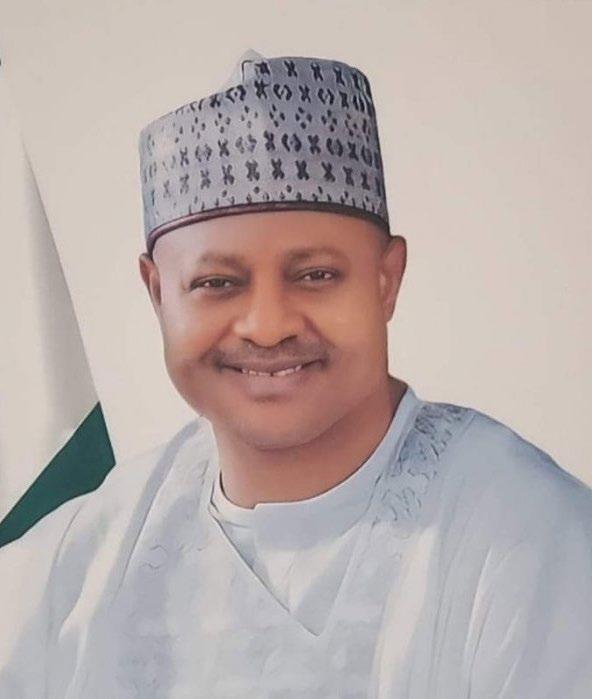
Education is a key focus of your administration. Could you elaborate on your plans to enhance the quality of education in Kaduna State and how these plans aim to benefit both students and educators?
Human capital development forms a fundamental pillar of our sustainable agenda. Well-educated and healthy citizens are crucial for building a robust society and a prosperous economy. To this end, we have undertaken
measures to ensure access to free and highquality education for every child in Kaduna State, spanning from primary to secondary school. We are also working on expanding access to higher education, enhancing teachers’ welfare and teaching standards, improving school infrastructure, fostering ICT competence among students starting from basic education, and increasing investments in technical and vocational education.
Promoting girl-child education is a significant priority of our administration. Investing in the education of our girls represents a substantial investment in the future of our state. We are actively addressing the issue of out-of-school children by establishing additional primary and secondary schools throughout Kaduna State, thereby providing better access to education and addressing this concern.
Our commitment to education is substantiated by ongoing infrastructural developments within primary and junior secondary schools across Kaduna State. We are constructing classrooms, laboratories, administrative blocks, multipurpose halls, and sanitary facilities. Moreover, we recently commissioned a 200bed capacity hostel block, 16 classrooms, and a sickbay at the Government Girls Secondary School, Kawo, Kaduna North Local Government Area, further illustrating our dedication to education infrastructure.
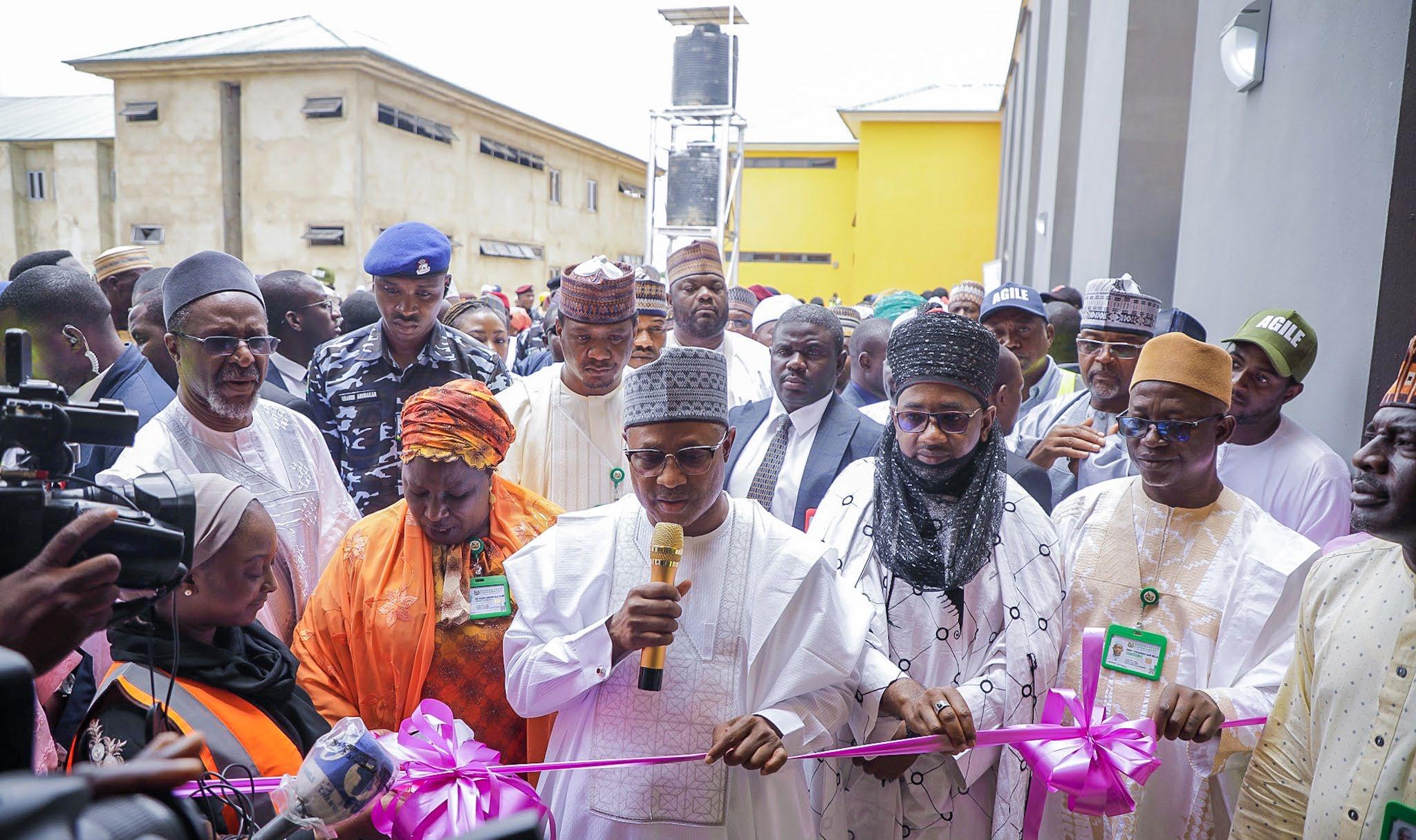
Recognizing the public concerns regarding tuition fees in tertiary institutions in Kaduna State and their impact on enrollment and retention, we took action by approving a reduction in school fees for several state tertiary
institutions. This reduction aligns with our commitment to mitigating the impact of rising living costs, especially following the recent removal of petroleum subsidies in Nigeria.
Infrastructure development is crucial for the growth of any state. What major infrastructure projects have you initiated, and how do you envision these projects transforming the state’s infrastructure landscape?
Our administration is building upon and enhancing the infrastructure upgrades initiated by the previous administration, with the goal of improving public welfare and accelerating economic growth. We are currently executing our Rural Transformation Agenda, with a primary focus on extending infrastructure to all local government areas. This initiative aims to support rapid economic growth in our rural communities.
As part of this agenda, we have established a network of 5 to 10 km of roads in all rural local government area headquarters, accompanied by effective drainage systems. These roads are equipped with solar street lights, extending economic and social activities into the evening hours while bolstering security. We are also planning to deploy solar mini-grid systems to provide lighting for homes and power smallscale industrial and commercial activities, contributing to local economic development.
Our efforts also include upgrading local government headquarters’ markets to serve as commercial centers and agricultural aggregation hubs. Additionally, we are
equipping and staffing primary health facilities within these areas to provide essential care to rural populations. Our commitment extends to rehabilitating primary and secondary schools within local government areas to support human development programs.
In line with our dedication to enhancing access and mobility, we have launched road construction projects across Kaduna State under the Rural Access and Agricultural Marketing Project (RAAMP). These projects aim to bridge the gap between rural and urban communities. We have already performed groundbreaking ceremonies for several road construction projects, furthering our commitment to improving infrastructure.
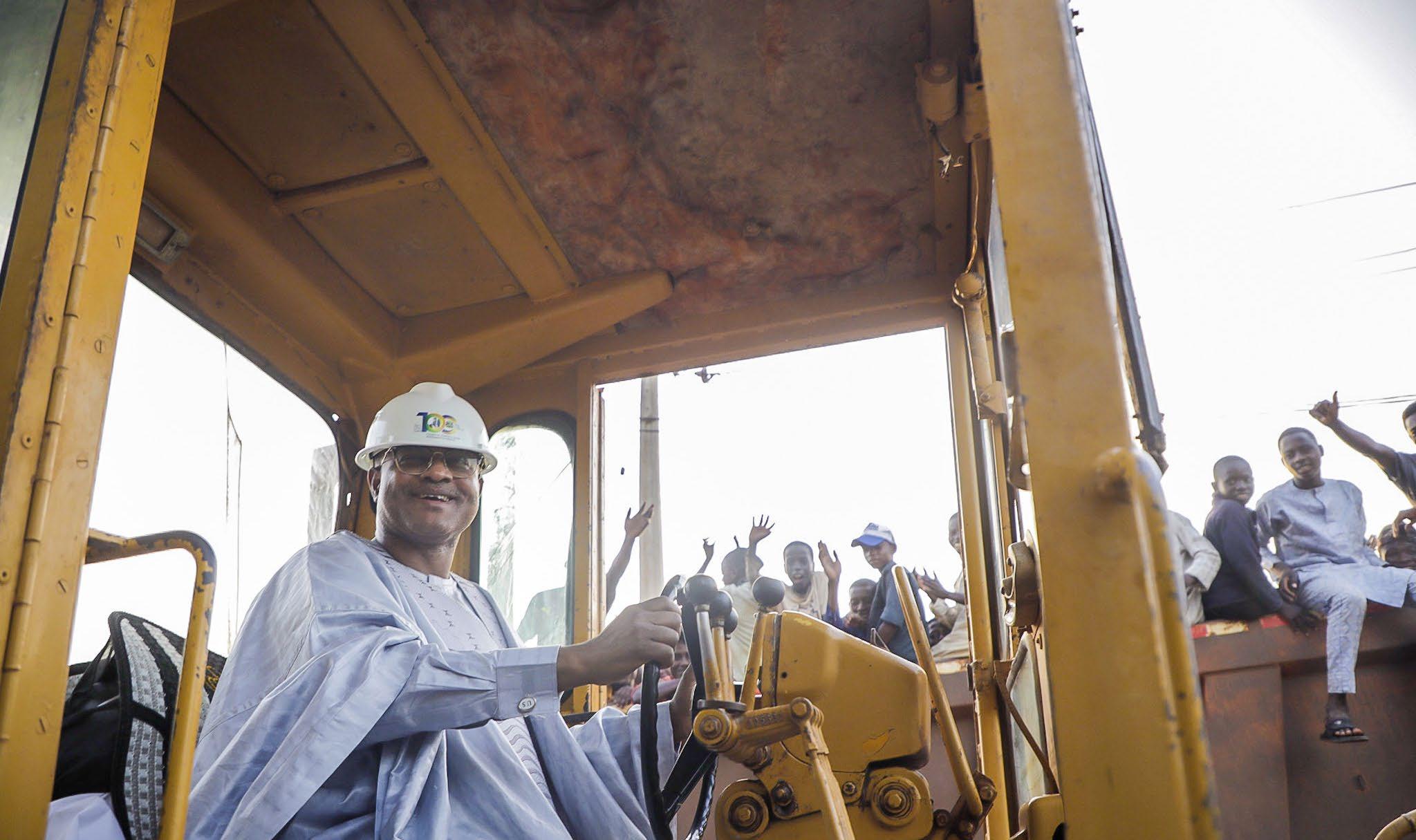
Your Excellency, you’ve strongly emphasized security in Kaduna State. Can you share some specific initiatives or actions you’ve taken to improve the security situation, and what results have you seen so far?
Upon assuming office, I convened a Security Council meeting that brought together all heads of security agencies in Kaduna State. During this meeting, we conducted a comprehensive review of the security situation, identified challenges, and collaboratively devised strategies to invigorate the fight against banditry, kidnapping, and other criminal activities in the state. We have fostered synergy among the security agencies, and our administration has provided increased logistical support to enhance their effectiveness.
Upon the appointment of the new service chiefs, I promptly engaged with them, sharing insights into the security situation in Kaduna State. Together, we formulated strategies to effectively counter criminal elements within our state. These efforts have resulted in improved coordination among security agencies in Kaduna State.
We have also initiated the training of 7,000 recruits for the Kaduna Vigilance Service (KADVS) at Police College, Kaduna. KADVS has been working in collaboration with security agencies to combat criminal elements. However, we encountered a challenge due to insufficient personnel to effectively confront bandits and other criminals. Consequently, our administration decided to recruit 7,000 personnel into KADVS. This recruitment process involved a thorough screening, with support from local government chairmen, traditional and religious leaders, grassroots stakeholders, and security agencies. KADVS serves as a complementary security outfit, providing actionable intelligence and leveraging local knowledge to eliminate hiding places for criminals.
Your dedication to community involvement in addressing security challenges is commendable. How do you plan to collaborate with traditional rulers and community leaders to ensure lasting solutions to security issues?
Citizen engagement is a pivotal component of our 7-Point Agenda. Upon assuming office, I conducted separate meetings with traditional rulers, Kaduna state elders, and local
government chairmen and administrators. The aim was to fully engage key stakeholders in governance, enabling them to assist in mobilizing citizens to access opportunities in education, health, and commerce. Additionally, we needed their support in sensitizing and mobilizing grassroots citizens to contribute to the security of our state, which has faced threats from bandits, kidnappers, and other criminal elements.
To establish effective grassroots intelligencegathering mechanisms, we have collaborated closely with traditional rulers, elders, youth, and women’s groups. We have established frameworks and mechanisms for intelligence gathering, with grassroots structures interfacing with security agencies to bolster the fight against insecurity in Kaduna State.
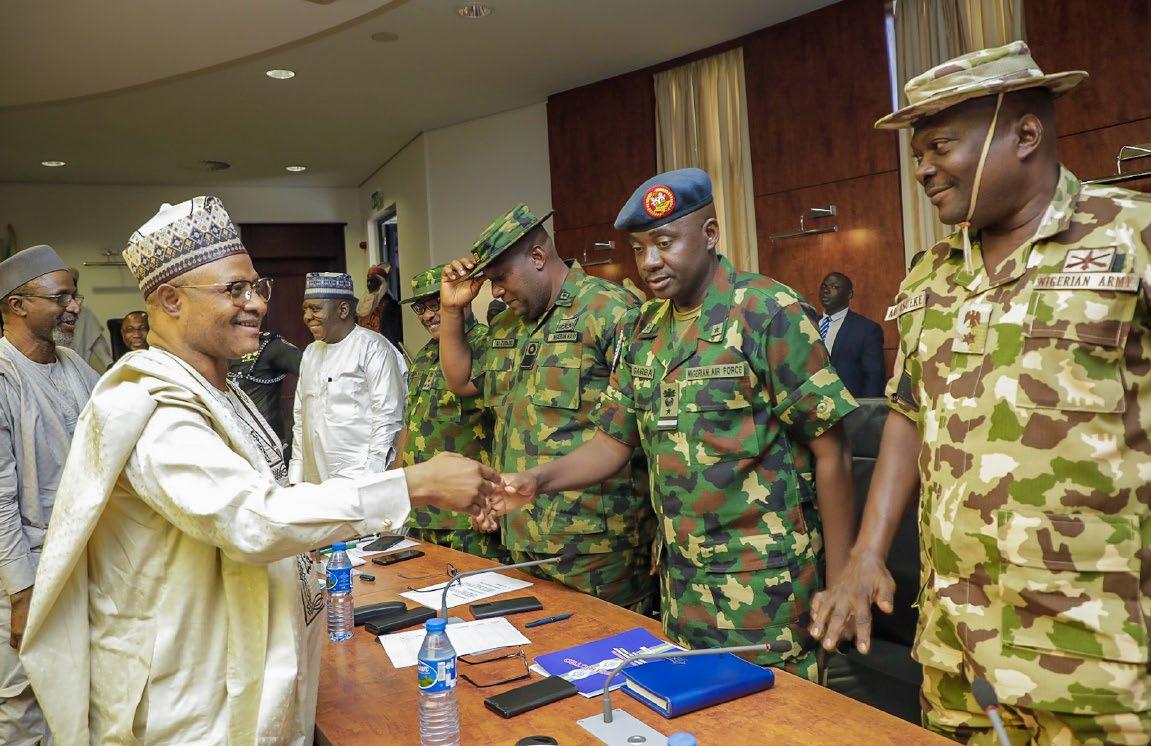
The Uba Sani Foundation has been actively involved in humanitarian assistance. Could you share some recent accomplishments of the foundation and how they complement your role as governor?
My life has been dedicated to advancing the rights and freedoms of the people. I have been actively involved in the struggle for the establishment of democracy, and I continue
to be a development worker. I have chosen to allocate the resources I have amassed through divine grace to support the less privileged and vulnerable. This commitment led to the establishment of the Uba Sani Foundation, a legacy that will endure beyond my lifetime.
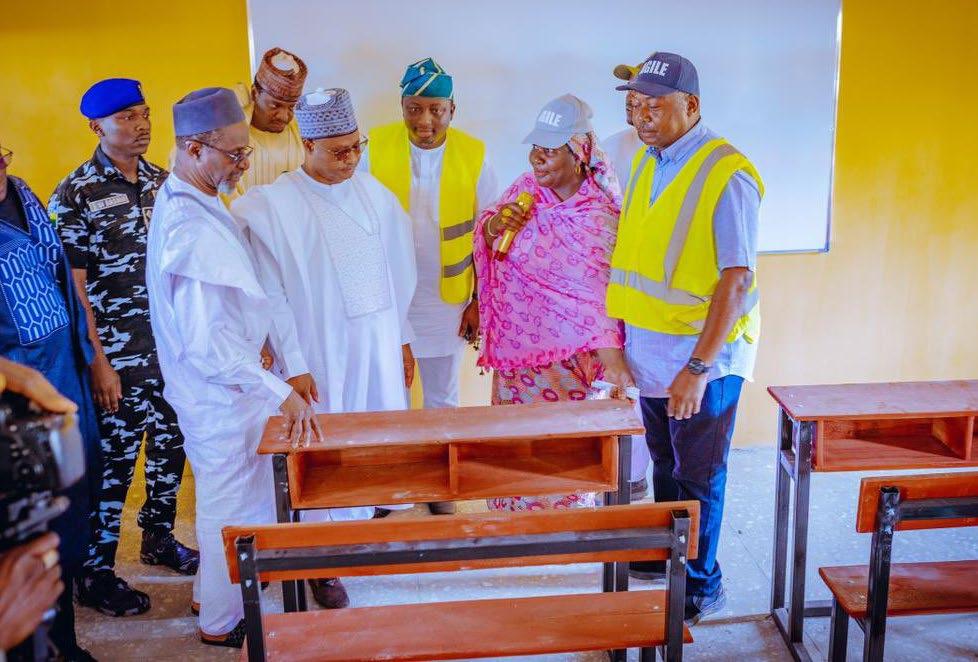
The Uba Sani Foundation has achieved various milestones, including the training of 100 beneficiaries in fish farming and poultry production through the Entrepreneurship Scheme in partnership with the College of Agriculture and Animal Science, Mando. The foundation assisted these beneficiaries in developing business plans and registering their businesses to operate legitimately, while also monitoring their progress and facilitating access to loans and other intervention funds.
In collaboration with the Sir Kashim Ibrahim Leadership Foundation, the Uba Sani Foundation organized employability and career fairs, empowering graduates in Kaduna Central Senatorial District. Additionally, the foundation facilitated training in various fields, including photography, cinematography, cosmetology, makeup, baking, and confectionery through its partnership with Magvoile Vocational Institute.
The foundation has also supported women’s economic empowerment by training 80 women from each of the 7 local government areas in Kaduna Central Senatorial Zone, enabling them to produce liquid soap, body cream, and air fresheners. Furthermore, the Uba Sani Foundation has integrated school outreach into its activities, providing counseling, career guidance, and educational materials to students. It has also covered JAMB registration fees for numerous students within the senatorial zone.
In 2021, the foundation launched the Uba Sani Annual Essay Competition 2021, available to senior secondary school students in Kaduna State Government Secondary Schools. Additionally, scholarships were awarded to 175 brilliant but indigent final-year secondary school students in Kaduna State, further illustrating the foundation’s commitment to educational advancement.
To address the financial exclusion of approximately 2.1 million poor, underserved, and vulnerable citizens in Kaduna State from financial services, I signed one executive order, specifically focused on financial inclusion. This executive order aligns with our state government’s efforts to ensure that these individuals can benefit from state and federal government social intervention programs.

The style of governance in many nations, regardless of their location, significantly influences a nation’s development trajectory. Africa, as a continent, has not been exempt from this phenomenon, grappling with its share of challenges related to governance styles. Despite its considerable promise, Africa contends with leadership issues, institutional weaknesses, political unrest, economic instability, and more. This article delves into Africa’s prevailing governance style, assesses its merits and demerits, explores the associated challenges, and offers potential solutions to enhance the continent’s political, institutional, and economic progress towards sustainable growth and development.
Government Forms in Africa:
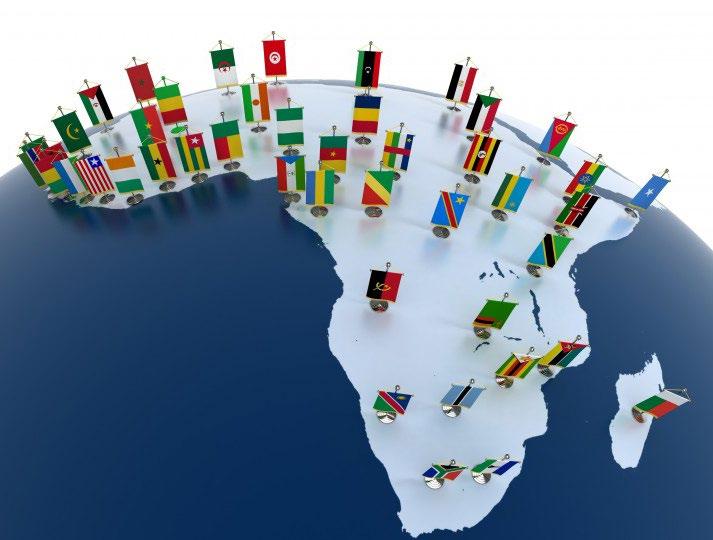
Africa predominantly comprises unitary, federal, and monarchical government forms, with unitary governance styles holding sway across the continent.
Under this system, the central government wields ultimate authority, with sovereign nations operating as a single entity. While sub-national units or administrative divisions can exist, their authority is determined by the national government. This system, characterized by a robust central authority overseeing sub-national governments, is a prevalent form of governance. It centralizes authority within the national government. Zimbabwe, Egypt, Tunisia, and Morocco are examples of countries employing this system.
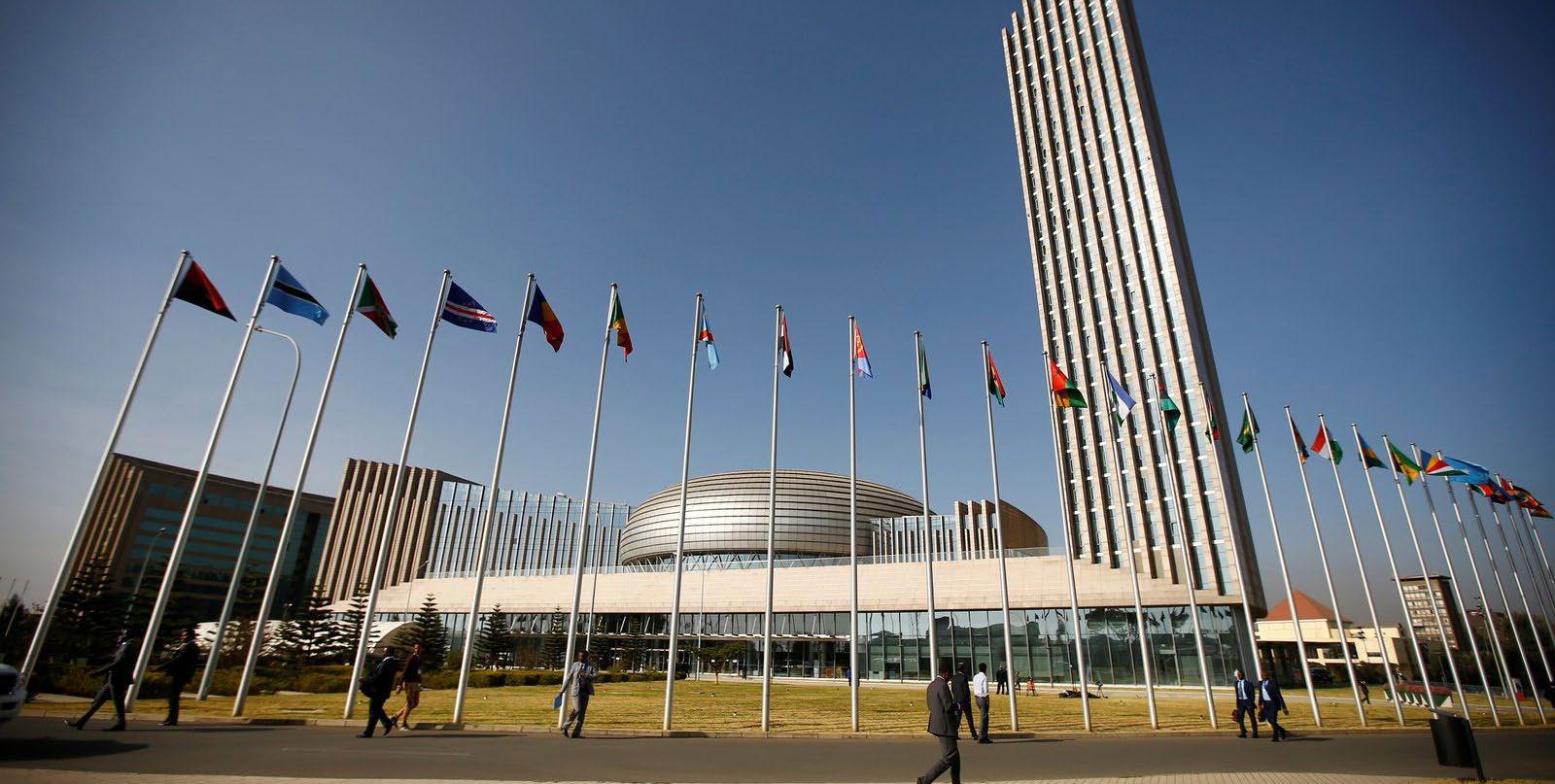
Merits:
In unitary governments, roles and powers of the government are usually well-defined. This clarity often results in faster responses and assistance during crises, in contrast to situations with divided power structures.
Demerits:
However, this concentration of power carries the risk of leading to totalitarian governance, where all authority rests in the hands of a single individual. It can also foster hypercentralization and alienation from local concerns.
In contrast, the federal system of governance divides governmental authority between the federal government and state and municipal governments. Each level of government in a federal system possesses sovereignty over specific matters while sharing control over others. For instance, taxation powers are shared between the federal and state
governments, but declaring war or taking similar actions falls within the purview of the federal government. Nations such as Nigeria, Ethiopia, South Africa, Sudan, and Cameroon employ federal systems of governance.
Merits:
One advantage of federalism or a federal government system lies in its promotion of innovative policymaking, political engagement, and tolerance for differing opinions. The presence of two levels of government with the power to act allows for flexibility, compensating for the failure to achieve a desired policy goal at one level by gaining support at another.
Demerits:
Nevertheless, federalism can impede federal efforts to address national issues, potentially causing cross-state economic and social disparities, increasing inequalities between states, and inciting a race to the bottom among states.
Two predominant governance styles have prevailed in Africa for decades: authoritarian and democratic rule. While many African nations initially experienced authoritarianism, they transitioned towards democratic rule after gaining independence. Yet, coup attempts and political turmoil have sometimes led to military rule. The key distinction between authoritarian and democratic styles lies in their means and impact on citizens. Authoritarian rule can bring stability but often at the expense of political liberties and human rights. In contrast, democracy encourages citizen participation but can be challenging to implement effectively.
Achieving good governance, both globally and especially in Africa, necessitates a fair and impartial legal framework, robust protection of human rights (especially for minorities), an independent judiciary, and an incorruptible security service. Any African country failing to meet these requirements should undergo a review of its governance style. Furthermore, a good government should be participatory, consensus-oriented, accountable, transparent, responsive, effective, equitable, and law-abiding, demonstrating a collective strategic vision.
Challenges Facing African Governments:
1. Persistent Development Challenges: Poverty, underdevelopment, and inadequate access to basic amenities remain significant issues across many African countries, warranting a reevaluation of governance structures and policies.
2. Political Instability: Coup attempts, civil wars, and electoral disputes are common occurrences in some African nations’ political landscapes, obstructing governance, slowing economic growth, and jeopardizing citizen security.
3.Mismanagement and Corruption: Corruption remains a major problem, resulting in poor management of public resources, insufficient funding for essential services, and deterring foreign investment while undermining development initiatives.
4. Weak Institutions: Weak institutional frameworks, such as ineffective judicial systems and bureaucratic inefficiency, hinder the provision of public services and the application of the rule of law, exacerbating inequality and impeding development.
5. Authoritarianism and Lack of Accountability: In some cases, authoritarian regimes suppress political freedoms, quash dissent, and limit accountability, ultimately leading to a lack of transparency.
Development:
Economic Development:
- Diversify economies and reduce reliance on key commodities.
- Maintain stable inflation rates, implement responsible fiscal policies, and establish a stable monetary system to foster investment and a conducive business environment.
- Promote entrepreneurship by facilitating access to funding, reducing administrative obstacles, and supporting start-ups. Foster an environment where innovation can flourish, recognizing that access to affordable financial services empowers people and stimulates economic activity.
It is imperative to note that the emergence of the African Continental Free Trade Area (AfCFTA) will enhance economic activities among African countries, uniting some 1.3 billion traders on the continent and reducing trade restrictions. This will contribute to the continent’s economic strength.
Political Development:
- Invest in robust and independent judiciaries, electoral commissions, and monitoring organizations to enhance democratic institutions and political growth.
- Uphold the rule of law and ensure the noninterference of politics in institutions.
- Promote transparent and accountable governance methods, advance open data projects, hold public officials accountable for their actions, and enact comprehensive anticorruption measures to foster good governance and accountability.
- Combat corruption, strengthen the rule of law, and ensure efficient and responsive institutions.
- Encourage inclusive leadership and policies that reduce ethnic and tribal divisions and cater to the needs of all citizens, regardless of their backgrounds.
Institutional Development:
- Regularly conduct institutional audits to maintain checks and balances among state or government institutions.
- Thoroughly vet appointees to key positions.
- Take deliberate action to penalize heads of institutions accused of corruption and similar violations.
While Africa’s governance practices play a significant role in its development challenges, they are not the sole cause. There is no one-sizefits-all approach, but a comprehensive strategy emphasizing the advancement of democratic institutions, good governance, and inclusion in leadership and public policy can be a positive starting point. To unlock Africa’s tremendous potential and create conditions for long-term economic, political, and institutional progress, it is time for the continent’s governments to jointly assess and modify their governance practices.
To unlock Africa’s tremendous potential and create conditions for long-term economic, political, and institutional progress, it is time for the continent’s governments to jointly assess and modify their governance practices.
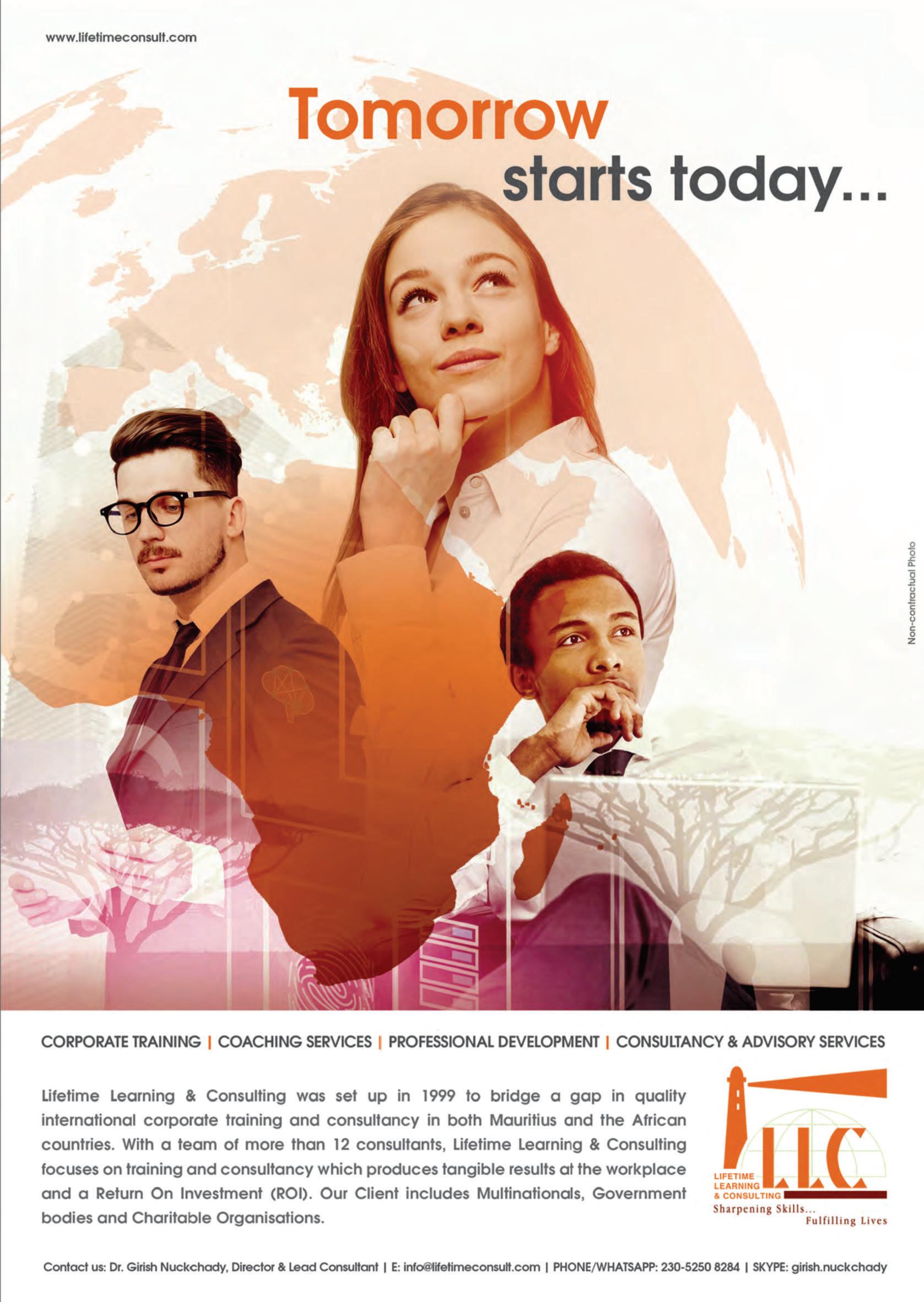
Dr. Benedito Paulo Manuel, the transformative Director-General of Sociedade Mineira de Catoca, stands as a towering figure of success and resilience in the mining industry. His impressive achievements, including elevating Catoca to its esteemed position as Angola’s largest mining company, are a testament to his exceptional leadership. Dr. Manuel’s enduring commitment to placing people at the core of Catoca’s management, while simultaneously enhancing
production and meeting shareholder expectations, is nothing short of remarkable. His dedication extends beyond the company gates, impacting thousands of families through extensive social programs in education, healthcare, and more.
In the face of formidable challenges, notably the COVID-19 pandemic and supply chain disruptions, Dr. Manuel’s innovative strategies and unwavering
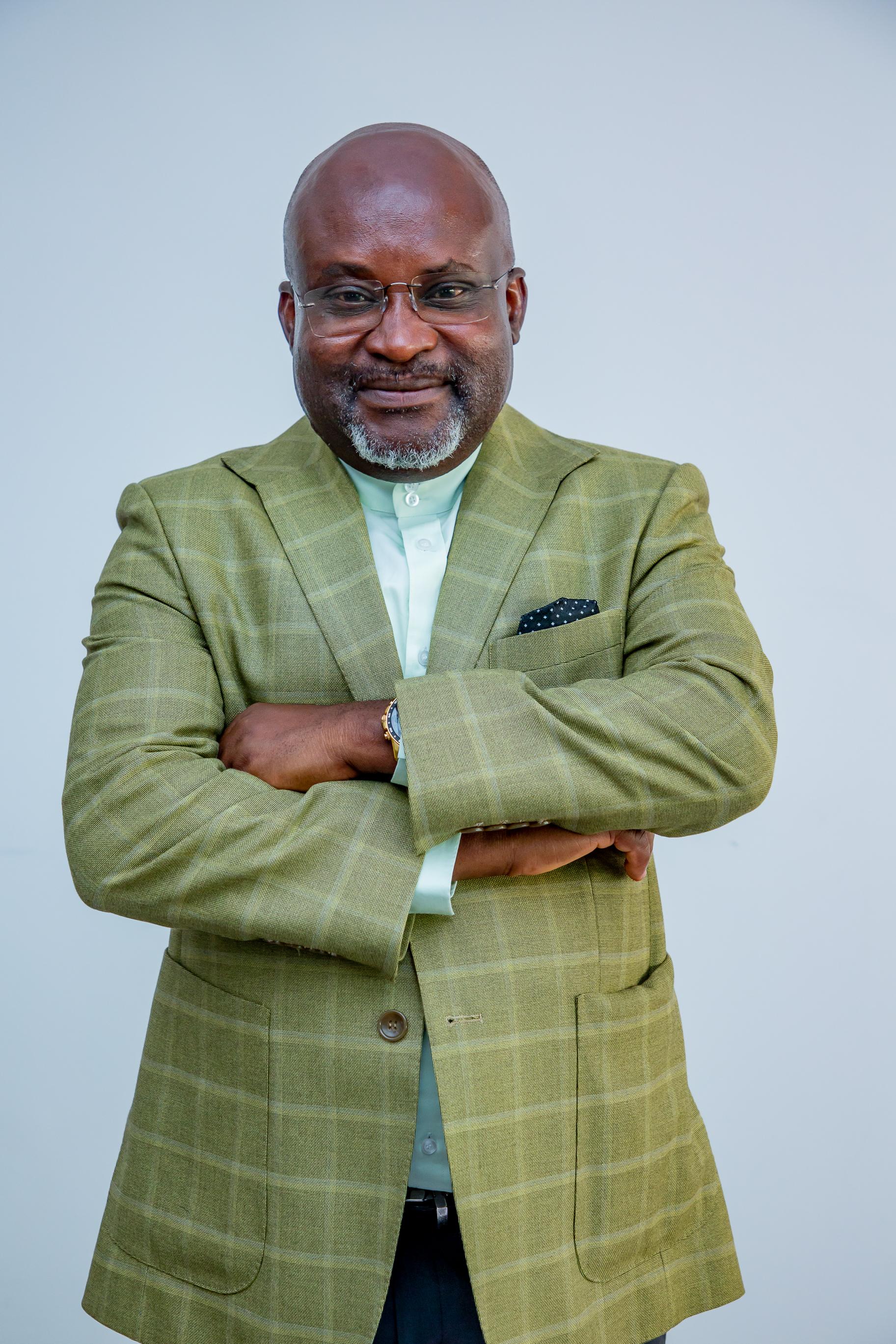
dedication ensured the company’s survival and prosperity. His adept management and astute market behavior led to Catoca’s commendable financial performance in 2021, with profits reaching $270 million.
Dr. Manuel’s vision extends beyond diamonds; he envisions Catoca’s expansion into other mining segments, harnessing Angola’s vast potential. His commitment to developing a supportive ecosystem for mining in Angola, including the supply chain, paints a promising future for the industry. Aspiring mining professionals would do well to heed his advice: seek knowledge, uphold ethics, and embrace international best practices.
For Dr. Manuel, success is measured by the positive impact on people’s lives, and his legacy is one of fostering a brighter future for his country and humanity. His extraordinary journey as a leader in the mining sector exemplifies what can be achieved through dedication, vision, and a profound commitment to the well-being of others. In this exclusive interview, the mining magnate shares his knowledge and experience, as well as strategies for success achieved so far, for the benefit of Africans and beyond.

(Excerpt)
Dr. Benedito Paulo Manuel, you are known as an outstanding individual who has made significant contributions to the mining industry. Your career in mining has been incredibly inspiring. Can you tell us about some of the main achievements you’ve made as DirectorGeneral of the Sociedade Mineira de Catoca?
Although I recognize that there is still much
to be done, I feel honored to be part of the development process of Angola’s largest mining company, Sociedade Mineira de Catoca, actively contributing to the development of our country, a job that impacts the lives of thousands of families.
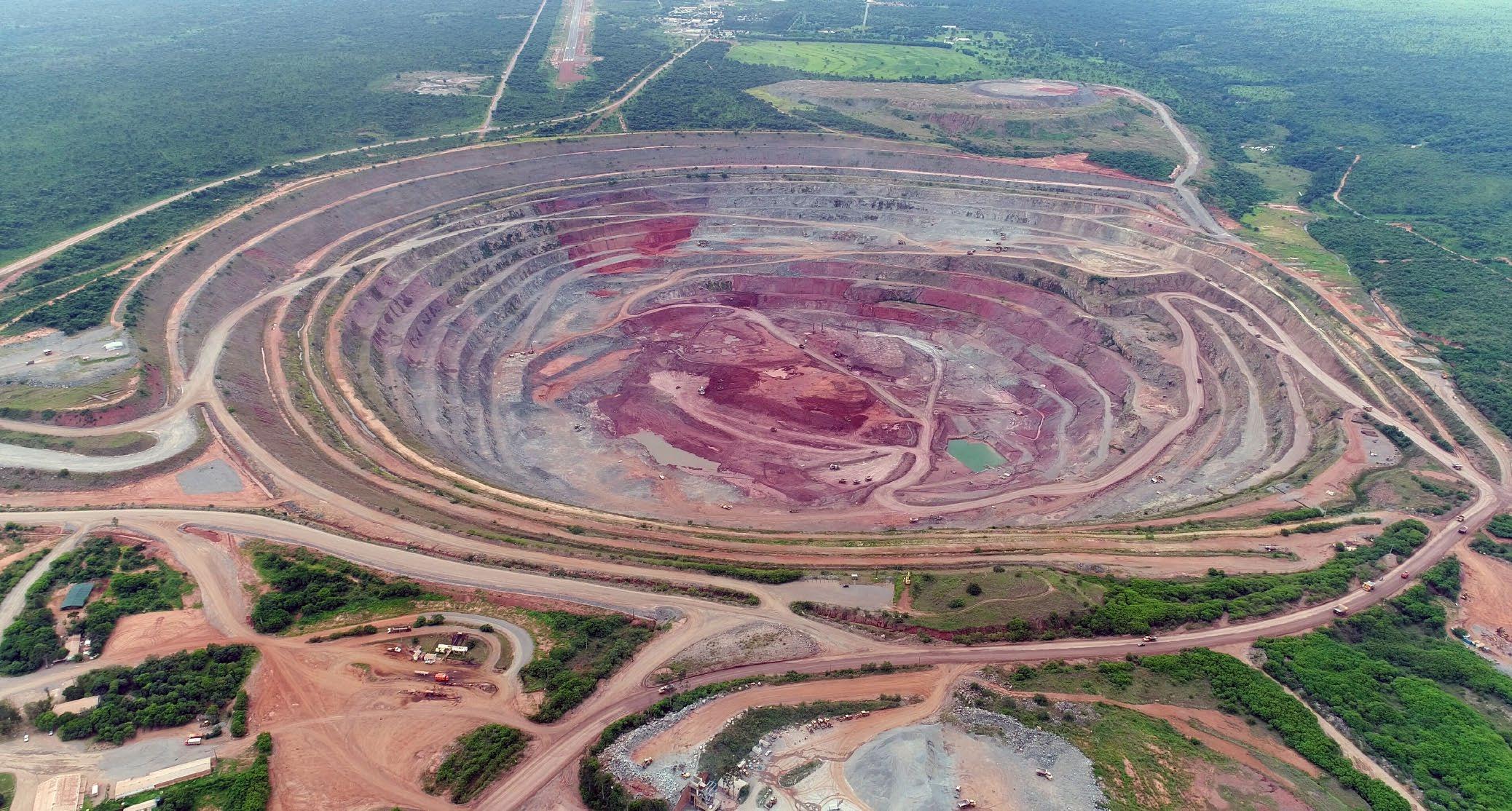
One of the main achievements I’m proud of is the fact that, despite all the contextual challenges, we’ve managed to put people at the center of our management without damaging production indicators and, consequently, shareholder expectations. In other words, despite all the adverse situations, we have improved our production indicators and the quality of our processes, and this has had a positive impact on our financial strength. And when we say that we put people at the center of management, it translates into our commitment to improving the living conditions of our workers, with a very strong focus on improving the benefits package, with the salary in the spotlight and all the other perks that allow us to say that today, in the country, and perhaps on the continent, Sociedade Mineira de Catoca is among the companies with the best benefits package for its workers.
Our commitment is not just limited to our workers. It goes far beyond our gates because, from very early on, we committed ourselves to being a catalyst for economic and social development, which is why, in addition to having more than 20,000 indirect jobs, we invest annually in a vast portfolio of social actions ranging from education, health, combating hunger and agriculture, youth, sports, and culture, programs that are impacting the lives
of thousands of families and helping them to build new perspectives on their future. We’re very proud of this, and it’s important to stress that in recent years, many organizations have slowed down their investment in social areas, and I repeat, despite the very adverse context, we’ve taken on the challenge of stepping up our commitment to this social component.
As leader of the Catoca Mining Society, you have achieved remarkable milestones, despite the challenges faced by the industry. In 2021, Catoca experienced a shortage of equipment and spare parts on the international market, which required innovative solutions and resourcefulness. You’ve probably experienced several obstacles as a leader in the mining sector. Can you name some of the most significant difficulties you’ve overcome and the techniques you’ve used to succeed?
We have major challenges every day. It’s difficult to list them because there are many challenges to overcome every day, some of which we have to create our own solutions, which allows us to say that we have produced science and technologies that can serve as a basis for the activity of other mining companies around the world.

But despite all the challenges we face on a daily basis, the COVID-19 pandemic was one of the most challenging moments, especially given all the uncertainties surrounding the situation, where we almost didn’t know exactly
when it would end and there were stock-outs of almost every type of material needed to maintain production. The factories were at a standstill, and the few who had some stock could even sell, but the ships were all docked in the harbors, keeping all the logistics platforms literally closed.
On the other hand, we had to deal with our internal issues. In order to protect the lives of our workers, in compliance with the biosecurity measures decreed by the health authorities, without prejudice to anyone’s salary, we kept only 30 percent of the workforce working in person. And it’s important to emphasize that this effort was made at a time when we hadn’t recorded any sales for more than seven months because the main international diamond markets were also paralyzed.
The fact is that we managed to overcome the situation by maintaining production, people’s jobs, and a strong social commitment, which allowed us to help the country overcome the COVID-19 situation, and here more specifically, through direct support for the provincial governments in the region where we are based.
Among so many daily challenges, we have to deal with and overcome restrictions imposed by external shocks from the perspective of market conditions, namely price equilibrium, but more than that, it has to do with the supply chain (heavy machinery and highly specialized services) that we have to buy outside the African continent and which we often find very difficult to access. This reality could be different if these
service providers had their bases in Africa, and preferably in Angola, given the geological mining potential.
The diamond industry is highly competitive and constantly changing. What creative measures have you implemented at Catoca to guarantee long-term profitability and growth in such a volatile market?
Price volatility requires a lot of caution so that we don’t end up in a situation where the marginal contribution is negative. We have exercised the necessary caution, adopting very strict production plans in terms of cost control and fairly modest sales price forecasts. This positioning has allowed us to mitigate negative impacts, giving us room to maneuver in cases where there is some negative variation in prices. Another measure that has had an effect has to do with slowing down sales and waiting for the best times when the international market sees a slight reduction in supply and a consequent rise in prices.
To ensure the company’s growth, we are committed to increasing diamond reserves by locating new kimberlites and participating in other mining projects, such as the Luaxe mine, known as one of the largest reserves discovered in recent years. On
the road to development, within the framework of our vision for the company’s development over the next ten years, we aim to enter other business areas within mining, taking advantage of the vast potential opportunities offered by the Angolan and African markets.
Investors looking for opportunities in Angola have witnessed a favorable fiscal and economic climate in recent years. Their actions highlight the significant progress in legislation and access to geological information, particularly through the National Geology Plan (PLANGEO). Catoca’s impressive financial performance in 2021, with a profit of 270 million dollars, is truly commendable. Could you shed some light on the strategies and initiatives that contributed to this remarkable achievement?
2021 was one of our best years in terms of financial results, and this was due to a combination of factors, most notably the improvement in operational efficiency and significant gains in terms of cost reduction. Market behavior also played an important role in that the Catoca diamond was selling at a
In short, the profits made in 2021 were the result of a combination of efficient management and good market behavior. But today, the mine’s geotechnical conditions naturally impose a gradual and substantial rise in production costs after 28 years of existence. And this is one of the major challenges we have to deal with in the coming years, aggravated by the low grade recorded at this stage when we are overcoming a very rocky area of the mine.
Reflecting on the last few years, Catoca has overcome several obstacles, including the global economic recession and the challenges posed by the COVID-19 pandemic. Despite these difficulties, Catoca has maintained production levels and manpower, adopting remote working to ensure employee safety. Angola’s fiscal and economic climate have improved significantly in recent years. The global mining industry has faced huge obstacles as a result of the COVID-19 outbreak. How did you guide Catoca through these difficult circumstances, ensuring the safety of employees and minimizing the impact on production and financial performance?
It was one of the most challenging times as DirectorGeneral of Sociedade Mineira de Catoca. We had many questions about the post-Covid-19 future and almost no answers. Nobody knew if we would resist, if we would be forced to stop production completely, or if the safety measures adopted would actually guarantee people’s safety. The only certainty we had was our conviction that we would do everything to protect people’s lives, the company, the thousands of direct and indirect jobs, and all the other positive externalities for the benefit of the country.
In other words, we adopted all the biosecurity measures decreed by the health authorities, placing more than 60 percent of the workforce at home to comply with social isolation, but
One of the main achievements I’m proud of is the fact that, despite all the contextual challenges, we’ve managed to put people at the center of our management without damaging production indicators and, consequently, shareholder expectations.
without affecting their salaries and all other benefits. We renegotiated contracts, keeping only essential services and all the other measures that allowed us to reduce costs. In this way, we were able to maintain production and the salaries of all the workers, even without earning any revenue for more than seven months, because the main international markets for selling diamonds were paralyzed.
Even so, we maintained our social programs and honored all our financial commitments to our suppliers and the authorities. We are very proud to have traveled this road on our own two feet, with the support of the government, the shareholders, and each and every one of the workers at Sociedade Mineira de Catoca.
Can you explain your role in creating this favorable environment for investors and how this has benefited Catoca’s operations? In the future, what are your visionary aspirations for Catoca? Is there anything new on the horizon that will strengthen the company’s position as a leader in the diamond industry?
According to the answer to the previous question, Sociedade Mineira de Catoca is an unavoidable player in the progress of mining in Angola. Our experience, the quality of our technicians, our technological expertise, and our financial strength make us a key player in the growth of mining in Angola in particular and in Africa in general. We are aware of this and are committed to this challenge. That’s
why we are already taking steps to enter other areas of the mining chain outside of diamonds.
We know Angola’s geological and mining potential and all its opportunities. We are also aware of the need to create an ecosystem that will allow more business to emerge and better conditions for mining in Angola, especially in terms of the supply chain. In other words, we can see our position as a promoter of the emergence of activity in other mining segments in Angola, such as gold, for example.
His leadership and experience have positioned Catoca as a prominent player in the mining industry. His unwavering dedication to sustainability, strategic vision, and resilience in the face of challenges make him an exceptional figure. What advice would you give to future professionals who want to make a substantial impact in this difficult field as a respected figure in the mining sector?
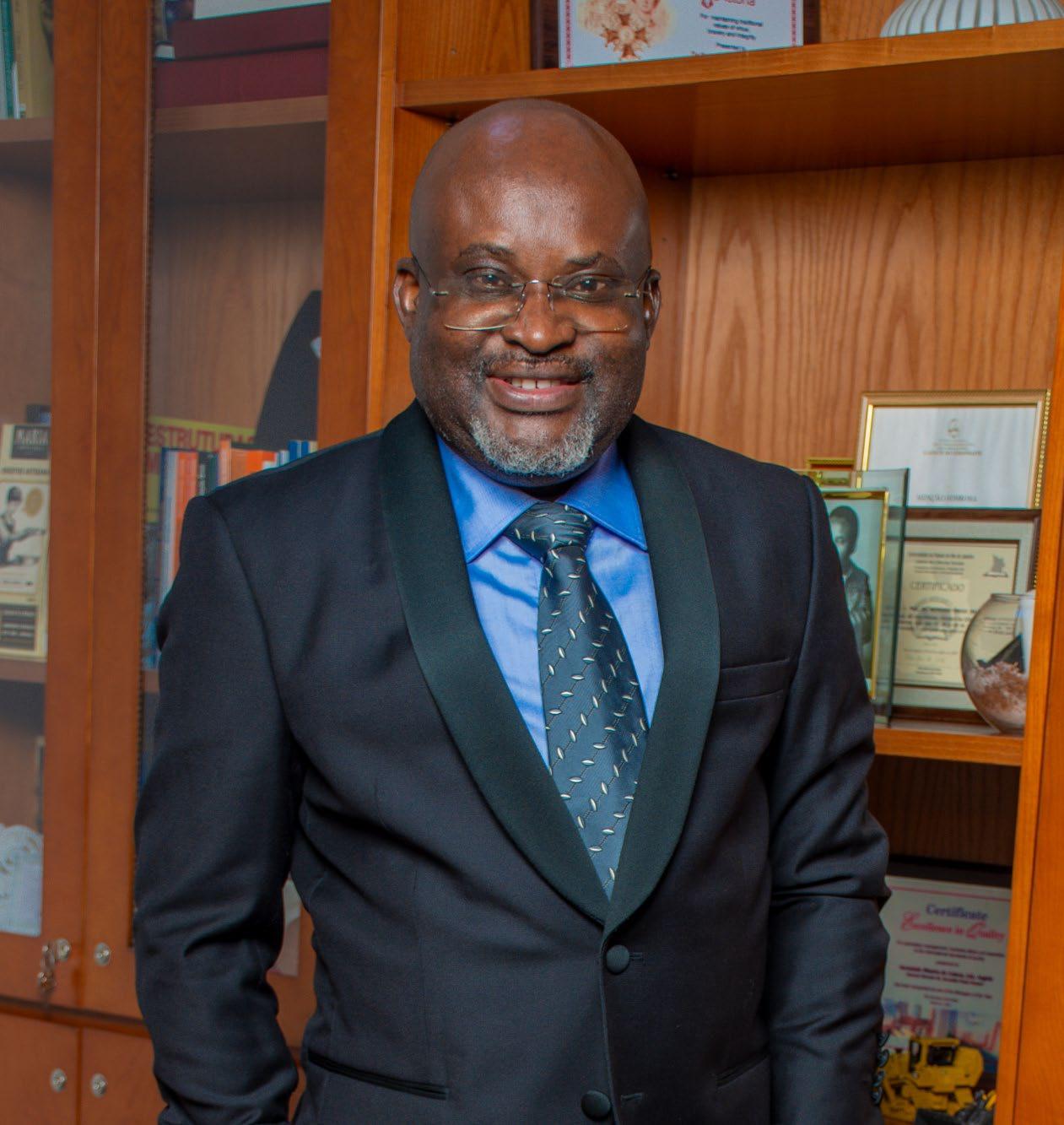
My advice would be to seek out knowledge and adopt a stance based on ethics and respect for internationally accepted good practices so that we can convert potential wealth into wealth, quality of life for people, and the development of the country. I personally have been betting on the emergence of a new generation of highly qualified professionals capable of leading teams and promoting the development of mining companies. We are doing this by placing many young people in intermediate positions in our management structure, placing them in positions in the second and third lines of management so that they have contact with the processes and develop the necessary experience for there to be a normal generational transition in the future. But this will have to be done ethically and very professionally for the benefit of the different stakeholders.
As we draw this interview to a close, given your role as Director-General of Sociedade Mineira de Catoca, how do you define success and what legacy do you want to leave in the mining industry?
Success is the positive impact I make on people’s lives. I consider it success when my goals and actions generate positive impacts. And the legacy I want to leave, especially for younger people, is that we can all do more and better to make our country and humanity as a whole an ever better place for everyone. And this is only possible if each of us contributes to the development of the organizations and societies in which we find ourselves.
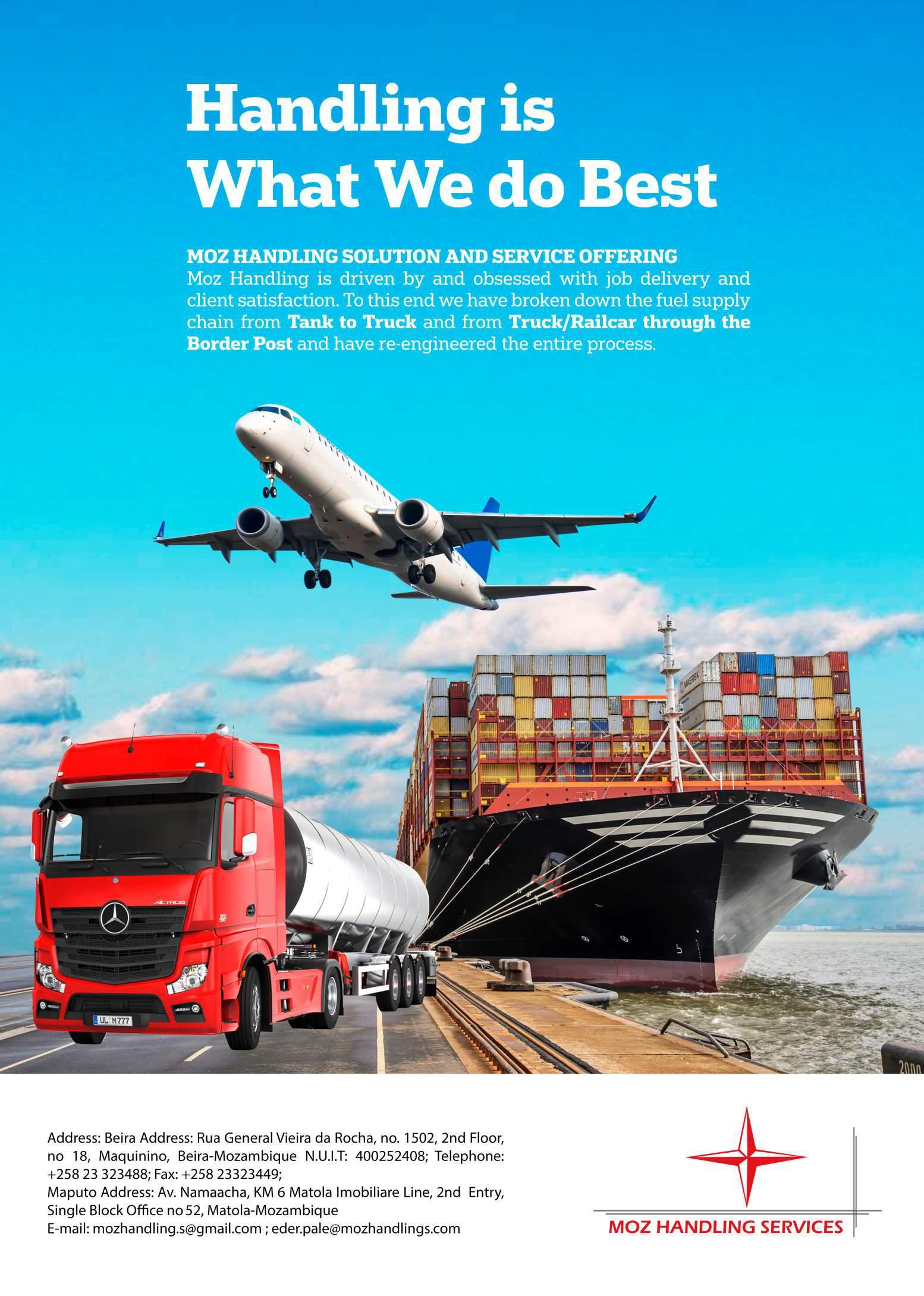
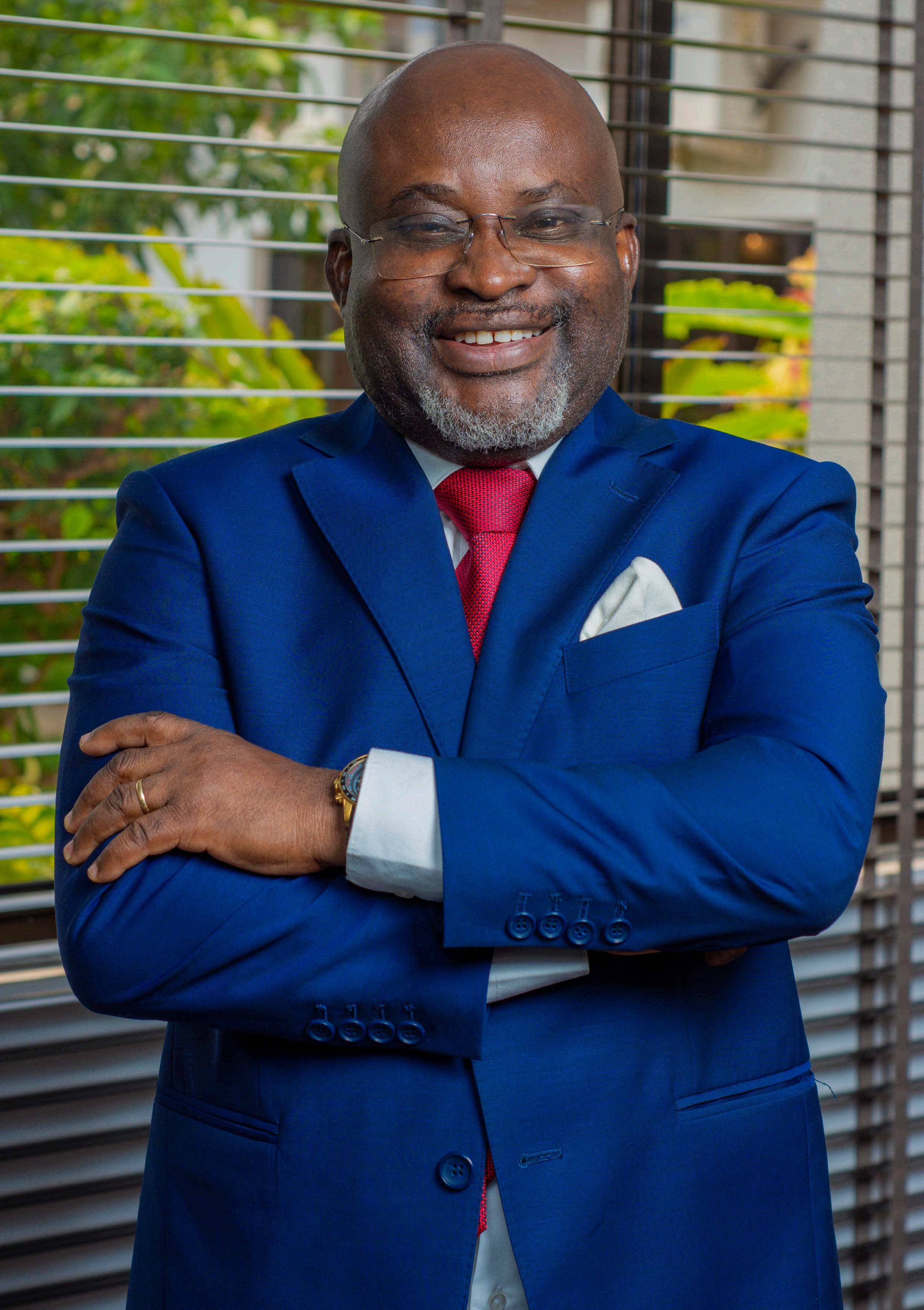
Welcome to the inspiring journey through the remarkable accomplishments of Catoca Mining Society, the powerhouse of Angola’s diamond industry, led by the visionary General Manager, Mr. Bendito Paulo Manuel. In this piece, we will delve into the facets of Catoca Mining Society’s success story and the exceptional contributions of Mr. Bendito Paulo Manuel, who serves as a guiding star to Angola’s mining industry.
Catoca Mining Society shines as an exemplar of success in Angola’s diamond industry, boasting ownership of over 75% of the country’s diamonds. It plays a pivotal role in the nation’s economy, providing over 10,000 direct and indirect jobs. At its helm is Mr. Bendito Paulo Manuel, a distinguished leader who places people at the core of his management philosophy, fostering professional development and enriching countless families through a wide range of social programs offered by Sociedade Mineira de Catoca.
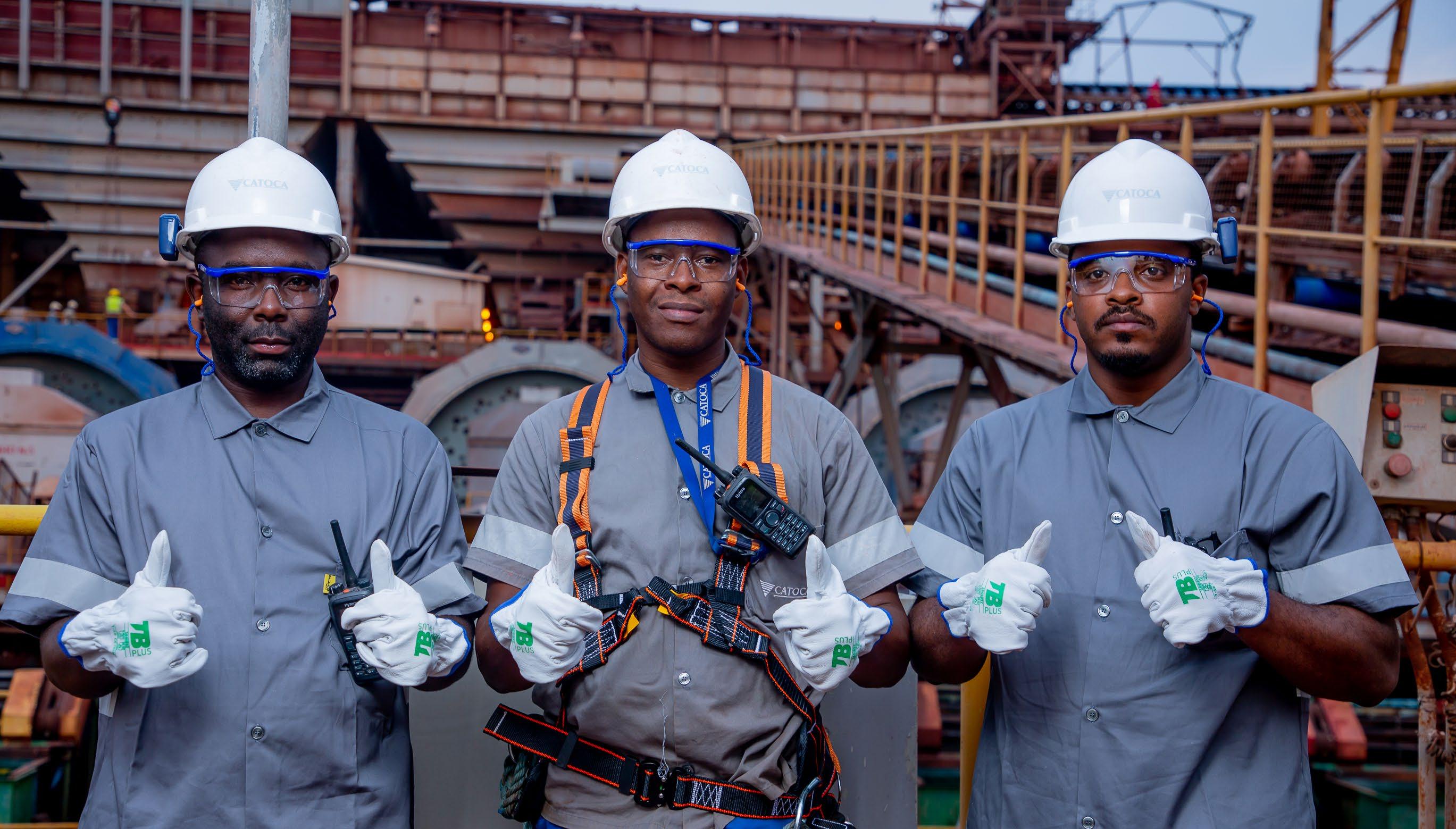
Mr. Bendito Paulo Manuel’s remarkable journey to becoming the Director General of Sociedade Mineira de Catoca reflects his unwavering dedication and exceptional expertise in the mining industry. Let’s explore some of his remarkable achievements that have solidified his reputation as a key figure in the development of Angola’s diamond mining industry.
Under Mr. Bendito Paulo Manuel’s guidance, Catoca Mining Society embarked on a monumental journey of exploration and evaluation, leading to the discovery of the Catoca diamond deposit, estimated to contain a staggering 10 billion carats of diamonds. It’s a testament
to his vision and leadership that such a remarkable find was made under his watch.
One of Mr. Bendito Paulo Manuel’s notable achievements was the remarkable 50% increase in diamond production at Catoca. His strategic acumen and commitment to excellence played a pivotal role in enhancing the company’s output, significantly contributing to Angola’s position in the global diamond market.
Beyond business and profit, safety is paramount in the mind of this visionary leader. Mr. Bendito Paulo Manuel’s leadership is driving a transformation in Catoca’s safety and environmental practices. His steadfast commitment to sustainability led to substantial improvements in the company’s safety record and its environmental performance, setting new industry benchmarks.
Moreover, Mr. Bendito Paulo Manuel’s influence extends to the boards of several prominent mining companies in Angola. His expertise and insights are highly sought after, making him a respected authority in the field. Catoca Mining Society, led by the exemplary Mr. Bendito Paulo Manuel, stands as a pillar of success in Angola’s diamond industry. Their contributions have not only elevated the nation’s diamond production but also set standards in safety, sustainability, and social responsibility. As we celebrate their achievements, we acknowledge the pivotal role they play in shaping the future of Angola’s diamond mining sector and, by extension, that of Africa.
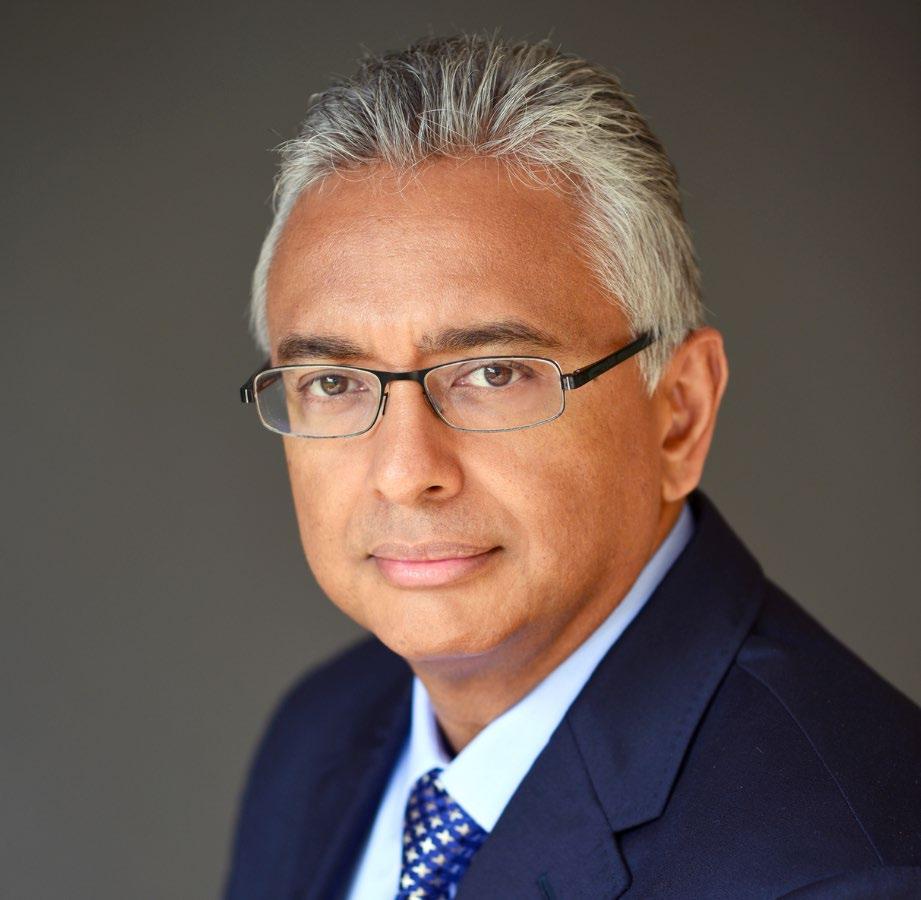 by Richard Spence
by Richard Spence
Not long ago, at the Le Meridien Hotel, Pointe aux Piments, Mauritius witnessed a momentous event—the International Conference on Digital Economy and Digital Banking. The event, hosted under the patronage of the Ministry of Finance, Economic Planning, and Development, featured a keynote address by Prime Minister Hon. Pravind Kumar Jugnauth. It was attended by a distinguished gathering, including Mr. Mathias Cormann, SecretaryGeneral of the OECD, on his first official visit to an African nation. This article’s focus is on the economic strides and growth of Mauritius, as articulated in Prime Minister Jugnauth’s speech, and highlights the country’s remarkable initiatives on the global stage.
Prime Minister Jugnauth’s speech celebrated Mauritius’ commitment to international collaboration, especially with prestigious institutions like the OECD. In March 2019, the Regional Centre of Excellence of the OECD was established in Mauritius, aiming to enhance capacity, conduct research, and advise on regional standards. Mauritius actively participates in various OECD working groups, addressing crucial topics like taxation, multinational enterprises, and tax planning. The nation has embraced international standards and norms, underscoring its dedication to being a jurisdiction of substance, a crucial aspect for investors.
In addition, the Prime Minister proudly noted Mauritius’ swift exit from international watchlists, including the FATF list of countries under increased monitoring, the UK blacklist, and the EU list of high-risk jurisdictions. This achievement reflects the nation’s commitment to financial transparency and integrity. Furthermore, Mauritius consistently ranks first in Africa in indices measuring good governance, a deeper proof of its adherence to the rule of law and institutional excellence.
Prime Minister Jugnauth’s speech was not just about Mauritius but also the continent it calls home. The speech reaffirmed Mauritius’ role in Africa by positioning itself as a platform for international investors and development financial institutions. The country’s vision aims to channel investments and stimulate
growth across Africa. In fact, a recent report by Capital Economics revealed that Mauritius has structured USD 80 billion of investments into Africa, supporting millions of jobs and contributing significantly to tax revenues in African nations. This underscores the nation’s role as an African business hub, fostering cross-border trade and investments.
Furthermore, the conference served as a platform to discuss the potential of the digital economy in Africa. Despite challenges such as limited internet access and low banking penetration, the World Economic Forum estimates that Africa’s digital economy could contribute USD 180 billion to the region’s growth by mid-decade. However, only 39% of the African population currently uses the Internet, and a staggering 57% lack any form of bank account, including mobile money accounts. Prime Minister Jugnauth’s vision highlights the immense opportunity for investors to bridge this digital divide and harness the continent’s potential.
In closing, Prime Minister Pravind Kumar Jugnauth’s speech at the International Conference on Digital Economy and Digital Banking was not just an address on Mauritius’ achievements but a visionary roadmap for Africa and the world. It reaffirmed the nation’s dedication to international collaboration, compliance, and good governance. As Mauritius embraces the digital era, it not only secures its own economic prosperity but also extends a hand to the African continent. Furthermore, it is worth noting that in 2022, The African Leadership Magazine, under the leadership of Dr. Ken Giami, hosted its Person of the Year Event in Mauritius, bringing together individuals from around the world to support the country’s economy. Prime Minister Jugnauth’s words serve as a flashlight of hope for nations seeking to combine innovation, partnership, and steadfast progress to achieve economic success.
Digital economy holds significant potential for African economies. In fact, the World Economic Forum has estimated that Africa’s digital economy could contribute as much as USD 180 billion to the region’s growth by the mid-decade.
Excerpts of the Prime Minister speech:
Distinguished Guests, Ladies and Gentlemen, Good Morning.
I am very happy to join you this morning at this International Conference on Digital Economy and Digital Banking. It is a valuable opportunity to discuss how to enhance the contribution of digitalisation to our African economies.
I am also pleased to extend a special welcome to Mr Mathias Cormann, Secretary General of the OECD 1. I thank you for choosing Mauritius as your first African country for an official visit.
I have to acknowledge the role that the OECD has played in matters regarding taxation, AML/ CFT issues, and investment. Mauritius is proud to be associated with such a prestigious institution for this international conference.
Ladies and Gentlemen, Nurturing cooperation with international institutions has always featured high on our agenda. In particular, we have brought a new dynamism to our engagement with the OECD over the last few years.
In March 2019, the Regional Centre of Excellence of the OECD was inaugurated in Mauritius, with the objective of delivering capacity building programmes, conducting research on topical areas, and advising on minimum standards that need to be introduced regionally.
Mauritius also actively participates in several OECD working groups such as those on Global Minimum Tax, Taxation of Multinational Enterprises, Aggressive Tax Planning, the Blockchain Committee, the Committee on Financial Markets, and the Anti-Bribery Committee.
Mauritius is also party to several OECD led international standards and norms. Our country today is signatory of the Multilateral Convention on Mutual Administrative Assistance in Tax Matters, the OECD Common Reporting Standard on automatic exchange of tax information, the Common Reporting Standards of the OECD, Multilateral Instrument on the Tax-Treaty

Nurturing cooperation with international institutions has always featured high on our agenda. In particular, we have brought a new dynamism to our engagement with the OECD over the last few years
related BEPS 2 measures, the OECD Forum on Harmful Tax Practices, and the Statement on a Two- Pillar Solution to Address the Tax Challenges Arising from the Digitalisation of the Economy.
Our Government is committed to adhering to the best standards and norms so as to substantiate our claim of being a jurisdiction of substance, which is so important for investors and investments.
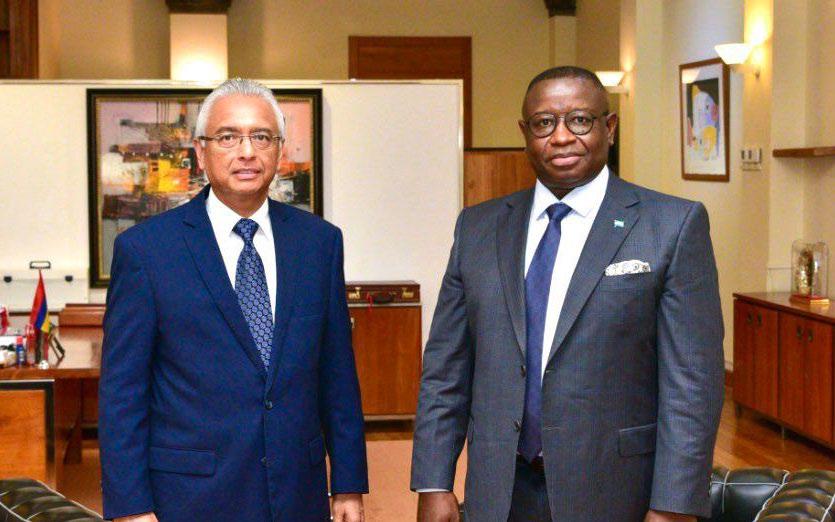
Ladies and Gentlemen, You have seen a few moments ago a video which has shown the impressive transformation of Mauritius from a monocrop low income economy to a diversified one which today stands on the brink of entering the league of high income economies.
Many have tried to find explanations about the underlying factors of this success storythe Mauritian Miracle - as some have called it.
Innovative policies, affordable labour, and preferential market access have all contributed to our development experience. But some other factors have come into play as well. The undaunted resolve of our people and farsightedness of past leaders who created the right institutions and adopted the right policies to drive economic success, have had a major impact on our development path.
Decade after decade, we have evolved and adapted our institutional and regulatory frameworks to meet the stringent exigencies of global standards.
Mauritius has always demonstrated its unflinching commitment to international standards which aim to stamp out criminal activity such as money laundering, terrorist financing and proliferation financing. In a record time, Mauritius has exited the FATF list of countries under increased monitoring, the UK blacklist and the EU list of high-risk jurisdictions. The decision of FATF, UK, and EU further enhances confidence and trust in Mauritius as an International Financial Centre.
Moreover, the Mauritian laws are inspired by international best practices. We allow the acquisition of property and guarantee the protection of property as well. We secure the right of access to independent courts of law and protect investors and their investments. Moreover, there is no discriminatory treatment between local and foreign investments.
In March 2019, the Regional Centre of Excellence of the OECD was established in Mauritius, aiming to enhance capacity, conduct research, and advise on regional standards.
Ladies and Gentlemen,
It is not a matter of chance that Mauritius consistently ranks first in Africa in a number of international indices on good governance. It is a matter of taking the right decisions at the right time and ensuring that the Mauritian people and businesses are the ultimate beneficiaries. The success of Mauritius is a reminder of what can be achieved even in the face of adversity. In this respect, Mauritius is a development model for the African continent.
It is with great enthusiasm that I note that so many Ministers, Governors, and high-level dignitaries from Africa have come here today. Indeed, Mauritius has since always been a proud member of the African family, and despite our constraints, we have time and again renewed our commitment to partner with African economies.
This is why our Government has constantly been honing an Africa strategy which has the overarching objective of positioning Mauritius as a platform of choice linking international investors and Development Financial Institutions to the opportunities that exist in Africa.
We firmly believe, as an African country, that we have the ability to be to the rest of the continent, a business hub enabling growth and investments. To this end, we are constantly striving to consolidate our credentials as an international financial centre of good repute and mitigate risks to help capital flows into the rest of Africa to support growth and development.
According to a recent report by Capital Economics, some USD 80 billion of investments have been structured from Mauritius into Africa, supporting 4.2 million jobs in mainland Africa.
The investment mediated by Mauritius further supports tax revenues for African Government amounting to USD 6 billion per annum. Investors are indeed comforted by our network of Bilateral Investment Treaties and Double Taxation Avoidance Agreements, including with several African economies. To date, we
have signed 23 Double Taxation Avoidance Agreements and 24 Investment Promotion and Protection Agreements with African countries.
These are crucial for tax neutrality and risk mitigation to provide the most conducive environment for cross border trade and investments between Mauritius and mainland Africa.
The organisation of this International Conference on Digital Economy and Digital Banking should be taken in the light of our strategy.
Digital economy holds significant potential for African economies. In fact, the World Economic Forum has estimated that Africa’s digital economy could contribute as much as USD 180 billion to the region’s growth by the mid-decade.
Today, however, only 39% of the African population is using the internet. Africa remains the least connected continent in the world. 57 % of Africans do not hold any kind of bank account, including mobile money accounts, according to BPC Banking Technologies. This is a disquieting state of affairs. But it is also synonymous with a tremendous opportunity for investors.
Before concluding, let me express the hope that this event paves the way for a deeper collaboration between the OECD and Mauritius. I believe this is possible, and necessary.
I also wish to reiterate the keen interest of Mauritius in becoming a member of the OECD. This is a vision that I spelt out back in 2018 during my participation at the first edition of the OECD Blockchain Policy Forum. Mauritius will continue working towards becoming more integrated with the OECD and being the springboard to promote the adoption of OECD Standards and values in our part of the world.
I wish you all fruitful deliberations and a continued pleasant stay for our guests from abroad.
I thank you for your attention.
Mauritius has since always been a proud member of the African family, and despite our constraints, we have time and again renewed our commitment to partner with African economies.
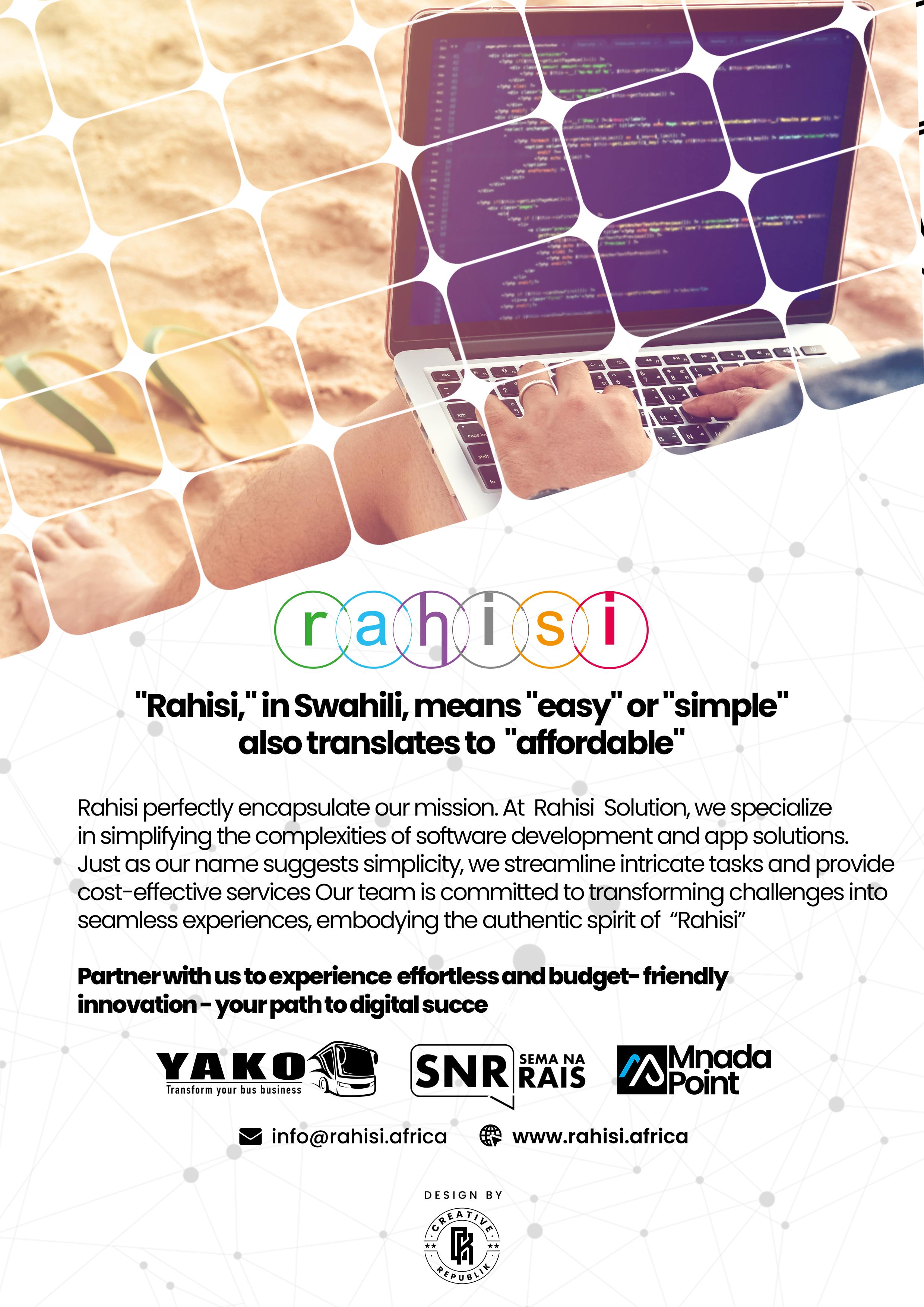
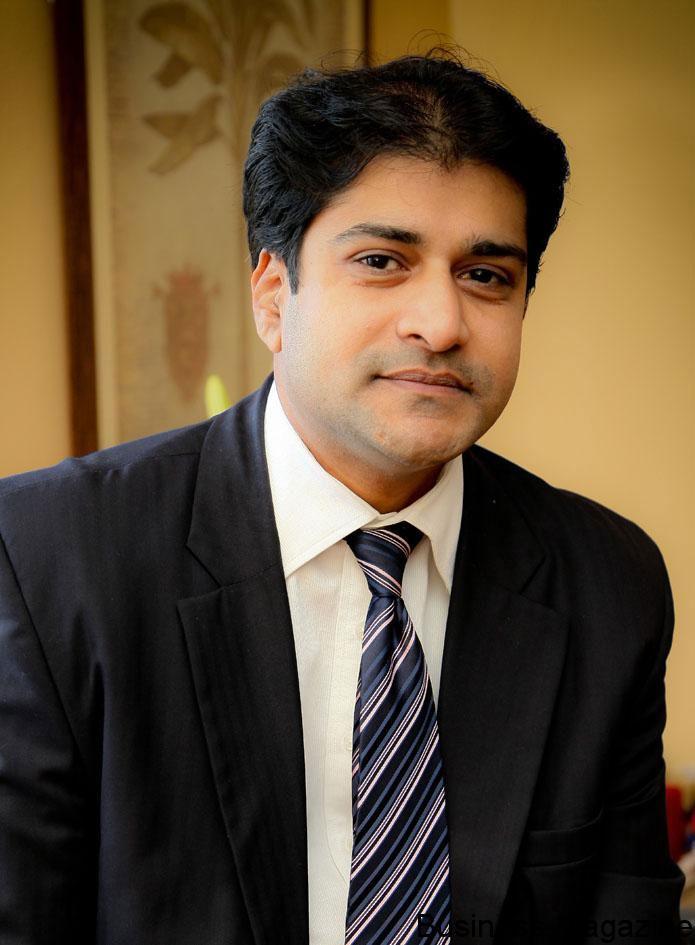 by Richard Spence
by Richard Spence
In this exclusive interview with Mr. Poonoosamy, the head of the Economic Development Board of Mauritius, he reflects on the pivotal moments of his tenure. He highlights the EDB’s role in merging key agencies to streamline Mauritius’ business environment, resulting in international recognition from the World Bank’s Doing Business Report. Under his leadership, the EDB implemented critical reforms, automated licensing processes through the e-licensing platform, and actively negotiated trade and tax treaties, fostering an environment that attracted millions of dollars in foreign direct investment in 2022. Additionally, Mr. Poonoosamy underscores the EDB’s commitment to job creation, particularly in emerging sectors like ICT/BPO and financial services. He also outlines the strategic efforts to showcase Mauritius as a leading destination for these sectors on the global stage. Furthermore, he emphasizes Mauritius’ role in strengthening economic relationships with Africa and other regions, highlighting initiatives, partnerships, and collaborations that have bolstered the country’s position. Lastly, Mr. Poonoosamy details the unique advantages Mauritius offers to investors, including a competitive tax rate, simplified permitting processes, a multilingual workforce, robust legal and regulatory frameworks, and innovative incentives, positioning Mauritius as a trusted and attractive investment destination.
Excerpt:
Mr. Poonoosamy, you’ve been at the helm of the Economic Development Board of Mauritius since 2017. Can you share with us some of the key moments of the journey?
The EDB was created in 2017 from the merger of Enterprise Mauritius, the Board of Investment, and the Financial Services Promotion Agency to ensure greater coherence and effectiveness in the promotion of the Mauritian destination.
The overarching role of the institution, as provided in the Economic Development Board Act 2017, goes beyond trade and investment promotion and includes research, business facilitation, and advisory services, as well as creating the appropriate ecosystem for the development of key sectors of the economy.
It is known that a conducive business environment is key to attracting investors to Mauritius, and the EDB was responsible for the implementation of the reform agenda of the Government of Mauritius.
These reforms were commended by the World Bank, which ranked Mauritius in the 13th position in its Doing Business Report 2019. It is worth noting that a business process
reengineering exercise was conducted by the EDB across 14 ministries to streamline the licensing procedures and requirements, and a regulatory review exercise is being conducted to ensure that the laws are in line with international best practices.
Also, the EDB is responsible for the implementation of the national e-licensing platform to automate and improve the delivery of public sector services and licenses. To date, 18 licenses and permits have been onboarded on the e-licensing platform, spanning constructionrelated permits, work permits, and live permits. For instance, a total of 56,500 building land use permits have been issued from July 2018 to date.
To further strengthen and bolster economic growth, the EDB plays a pivotal role in the advocacy and negotiation of investment and tax treaties and free trade agreements, the latest being with China (Mauritius-China FTA in 2019), India (CECPA in 2021), and the African Continental Free Trade Area (2019). Today, the plethora of trade agreements that Mauritius has signed provides the country with preferential market access to nearly 75% of the world’s population. The EDB has been at the forefront of these negotiations, both on a defensive and offensive approach for our operators. Additionally, Mauritius has signed 44 investment treaties and 53 tax treaties, thereby offering investors a conducive environment for doing cross-border business and investments in a predictable, certain, and secure manner.
The COVID-19 pandemic took a toll on the world, and Mauritius, being a small island development state, has supported its economy and its people with various schemes put in place, such as the COVID-19 Vaccination Programme, whereby the EDB provided
The EDB is striving to diversify the Mauritian economy by encouraging growth in sectors beyond traditional industries and by embracing emerging sectors such as digital industry, technology, renewable energy, pharmaceuticals, and financial services technology, thus creating new avenues for job creation.
assistance to launch a “vaccination programme for business operators” as well as for the issue of the Work Access Permit. It is also worth noting that the EDB was also an important contributor to the measures put in place by the government to protect businesses and SMEs.
It is of paramount importance to highlight that the Freeport of Mauritius is ranked among the Top 10 Free Zones globally by FDI Magazine for the “Global Free Zones of the Year 2022” and 1st in Africa for two consecutive years in terms of the zone’s attractiveness, facilities, and incentives offered to investors. Three years in a row, the Mauritius Freeport has successfully been awarded once again as the best free zone in Africa from the fDi GFZ of the Year Awards 2023. This international recognition highlights the significance of a healthy public-private sector partnership in the sustainable economic development of the Mauritius Freeport & Logistics sector.
Attracting foreign direct investment is crucial for any country’s economic
growth. Could you elaborate on the strategies and initiatives you’ve implemented that have resulted in attracting millions of dollars in foreign direct investment in 2022?
In 2022, FDI reached MUR 27.7 billion, compared to MUR 18.5 billion in 2021. This represents a significant increase of over 50% year on year and has exceeded the preCOVID high of MUR 22.3 billion. Given the nature of investment, the high level of FDI recorded is also a reflection of the current and future health of our economy in terms of growth and stability. This will potentially lead to further FDI inflows in the coming year. We have not only consolidated FDI flows in our existing sectors like real estate, but we have also diversified into emerging sectors such as education and arts and entertainment, which have grown by more than 30 fold.
Similarly, there was sustained growth in our traditional source countries, such as France, the UK, and South Africa. We have also tapped into new markets such as North America, which has exhibited an increase of nearly 10 folds, while increasing visibility in emerging markets such as the Middle East and India so that we can sustain the inflow of FDI to our shores.
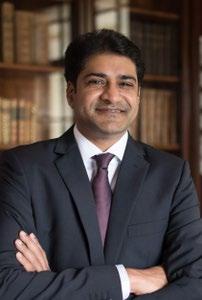
The government has implemented a number of strategies to restore confidence in the investor community, including further opening the country, pursuing reforms for ease of doing business, securing market access to emerging markets, and consolidating existing sectors while providing the right ecosystem for emerging sectors such as education, health care, and energy to thrive.
At the same time, post-COVID, the EDB has deployed an aggressive marketing and promotional strategy to position Mauritius as a trusted and reliable jurisdiction for the export of goods and services and as a platform of choice for cross-border investment.
Creating jobs is a vital aspect of economic development. Can you give us insights into how the EDB has contributed to job creation in Mauritius?
The EDB is striving to diversify the Mauritian economy by encouraging growth in sectors beyond traditional industries and by embracing emerging sectors such as digital industry, technology, renewable energy, pharmaceuticals, and financial services technology, thus creating new avenues for job creation.
By way of example, the ICT/BPO sector has moved up the value chain over the last decade and continues to be one of the largest employers in the country, with more than 32,000 people, mostly young and dynamic professionals. Similarly, Mauritius has seen significant growth with an employment of around 15,000 professionals in its financial services sector, particularly in global banking, insurance, and fund management.
The EDB has put several measures in place to further encourage job creation in the country:
- Amendments to existing occupation permit policies that further facilitate the entry of skilled professionals and attract more talent to the country.
- Organization of job fairs, which provide an invaluable platform for showcasing the diverse opportunities Mauritius has to offer, not only in terms of traditional industries but also emerging sectors.
- Implementation of the Young Professional Occupation permit allowing international students to work for 3 years in Mauritius in all fields after completion of their undergraduate studies to cater for the growing demand for human resources across industries.
- Upskilling and reskilling programs for the existing workforce have been implemented to align with the changing demands of the different sectors, encouraging professionals of Mauritian origin living abroad to return to the country and contribute to sectoral growth, amongst others.
Mauritius is becoming known as a leading destination for ICT and financial services. What specific measures have you taken to showcase the country’s strengths in these sectors to a global audience?
The ICT/BPO industry plays a crucial role in the economic development of the country, as it represents 5.9% of current GDP. The growth performance has been impressive despite challenging economic developments. The industry, which comprises 900 companies, has reached a level of maturity that enables it to compete at a global level.
The adoption of strategic marketing campaigns with a clear and compelling message has been instrumental in showcasing the country’s ICT strengths and also increasing awareness among key outsourcing decision-makers about the country’s competitiveness.
EDB has participated in a number of focused and targeted investment and export promotion missions in key markets such as France, India,
the UK, and South Africa, among others. The aim of these missions has been to promote the country as an investment destination in the ICT/ BPO sector as well as improve the visibility of our island as a trusted partner for the delivery of ICT/BPO-related services.
Digital and traditional media and platforms are also being increasingly leveraged to reach a global audience. In the spirit of fostering partnership, EDB also collaborates with tech industry associations and chambers of commerce to jointly promote the industry on the global stage and for increased brand visibility, thus having a meaningful impact on the industry. The support and collaboration of industry influencers, experts, and thought leaders in the field are also being sought to create and share content.
Besides participation in targeted and focused tech events, ICT-specific events and seminars are also being organized locally to promote and create more visibility for the industry’s key offerings.
Similarly, the financial services sector boasts more than a decade’s track record in cross-border investment and offers an unparalleled, wellregulated, and transparent platform. Over the past 30 years, the Mauritius International Financial Centre (IFC) has gone through several strides and adapted to several changes, which have boosted the jurisdiction up the value chain by enhancing substance and increasing the depth and breadth of services that are offered.
The EDB has organized various targeted financial services promotional missions and multi-sector roadshows in key markets such as South Africa, India, and the United Kingdom to enhance the visibility of the Mauritius IFC. The EDB is also very present at specialty financial services conferences.
It is noteworthy that a digital marketing strategy has also been rolled out for the promotion of the Mauritius IFC, including the development of a Mauritius IFC website that provides a comprehensive digital window on all aspects of the financial services sector of Mauritius,
The EDB has organized various targeted financial services promotional missions and multisector roadshows in key markets such as South Africa, India, and the United Kingdom to enhance the visibility of the Mauritius IFC.
including laws, schemes, service providers, events, and links to related agencies. For the period February 2022 to June 2023, the Mauritius IFC website has attracted over 10,900 visitors from over 115 countries.
Building economic ties with other regions is a strategic move. Could you shed light on the ways in which you’ve strengthened Mauritius’s economic relationships with Africa and other regions under your leadership?
Mauritius has an umbilical cord with Africa and has forged strong partnerships with several African states. Over the last few years, many African countries have embarked on a process of transformation, experiencing unprecedented rates of growth, a rise in trade and investment, and structural transformation. In the 1990s, Mauritius emerged as an outward investor, and it is evident that Mauritianowned assets in Africa are bringing economic dividends to our country. Being a small island economy, the country is highly dependent on foreign relations and advocates regional integration premised on its membership in the African Union and regional economic groupings. There is a need to further strengthen and widen our collaboration with other African countries and tap into our appurtenance to Regional Economic Communities (RECs) to bolster economic diplomacy.
To that purpose, the government’s strategy is to reinforce our economic collaboration with African States and leverage the geostrategic position of Mauritius to drive investment into the continent. It has already embarked on several initiatives to cement our relations with most African States, including:
- The Economic Development Board encourages Mauritian enterprises to develop business operations in selected African countries by promoting outward investment to Africa and facilitating the endeavors of domestic enterprises on the continent that will enable them to establish a strong foothold in the African market and thereby emerge as regional multinationals.
- Setting up of permanent joint commissions
and special economic zones with a number of African countries to explore avenues of cooperation and enhance economic diplomacy.
- The coming into force of the African Continental Free Trade Area (AfCFTA), the Comprehensive Economic Cooperation and Partnership Agreement (CECPA) with India, and the Free Trade Agreement with China position Mauritius as the ideal platform linking India and China to Africa. Leveraging these agreements, Mauritius can be the trade platform and encourage Indian and Chinese companies to set up shop in Mauritius and export to Africa.
- Mauritius has the potential to position itself as an economic hub in Southern Africa, and the African Continental Free Trade Area will open new markets for Mauritius and boost its economy by way of increased exports.
Reinforcing partnership programs is essential for shaping stronger economic ties between countries. To that effect, the EDB has taken several initiatives to boost cooperation and exchange with its African counterparts. Those initiatives include the negotiation and signature of MoUs with African IPAs. Those agreements have established a favorable framework for cooperation between investment promotion agencies, and they also demonstrate the consistency and growing relations that have been developed over time.
The EDB is also very active and visible on the continent, and it regularly responds positively to invitations received from African countries. The latest forum we attended was the BRICS summit. Mauritius was represented by the Hon. A. Ganoo, GCSK, and Minister of Land Transport and Light Rail, and the then Minister of Foreign Affairs, Regional Integration, and International Trade, and participated in the BRICS-Africa Outreach and BRICS Plus Dialogue (BRICS Dialogues). The EDB participated in the BRICS Trade and Investment Exhibition and manned the Mauritius booth with the Mauritius High Commission in South Africa and the MTPA.
The EDB supports exchange programs between investment promotion agencies in view of reinforcing partnerships and peer-topeer learning in the context of South-South cooperation. The programs are aimed at supporting regional agencies to embark on a series of initiatives and reforms to improve the country’s investment and business climate. In 2023, the EDB hosted delegations for peer-topeer learning from Madagascar, Seychelles, Rwanda, Togo, Ghana, Nigeria, and Botswana.
The Economic Development Board is also a member of flagship institutions such as
Mauritius also welcomes potential investors, professionals, and digital nomads to carry out business or work remotely with the Premium Travel Visa.
COMESA RIA and the regional chapter of the World Alliance of International Financial Centres.
The EDB is organizing the Africa Partnership Conference in collaboration with the Ministry of Finance, Economic Planning, and Development (MOFED) on October 2nd and 3rd, 2023, in Mauritius. The conference theme, ‘Unity in Partnership: Enabling Sustainable and Inclusive Investment, echoes our objectives of building stronger economic relationships with African countries.
It is also noteworthy that the EDB became a member of the World Alliance of International Financial Centres (WAIFC) in 2019, and we are currently spearheading the Africa Roundtable of the WAIFC, which represents WAIFC’s members in the African Continent, including Casablanca Finance City, EnterpriseNGR Lagos Financial Centre, and Rwanda Finance. The Africa Chapter is meant to promote Africa’s financial centres, financial services, and cross-border business in the region and to drive impactful investments from around the world to the continent.
Furthermore, the EDB and the Eastern Africa Association inked a memorandum of understanding in March 2023 in order to formalize the commitment of both the EDB and the EAA to collaborate and support one another in carrying out their respective responsibilities, as well as to assist in promoting Mauritius to investors in Eastern Africa.
In the pursuit of attracting more investment, could you share some of the unique advantages that Mauritius offers to potential investors that set it apart from other destinations?
The Mo Ibrahim Index of Good Governance, the Democracy Index of the Economist Intelligence Unit, and the Index of Economic Freedom of the Heritage Foundation, among other internationally acclaimed indices, all converge in acknowledging Mauritius as a safe and competitive jurisdiction.
We offer a progressive and competitive tax rate for foreign investors, a simplified process for obtaining all permits, a multilingual workforce, and state-of-the-art infrastructure in banking, telecommunications, and transport.
Our legal and regulatory framework satisfies the strict exigencies of cross-border capital movements. Inspired by international best practices, our laws allow the free movement of capital and the acquisition of property and
ensure access to independent courts of law. Our wide range of international investment agreements and bilateral agreements provide protection to international investors.
Mauritius is today recognized as a jurisdiction of substance and a renowned international financial center, with a robust anti-money laundering and countering the financing of terrorism (AML/ CFT) regulatory and supervisory framework. We have a well-regulated banking system, with a number of international banks having footprints in the country.

In view of promoting pioneering and innovative industries, the premium investor certificate has been introduced to enable companies with a minimum investment of USD 12 million to benefit from bespoke incentives, including rebates, exemptions, and preferential rates in relation to taxes, duties, fees, charges, and levies, as well as a range of other facilities and grants.
Mauritius also welcomes potential investors, professionals, and digital nomads to carry out business or work remotely with the Premium Travel Visa. In addition, the Occupation Permit is available to expatriates seeking to work and live in Mauritius and make it their second home. It is a 10-year residency permit open to investors, retirees, professionals, self-employed entrepreneurs, and their families.
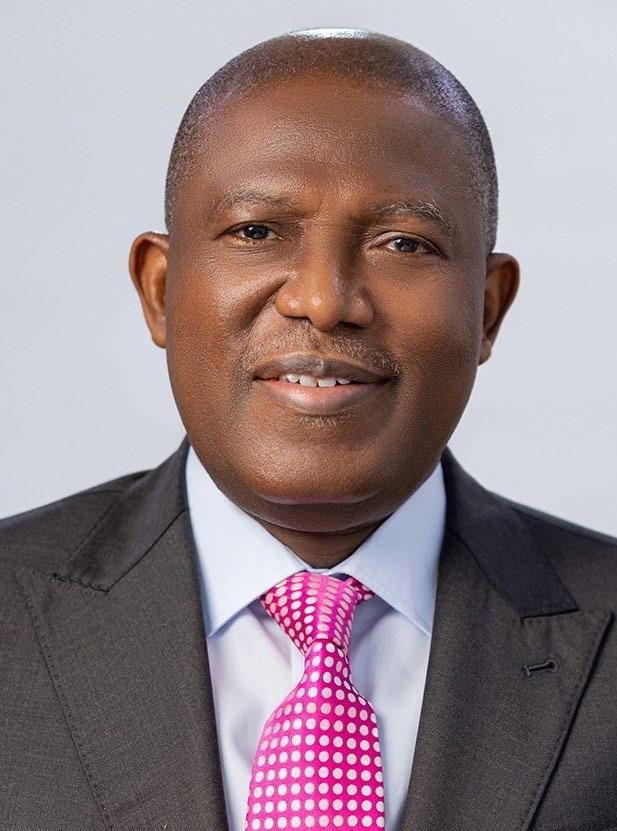 by Daniel Prince
by Daniel Prince
In the realm of impactful giants in various sectors of the Nigerian nation that have contributed to its status as a giant in Africa, Mr. Olukayode Pitan stands tall in the finance sector. With a career spanning over three decades in various financial services sectors, including banking and capital markets, Mr. Pitan has emerged as a visionary leader, impacting Nigeria’s economic development through innovative financial solutions and unwavering commitment. This article delves into the life and achievements of this remarkable individual who has played a pivotal role in shaping the financial landscape of Nigeria, the giant of Africa.
Mr. Olukayode Pitan was born with an inherent passion for finance and economic development. Hailing from a family deeply rooted in financial services, he was exposed to this field early in life, igniting his interest. After completing his education, he embarked on his professional journey, which eventually led him to the zenith of the Nigerian financial sector.
As the Managing Director and CEO of Bank of Industry Ltd., Mr. Pitan’s leadership has been nothing short of transformative. Under his guidance, the institution has become Nigeria’s oldest and largest development finance institution, providing crucial support to various sectors of the Nigerian economy. The Bank reported total assets of N2.38 trillion for its operations in the year ending December 31, 2022, indicating a 39.2 percent growth compared to the previous year. BOI has consistently improved major financial indices year on year, cementing its position as Nigeria’s largest and most impactful Development Finance Institution.
One of Mr. Pitan’s significant achievements has been the provision of affordable longterm financing and counter-cyclical loans, which played a pivotal role in stabilizing and sustaining economic growth in Nigeria. Under his astute leadership, Bank of Industry Ltd. diversified its loan portfolio across multiple sectors, ensuring a well-rounded approach to economic development. Recently, the bank announced the disbursement of about N2.8 billion in loans to over 20,550 micro-enterprises and 280 Small and Middle Enterprises (SMEs) in Kaduna State to boost ailing businesses.
Under Mr. Pitan’s dynamic stewardship, Bank of Industry Ltd. has witnessed a transformation like never before. Over the past three decades, he has orchestrated remarkable feats that have reshaped the financial landscape of Nigeria. In the last three years alone, his leadership has enabled the bank to secure approximately
USD 3 billion from the international market. Notable among these achievements is the groundbreaking $750 million syndicated medium-term loan, a collaborative triumph with Africa Export-Import Bank (AFREXIM Bank) and 16 other esteemed international financial investors. However, the true testament to Mr. Pitan’s prowess came during the onset of the first lockdown when he orchestrated a historic €1 billion syndicated loan involving 24 financial institutions and investors. This milestone deal marked a watershed moment in the history of Nigeria’s financial industry.
Furthermore, in December 2020, he facilitated yet another monumental achievement by securing a $1 billion syndicated loan through the collaboration of 64 international financial institutions and investors. These successes underscore Mr. Pitan’s exceptional ability to navigate complex financial markets and secure vital investments that fuel Nigeria’s economic growth.
Mr. Olukayode Pitan’s impact extends beyond the borders of Nigeria. He has pioneered several innovative transactions in the Nigerian capital market and the international financial market, all aimed at furthering Nigeria’s economic development. These transactions have not only garnered international attention but have also significantly contributed to Nigeria’s economic growth.
One notable accomplishment is Mr. Pitan’s success in raising approximately $5 billion from the international market through syndications and the bond market over the last four years. This remarkable feat underscores his ability to navigate complex financial landscapes and secure international investments for Nigeria’s benefit.
Before assuming his current role at Bank of Industry Ltd., Mr. Pitan held several key positions within the financial sector. He served as the MD/CEO of First Interstate Bank PLC, Executive Director at Unity Bank PLC, and Executive Director at FSB International Bank PLC. Notably, he was the pioneer MD and CEO of ENSEC, a specialized banking
One of Mr. Pitan’s significant achievements has been the provision of affordable longterm financing and counter-cyclical loans, which played a pivotal role in stabilizing and sustaining economic growth in Nigeria.
unit of FSB International Bank PLC, focusing on the energy sector in Nigeria. These roles underscore his extensive experience and versatile skill set in the financial services industry.
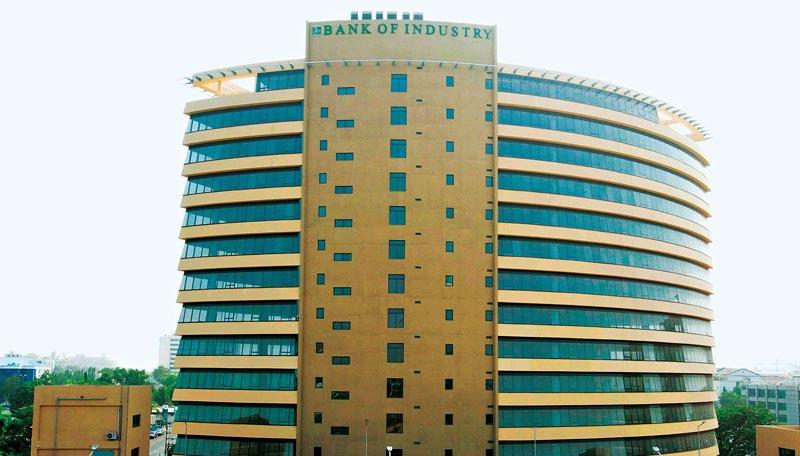
Chairman of ANDFI: Mr. Pitan’s influence extends to various facets of Nigeria’s financial landscape. He currently serves as the chairman of the Association of Nigerian Development Finance Institutions (ANDFI). In this role, he plays a vital role in shaping the policies and strategies that drive economic development through financial institutions across Nigeria.
Director representing West Africa: On a broader scale, Mr. Pitan serves as the director representing West Africa on the board of the Association of African Development Finance Institutions. This role not only highlights his commitment to regional economic growth but also positions him as a key player in the African financial ecosystem.
Commitment to Youth Empowerment: Apart from his professional commitments, Mr. Olukayode Pitan is actively involved in youth empowerment initiatives. He sits on various boards, providing invaluable advisory and governance support to organizations dedicated to empowering youth. His dedication to nurturing the next generation of leaders is an attestation to his commitment to a sustainable and prosperous Nigeria.
Mr. Pitan’s career is an intricately woven fabric of diverse experiences and qualifications. He holds the esteemed title of Fellow in several prestigious institutes, including the Chartered Institute of Bankers of Nigeria (FCIB), the Chartered Institute of Stockbrokers (FCS), the Institute of Credit Administration of Nigeria (FICA), and the Nigeria Economic Society (FNES). His membership in the Institute of Directors of Nigeria reflects his giant stride in corporate governance and ethical leadership.
But it’s not just about accolades; his educational journey is equally impressive. Mr. Pitan is an alumnus of both the Lagos Business School and the London Business School, institutions renowned for their excellence in business education. Furthermore, he has honed his leadership skills through training at the Haggai Institute in Singapore and the Galilee International Management Institute in Israel, thereby enhancing his global perspective and leadership acumen.
Mr. Olukayode Pitan’s journey from a young, ambitious finance enthusiast to the esteemed Managing Director and CEO of Bank of Industry Ltd. is nothing short of inspiring. His dedication to economic development, innovative financial solutions, and youth empowerment has left a golden imprint on Nigeria’s financial sector. As we look to the future, Mr. Pitan’s visionary leadership continues to chart the course towards a sustainable and prosperous Nigeria, making him a true luminary and a doyen in the world of finance and economic development.
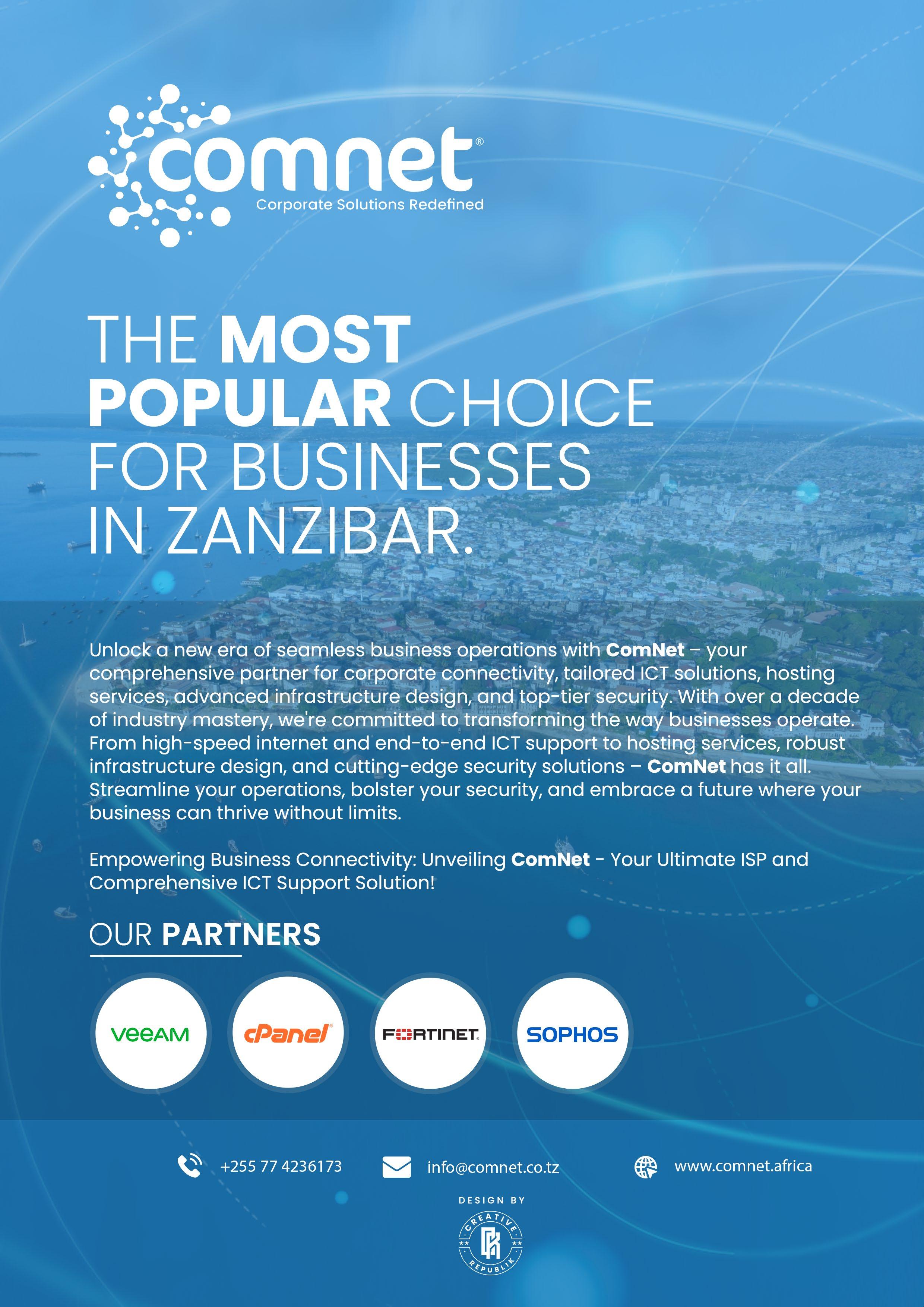

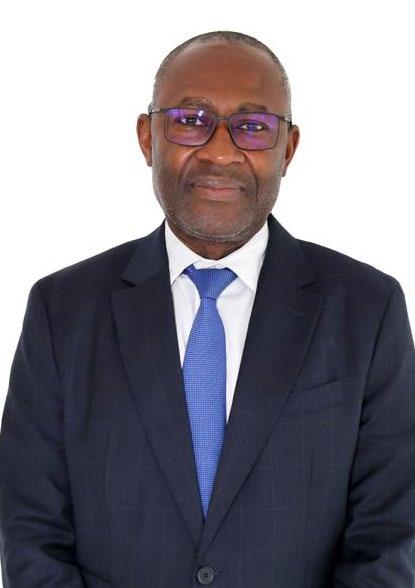
In an exclusive and captivating interview with Dr. Anselmo Monteiro, Director General of the Integrated Citizen Assistance Service (SIAC) in Angola, he unveiled the remarkable initiatives that are reshaping lives and communities under his guidance. A standout accomplishment is the introduction of a groundbreaking one-stop-shopping concept, streamlining public and private services under a single roof. This pioneering approach has slashed bureaucracy, decentralized services, and brought them closer to citizens, all while reducing travel costs. Moreover, Dr. Monteiro’s tenure has been characterized by a profound commitment to social responsibility, encompassing worker training, educational support, and outreach to vulnerable communities, making SIAC a true symbol of service excellence.
Dr. Monteiro’s impending receipt of the ‘Special African Leadership Commendation Award’ serves as a validation of the collective endeavors of SIAC and MAPTSS teams. He views this accolade not only as a personal honor but also as a catalyst for elevating public institutions in Angola. In his role as the new President of the Board of Directors for the National Institute of Social Security Angola, he is motivated to leverage this recognition to enhance service delivery and ignite positive change within the nation’s public sector, ultimately benefiting society at large. It is abundantly clear that Dr. Monteiro’s visionary leadership and unwavering dedication will continue to make a substantial impact on Angola’s citizen services and beyond.
(Excerpt)
Could you share with us some of the initiatives and projects you have spearheaded at SIAC Angola that have made a significant impact on the residents and communities you serve?
Throughout my tenure at SIAC, we have launched numerous initiatives that have had a profound impact on the lives of our citizens. A prime example is the pioneering implementation of the one-stop-shopping concept in Angola. This innovative approach consolidates a wide array of public and private services within a single physical space, significantly reducing bureaucracy and decentralizing services. It has brought these services closer to the citizens, resulting in faster and more accessible assistance, all while substantially cutting down on travel costs for the governed. In addition to this, we have embraced a profound commitment to social responsibility, including investments in enhancing the professional competence of our workforce through targeted training, partnerships with primary and secondary schools to foster civic and cultural education, collaboration in the preparation of degree and
doctoral theses in public administration and social sciences, sponsorship of books authored by young writers, and providing aid to the most vulnerable communities through awareness campaigns and the distribution of food and essential goods.
Transparency and accountability are pivotal for upholding public trust in governmental institutions. Could you elaborate on how SIAC Angola has demonstrated transparency in its operations during your leadership, and what plans do you have to replicate these practices in your new position?
A| Transparency has been a cornerstone of our operations at SIAC. Our first significant milestone towards transparency was ensuring that our actions align with the laws governing institutional functioning and Angola’s constitution. To this end, SIAC has set an example by establishing an efficient management control mechanism, conducting citizen satisfaction surveys regarding service provision, maintaining a regular presence across various media channels (TV, radio, newspapers, magazines, and social networks), and creating a weekly radio program titled “Tempo de Cidadania” with a focus on citizenshiprelated discussions. These exemplary governance practices ought to be emulated in other contexts. In my new capacity, we are actively pursuing initiatives to disseminate the results of the institution’s activities.
We understand that leadership presents its share of challenges. Could you highlight some of the most significant challenges you’ve encountered during your tenure as Director General, and the strategies you employed to overcome them in order to achieve the organization’s objectives?
Indeed, leadership is not without its hurdles. At the time, I brought with me valuable experience in change management, accumulated during my role as an administrator of Cooperacao
Transparency has been a cornerstone of our operations at SIAC. Our first significant milestone towards transparency was ensuring that our actions align with the laws governing institutional functioning and Angola’s constitution.
Italiana in Angola. My transition to the civil service posed initial difficulties as I encountered barriers that were often absent in management processes and procedures. We confronted challenges that sought to usher in a new way of thinking and operating within the Angolan public sector. This journey commenced with the implementation of a quality management system and culminated in achieving certification to the ISO 9001:2008 standard. The certification process, in particular, greatly bolstered the credibility of SIAC’s management processes and played a pivotal role in reshaping the behavior and actions of our institution’s employees.
As President of the Board of Directors, Dr. Monteiro, could you outline your vision for the future of Angola’s National Institute of Social Security and your strategic approach to realizing it?
My vision harmonizes closely with our institutional objectives, which revolve around enhancing the conditions and quality of life for the majority of workers and their families. This entails expanding the social security system to encompass a broader spectrum of workers, adapting coverage to accommodate an array of social risks, and managing the system in a manner that safeguards its financial sustainability while fulfilling current and future commitments. In essence, we aspire to accomplish the goals outlined in the Government Programme, Revised PDN, and ELP2025 (in preparation for the extension to 2050). Our intentions are to equip the INSS to adeptly apply multilateral and bilateral Social Security conventions, elevate the quality of life for workers and their families through comprehensive social protection measures, mitigate poverty and social vulnerabilities, especially among women, the elderly, children, and disabled individuals, regardless of their contributions to social security. Furthermore, we aim to promote awareness of Social Security rights and responsibilities from an early stage, starting from school.
We are cognizant of your ambitions to modernize social security systems. Could you provide insights into the specific steps you envision to maintain the organization’s relevance and efficiency in the ever-evolving socioeconomic landscape?
Absolutely. Our roadmap encompasses:
1. Institutional Strengthening: We plan to reinforce and organically train entities within the social security system, such as INSS, ICT, and training management entities. This approach will promote their continuous development, ensuring the certification of service quality, enhancing the technical capabilities of central services, and devolving INSS competencies to local services. This decentralization will enable us to execute all the functions that the system demands, with a focus on proximity to citizens.
2. Human Resource Enhancement: Recruiting and training human resources in appropriate numbers and with the requisite professional qualifications to fulfill all INSS functions is a top priority. This investment will facilitate the delivery of excellent service.
3. Information and Communication Technology: Furnishing the INSS and other Social Security entities with necessary information and communication technologies is crucial. These technologies will ensure accessible and digital social security services.
In a continually changing socioeconomic environment, what new initiatives do you envision to fortify the institute’s financial stability and augment its ability to effectively assist citizens?
In this evolving socioeconomic landscape, our mission is to contribute to formalizing the economy and labor relations, given that approximately 80% of employed workers are currently not registered with Social Security.
To enhance financial stability, we are committed to promoting social security with efficient, transparent, and profitable management, aligning with international practices established by the AISS (International Social Security Association). Simultaneously, we will diversify our investment portfolio of financial assets to secure sustainability.
Furthermore, we aim to ensure the sustainability of mandatory social protection by bolstering revenue generation and striking
Dr. Monteiro’s tenure has been characterized by a profound commitment to social responsibility, encompassing worker training, educational support, and outreach to vulnerable communities, making SIAC a true symbol of service excellence.
a balance between MCP funding and current and future obligations.
On the revenue side, our strategy includes increasing the declaration of wages and the payment of contributory obligations by taxpayers. We will improve the management of declared and unpaid contributions and ascertain the contributions owed for undeclared remuneration. Subsequently, we will implement both voluntary and coercive means of collection and payment in accordance with the law. This comprehensive approach will maintain equilibrium between revenue, financing, social benefits, and administrative costs.
Regarding expenditure, we will align the management of benefit provision with the effective payment of contributions throughout the legally guaranteed period. Additionally, as our system matures, we will promote growth in the Social Security reserve and stabilization fund. Comprising technical reserves and Social Security assets within a capitalization system, this fund will ensure the fulfillment of present obligations and secure the sustainability of Mandatory Social Protection. This includes improving collection, balancing MCP funding, and addressing present and future responsibilities.
Efforts to increase revenue will involve encouraging wage declaration and contributory payments, improving the management of declared and unpaid contributions, determining contributions for undeclared remuneration, and employing various voluntary and coercive methods of collection and payment as stipulated by law. This holistic approach will ensure equilibrium between revenue, financing, social benefits, and administrative expenses. In terms of expenditure, we will adapt the management of benefit allocation to coincide with effective contributions over the legally guaranteed duration. Lastly, while the system is still in its infancy, we will stimulate growth in the Social Security reserve and stabilization fund, consisting of technical reserves and Social Security assets under a
capitalization system. This strategic move will guarantee the fulfillment of current and future obligations.
The ‘Special African Leadership Commendation Award’ is a remarkable achievement. What does this honor mean to you on a personal level, and how do you anticipate it will impact your new role as President of the Board of Directors for the National Institute of Social Security Angola?
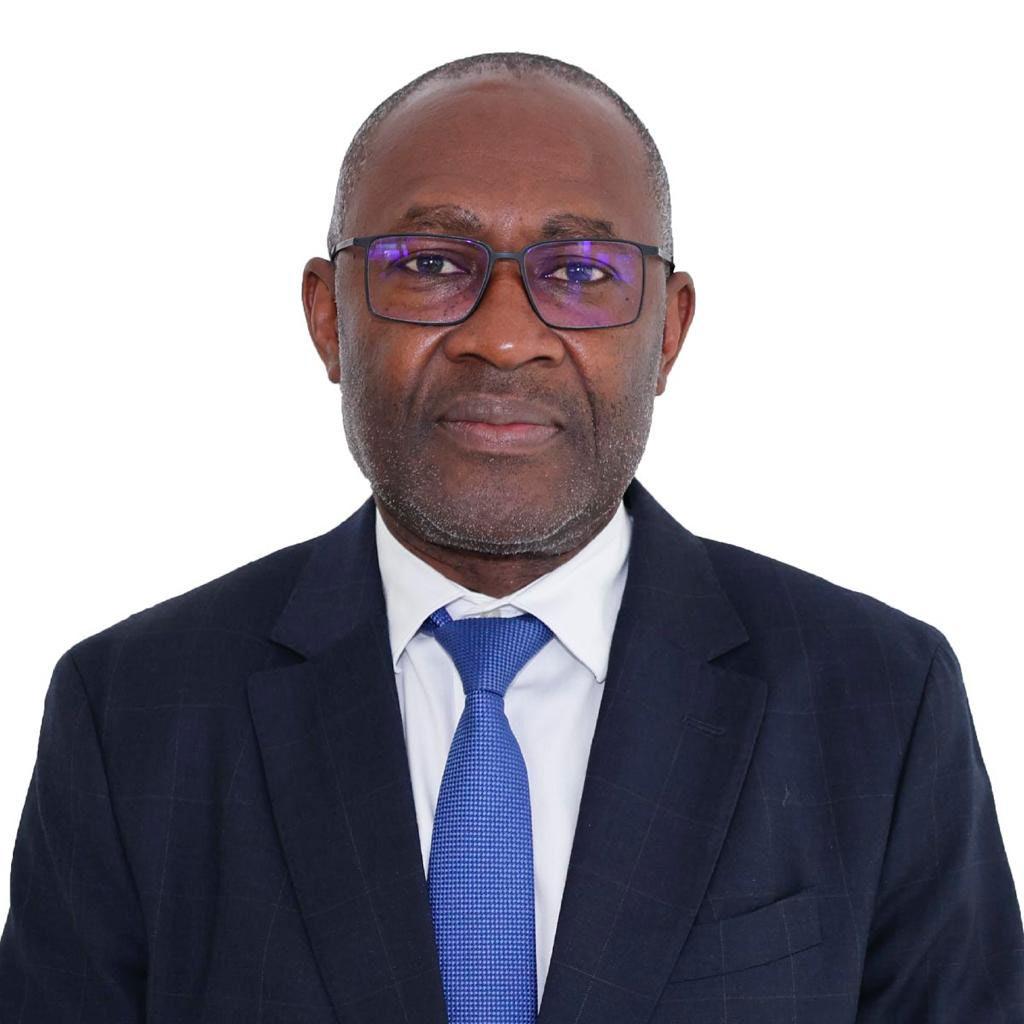
A| Above all, this award is a testament to the power of teamwork. I extend my heartfelt tribute to the entire team at SIAC and MAPTSS, as well as to the citizens whose demands have propelled our collective efforts toward improved service delivery with unparalleled dedication. This accolade holds special significance as I embark on my new role. It serves as both a guiding principle to carry out my responsibilities more effectively and a robust incentive for Angolan public institutions to elevate their performance for the greater good of society. In summary, I am deeply honored to receive this prestigious award.
The International Forum on AfricanCaribbean Leadership brings together African and Caribbean leaders from diverse backgrounds. How do you intend to utilize this opportunity to foster collaboration and exchange ideas for the enhancement of citizen services in Angola and the African-Caribbean region?
These gatherings serve as valuable platforms for interaction and the exchange of experiences pertaining to the challenges and opportunities in our respective contexts. Consequently, I view these forums as open doors to forge fruitful relationships and establish strategic partnerships, with the overarching goal of nurturing the growth of each participating nation. In this particular instance, we are particularly focused on strengthening south-south cooperation ties.
In the dynamic landscape of leadership, where versatility and adaptability are paramount, Anselmo Viriato Monteiro stands as a shining example. As the Chairman of the Board of Directors of the National Institute of Social Security (INSS) in Angola, Monteiro's journey is a testament to his unwavering commitment to public service and his remarkable ability to tackle diverse challenges head-on.
Monteiro's career is a rich tapestry of experiences, weaving through both the public and private sectors. However, it's in the realm of sports management that his leadership truly shines, with over three decades of dedicated service.
His journey commenced as a logistics manager at DIMA TRANSPORTI in the historic city of Rome, Italy, spanning from 1989 to 1991. The foundations of his administrative prowess were laid here, setting the stage for his future endeavors.
In 1992, Monteiro embarked on a new chapter, joining the Italian Cooperation in Angola. Here, he wore many hats, from administrative and accounting assistant roles to eventually becoming the Administrator of the Italian Cooperation in 2007. His tenure was marked by a tireless dedication to fostering cooperation and development between Italy and Angola.
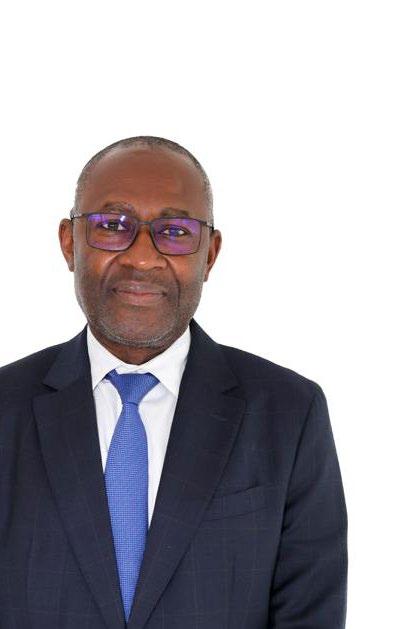
The turning point in Monteiro's illustrious career came with the winds of change brought by the Angolan government's Administrative Reform Program. This program gave birth to the Integrated Citizen Assistance Service (SIAC), a pivotal institution inaugurated in September 2007. Monteiro's expertise was indispensable, leading to his appointment as the Head of the Department for Public and Private Business Services, a role he discharged until 2012.
In recognition of his exemplary service, Monteiro ascended to the esteemed position of Director General of SIAC, a role that further cemented his reputation as a forward-thinking and effective leader. Under his guidance, SIAC's services proliferated exponentially, expanding to 11 of Angola's 18 provinces, with 16 service sub-units, a testament to his relentless pursuit of enhanced citizen services.
However, the zenith of his career was reached in August 2020, when he assumed the role of Director-General of the National Institute of Social Security (INSS). This marked not only a career milestone but also a profound alteration in the direction of this crucial institution. In September 2021, a statutory amendment elevated him to the position of President of the Board of Directors, consolidating his authority over INSS.
Monteiro's qualifications are equally impressive. He holds a Bachelor of Science in Commercial Tourism from Libera Facoltà di Scienze Turistiche Caserta, Italy. His academic achievements are bolstered by a commitment to ongoing learning and professional development.
Born in May 1965, Monteiro has continually honed his skills through a series of specialized courses and training programs. In 1994, he pursued an Italian Literature Course at Universitá Degli Studi di Milano, delving into the richness of Italian literary traditions. In 2018-2019, he embarked on an Executive MBA journey at the Universitat de Barcelona - EAE Business School, equipping him with cuttingedge business acumen.
Monteiro's training extends to diverse fields of governance and management, enhancing his capacity to navigate complex challenges. He completed a course on Models of Innovation in Public Administration and Public Administration Management in Spain in November 2018. Additionally, in November 2017, he delved into the intricacies of Public Administration Reform at the Centro Latinoamericano de Administración para el Desarrollo - CLAD in Santiago de Chile.
In June 2014, Monteiro embarked on a Global Strategic Innovation journey through the International Executive Program (CSIIFP) and the International Entrepreneurial Program at Stanford University in Silicon Valley and Berkeley University in San Francisco. This immersive experience empowered him with a global perspective on innovation and entrepreneurship.
Further honing his skills, Monteiro attended courses on Quality and Control Management and Public Sector Hiring: Quality, Culture, and Continuous Improvement at CLAD in Montevideo, Uruguay, in October 2013. His quest for knowledge continued with a course on Evaluation of Results and Quality and Modernization of Services at ENAD, Angola, in May 2012. He also participated in a Course on the Modernization of Public Services in Portuguese-Speaking Countries at the University of Macau in September 2011.
Monteiro's quest for excellence extends to his diverse range of extra-curricular activities. From 2017 to 2020, he held the prestigious position of President of the National Association of Basketball Coaches of Angola (ANTB). Basketball has always been more than a sport for Monteiro; it's a platform for leadership and community building.
His journey in basketball includes a multitude of roles, including being a Coach and Training Coordinator at Atlético Petróleos de Luanda from 1992 to 2012. In September 2003, he embarked on an Administrative Technical Internship at Providence University in the USA. His commitment to basketball coaching led to him becoming a Basketball Coach Level III certified by FIBA in 2002. In August 2002, he further enriched his expertise with an Administrative Technical Internship at the Federazione Italiana Pallacanestro.
The period from 1996 to 1999 saw Monteiro as the Senior Team Assistant Coach at Atlético Petróleos de Luanda, further shaping the future of basketball in Angola and nurturing budding talent.
In summary, Anselmo Viriato Monteiro embodies the essence of a true Renaissance leader. His multifaceted career, commitment to public service, dedication to basketball, and unwavering pursuit of knowledge illustrate the remarkable tapestry of his life. As he continues to shape the future of Angola's social security system, one thing is abundantly clear: Anselmo Monteiro is a leader for the ages, destined to leave an indelible mark on the nation's history.
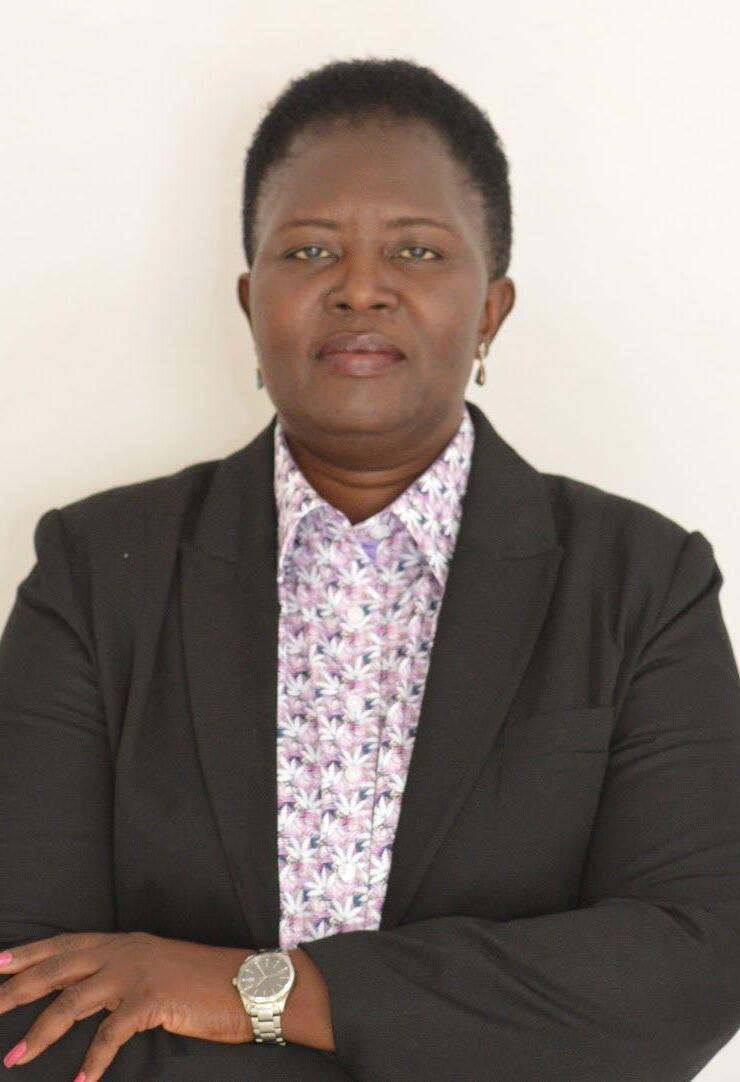 By Meresia Aloo
By Meresia Aloo
When it comes to financial inclusion and economic empowerment in Zambia, few individuals can rival the remarkable achievements of Mary Mumba, the current Chief Executive Officer of the Zambia Credit Guarantee Scheme (ZCGS). With a staunch commitment to improving the lives of Zambian Micro, Small, And Medium Enterprises (MSMEs) by enhancing their access to affordable financing, Mary Mumba has emerged as a trailblazer and a point of reference for Zambia’s economic landscape.
Mary Mumba’s strides in finance and economic development have been nothing short of extraordinary. Born and raised in Zambia, Mary Mumba laid the foundation for her illustrious career by obtaining a Bachelor of Arts degree in Public Administration and Development Studies from the University of Zambia. Her thirst for knowledge and unwavering dedication to her cause led her to secure scholarships for her master’s degrees, thus beginning a journey that would change the face of financial inclusion in Zambia.
With a Master of Science degree in Microfinance from the University of Bergamo, Italy, and a Master’s degree in Business Administration from Business School Netherlands, Mary Mumba acquired the knowledge and expertise required to revolutionize the financial landscape in her home country. Her education served as a springboard for her career, equipping her with the tools needed to address one of the most pressing challenges faced by MSMEs in Zambia: access to affordable financing.
Furthermore, Mary Mumba’s career trajectory includes pivotal moments that have significantly contributed to the growth and development of MSMEs in Zambia. Prior to her role as CEO of the Zambia Credit Guarantee Scheme, she served in various capacities at Zambia National Commercial Bank and National Savings and Credit Bank, accumulating extensive experience in the banking sector.
However, it is her role at the helm of the Zambia Credit Guarantee Scheme that truly underscores her commitment to financial inclusion. Established as a government-owned company, ZCGS was founded with a singular mandate: to provide partial credit guarantees that enable viable and eligible Zambian MSMEs with inadequate collateral to access affordable financing from lending financial institutions. In doing so, Mary Mumba and her team have catalyzed the growth, development, and contributions of these enterprises to job creation and poverty alleviation.
Moreover, Micro, Small, And Medium Enterprises (MSMEs) are the lifeblood of most developing countries, and Zambia is no exception. These enterprises play a pivotal role in job creation, economic growth, and poverty reduction. Recognizing the vital importance of MSMEs in the Zambian context, Mary Mumba has dedicated her career to addressing one of the key constraints hampering their growth: the lack of access to finance, primarily due to inadequate collateral.
Under Mary’s leadership, the Zambia Credit Guarantee Scheme has become a cornerstone of support for countless aspiring entrepreneurs and business owners across Zambia. It acts as a critical bridge, connecting these enterprising individuals with the financial resources they need to turn their dreams into reality.
Mary Mumba’s pursuit of excellence in financial inclusion extends beyond the borders of Zambia. She is a Harvard
Business School alumna, having undergone rigorous training in strategic leadership and financial inclusion. Additionally, she has been honed by the Coady Institute of Canada in community-based microfinance for financial inclusion. Her commitment to learning and staying at the forefront of industry trends is further evidenced by her certificates in credit management and compliance management from the Institute of Credit Management in South Africa and the University of Cape Town in South Africa, respectively. Mary’s expertise is underpinned by a diverse skill set that encompasses various facets of the financial sector. Holding a diploma in banking and finance from the Zambia Institute of Bankers, Mary Mumba possesses a wellrounded understanding of the intricacies of the banking industry, which she leverages to drive financial inclusion and economic empowerment in Zambia.
Beyond her professional accomplishments, Mary Mumba is a mother of four who knows how to balance her demanding career with her personal life. In her spare time, she enjoys the simple pleasures of gardening, watching movies, and reading, a testament to her ability to find solace in life’s smaller joys.
Mary Mumba’s journey from humble beginnings to becoming a driving force behind Zambia’s financial inclusion efforts is an inspiring narrative of dedication, education, and a relentless commitment to making a difference. Her time as CEO of the Zambia Credit Guarantee Scheme is bringing out the potential of MSMEs and their pivotal role in the economic development of her country.
As Zambia’s financial landscape continues to evolve, Mary Mumba remains at the forefront, steering the MSMEs ship towards a future where access to finance is no longer a barrier but a catalyst for prosperity. Her story remains a blessing and an example of what can be achieved through visionary leadership and a steadfast commitment to the betterment of society. Mary Mumba is not just a financial expert; she is a change-maker, a role model, and an inspiration to many in Zambia and across the continent.
Her education served as a springboard for her career, equipping her with the tools needed to address one of the most pressing challenges faced by MSMEs in Zambia: access to affordable financing.
In a world where the medical diagnostic industry fiercely competes, the pursuit of exceptional medical diagnostics is paramount for superior healthcare and optimal medication outcomes. In this exclusive interview with the visionary Mr. Everest Okpara, MD/CEO of Everight Diagnostic and Laboratory Services Limited, he unveils the extraordinary success story of his company. Everight’s unwavering mission? Empowering clients with the knowledge they need to make life-changing therapy decisions, laying the groundwork for their well-being. Witness the rise of a brand poised to dominate the Nigerian market, offering a comprehensive suite of products and holistic laboratory services driven by cutting-edge technology.
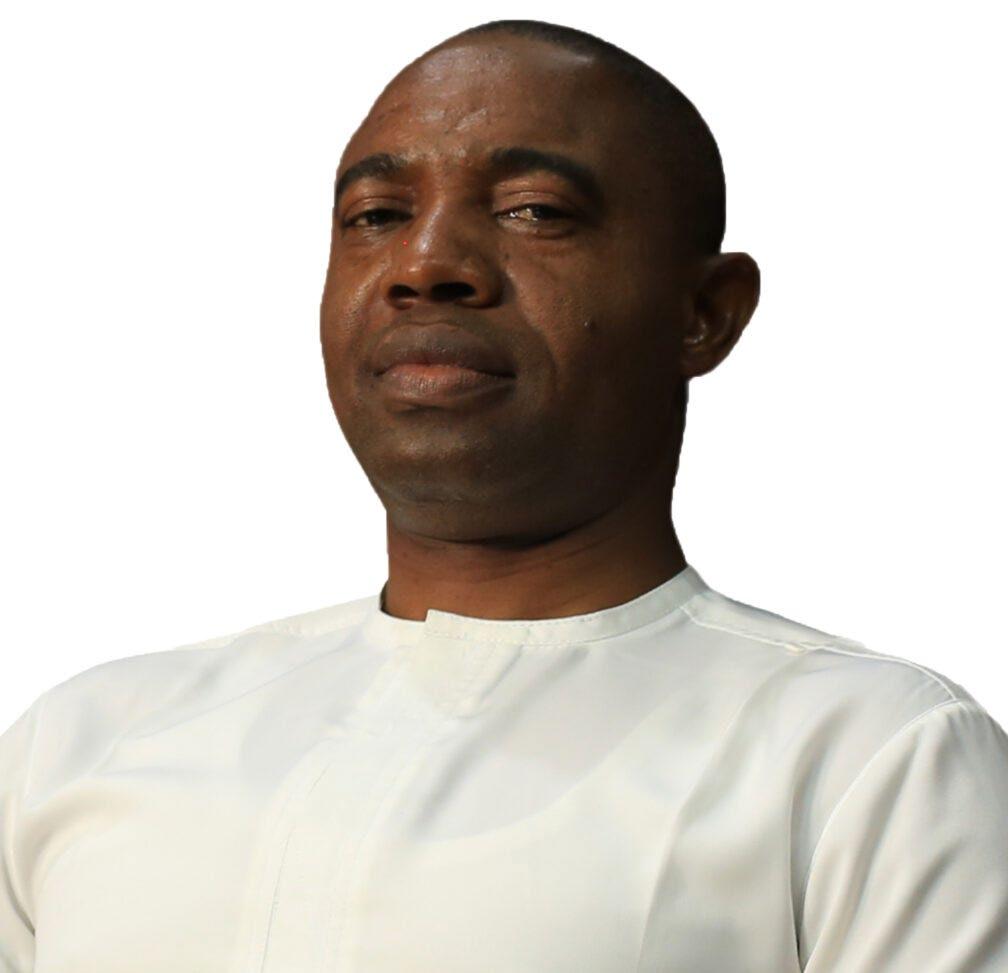
Below are the excerpts:
Can you provide an overview of your background and experience in the diagnostics and laboratory service industries?
It has been an interesting journey, which started well over two decades ago. I attended Johns Hopkins University and launched this brand in 2005. We started off from a small 3-bedroom flat in Lagos; today we have ground bigger; we now operate three branches in Imo State; and we came into Abuja during the heat of the COVID-19 pandemic. In all, I have been beaten by the rain and dried by the sun.
What is your vision and strategy for the company’s growth and development in the coming years?
My vision is all about making the best healthcare accessible to mankind. I am so passionate about healthcare. My passion for health is not unconnected to my desire not to see anyone go through the same pain my late grandmother went through before her painful passing. My late grandmother’s death was largely due to a wrongful diagnosis and inappropriate treatment of her ailment. I think I was 12 years old. I could not bear it! This passion has been my driving force in the business of Everight Diagnostic & Laboratory Services Ltd., whose vision is to be a worldclass medical diagnostic tourism destination with the capacity to serve the needs of Nigerians and clients from other parts of the world.
How do you ensure that the company stays at the forefront of technological advancements in the field of diagnostics and laboratory services?
Technological innovations have altered the way we do things in many ways. Technology is not just essential for day-to-day business processes; it can also help organisations grow when effectively utilized. So, we are always on the lookout for the latest technologies in the industry. At Everight Diagnostics, we strive to maintain our position at the forefront of technological advancements in the field of diagnostics and laboratory services. Our approaches involve strategic planning, continuous learning, research and development, collaboration, and a deep commitment to innovation. This approach ensures that we remain up-to-date with the latest technological breakthroughs in our organization.
How do you maintain a strong relationship with healthcare providers and ensure that the company is meeting their needs effectively?
Healthcare providers are major stakeholders in our business. They depend on the results of medical tests in order to provide precise medical treatment. Healthcare providers need accurate medical test results. Accurate tests are essential to healthcare management. So, our efforts are geared towards producing accurate diagnostic services and benchmarking worldclass standards. As we continue to meet their need for accurate medical diagnoses, the confidence the healthcare providers repose in us will become stronger and stronger, thereby cementing our relationship with them.
How do you ensure that the company maintains high-quality standards in its testing procedures and delivers accurate and reliable results to patients?
Quality is deeply ingrained in our operations at Everight Diagnostics. Our commitment to quality is reflected in our adherence to ISO 15189 standards, as established within our comprehensive quality management system. This system is the foundation of our practices, ensuring that we consistently deliver timely,
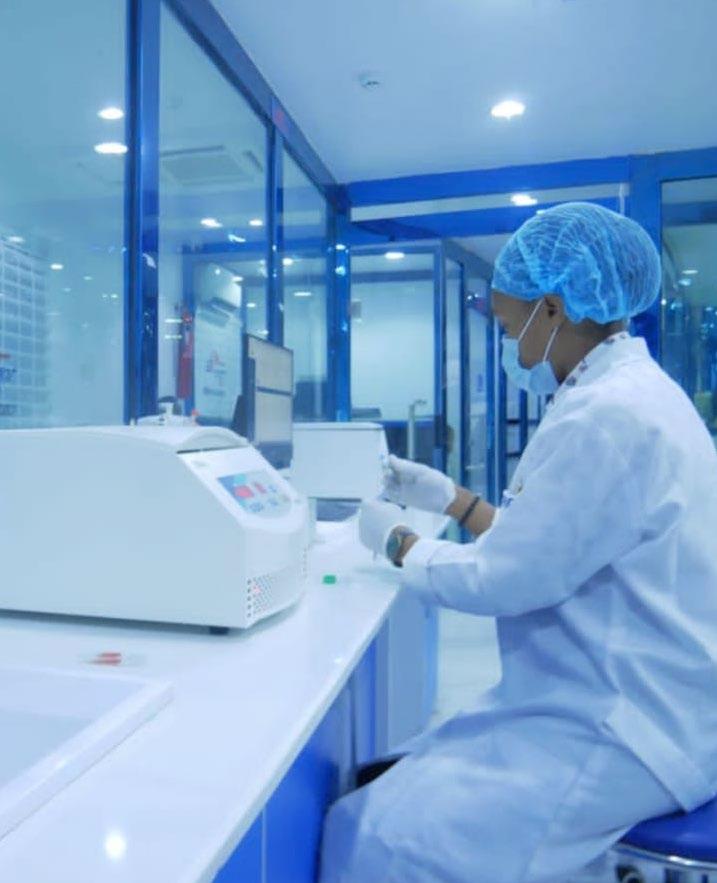
accurate, and reproducible results to our valued clients. To achieve this level of excellence, our quality control procedures are meticulously structured. This spans from internal quality control during the analytical phase to participation in external quality assessment programmes, both of which our departments are actively registered in. Our affiliations include registration with the Medical Laboratory Council of Nigeria (MLSCN), membership with One World Accuracy in Canada, and association with Bio-Rad in the United States of America. These partnerships empower us to monitor our practices, facilitating comparisons with the latest industry trends and techniques.
How do you approach the challenge of managing costs while maintaining high-quality services in a competitive market?
Cost and product differentiation are very important strategic positions for businesses that want to excel in a competitive environment. Costs are inevitable elements in every business; the more value you want to create, the more costs you incur. As much as medical
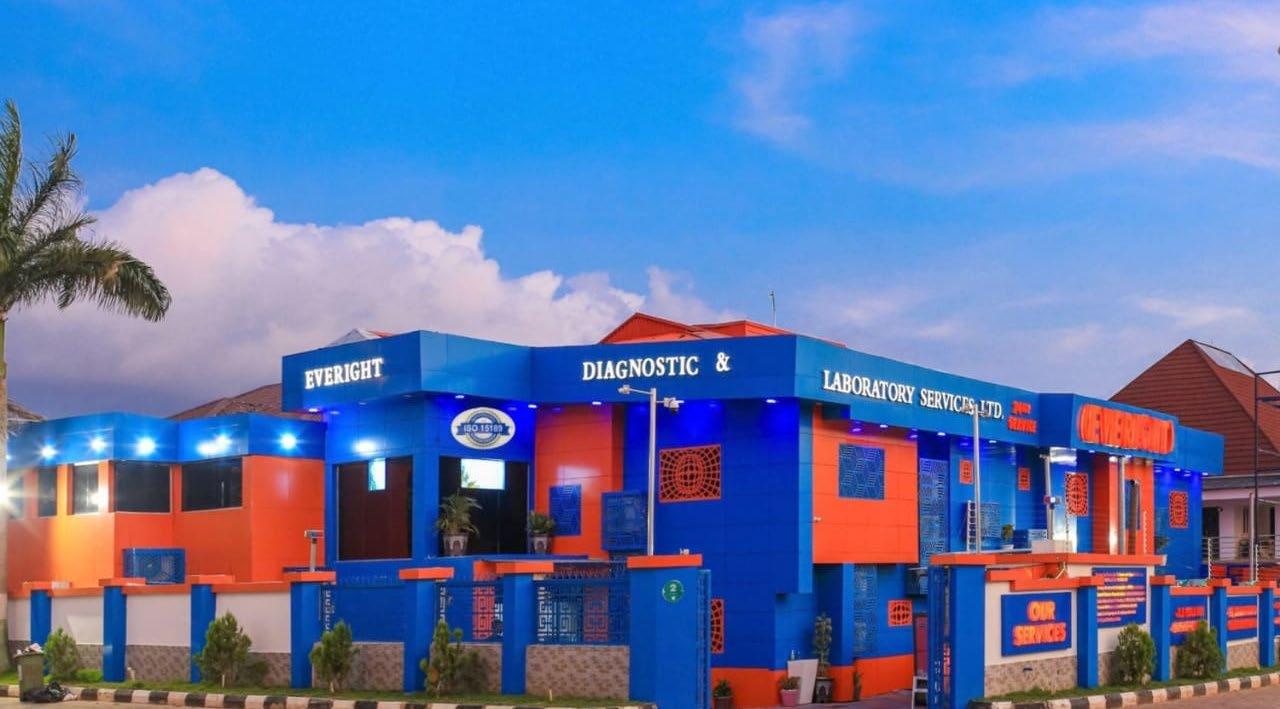
tests are needed for healthcare maintenance, the high poverty rate in the country has made people price-sensitive. However, there are a good number of people who know the quality of our higher services. They appreciate our expertise in medical diagnoses; they recognize the fact that our team is made of highly experienced professionals and that the use of modern technologies at our branches is expensive. To these people, what matters is the high quality of our services. So, it is a question of how we serve our clients in both the lowcost market and the premium-price market without getting stuck in the middle or making a strategic mistake. Our rich experience in this business has helped us in this regard.
What steps do you take to ensure compliance with regulatory requirements and standards in the diagnostic and laboratory service industries?
Firstly, I have ensured that we are duly registered with and approved by relevant bodies in the industry, such as the Medical Laboratory Science Council of Nigeria (MLSCN), Radiographers Registration Board of Nigeria (RRBN), Nigeria Society of Human Genetics, Nigeria Centre for Disease Control (NCDC), Department of Medical and Diagnostics of the Health and Human Services Secretariat, FCT, Abuja, Health Facility Monitoring and Accreditation Agency (HEFAMA), Lagos State, Ministry of Health, Imo State of Nigeria, etc., to offer medical diagnostic and laboratory services.
At Everight Diagnostics, we strive to maintain our position at the forefront of technological advancements in the field of diagnostics and laboratory services.
Secondly, all our actions are grounded in our quality management system approach. Annually, we renew our legal affiliations with regulatory bodies and subject ourselves to scheduled assessments. We consistently ensure that our practices adhere to guidelines that are regulated and accepted both nationally and internationally. Every department underwent assessment and successfully achieved ISO 15189 accreditation. We have consistently followed their policies and guidelines. While our practices align with international standards, we are equally committed to local regulations. Our quality policy statement explicitly highlights this commitment, demonstrating our dedication to complying with local regulatory requirements and guidelines.
How do you foster a culture of innovation and continuous improvement within the company?
We consistently monitor a range of quality indicators to uphold our Quality Management System (QMS), encourage innovation, and drive quality enhancements. These indicators, including Turnaround Time (TAT), client satisfaction surveys, internal quality control (IQC), external quality assessment (EQA), and reagent stock levels, enable us to stay attuned to QMS maintenance and avenues for improvement. Analysing these indicators illuminates our strengths and areas for improvement. Armed with this insight, we embark on continuous improvement initiatives to fortify weaker aspects.
Noteworthy accomplishments stemming from this approach encompass the creation of multiple sample collection rooms, curtailing waiting times; the acquisition of an HPLC machine to address disparities in haemoglobin electrophoresis results; and the reduction of turnaround time for malaria parasite tests. To cultivate this culture, we ensure our corporate vision and goals are consistently communicated to every team member. Client feedback holds substantial weight, propelling us to refine our methodologies. Everight’s dedication to empowerment is evident in fostering an ownership spirit among us employees. We are encouraged to voice suggestions, partake in decision-making, and solve problems.
In a nurturing work environment, we regularly train our team members, furnishing them with resources that nurture skills in innovation, problem-solving, and creative thinking. An implemented continuous improvement framework further amplifies our processes and activities. By identifying
areas necessitating improvement, we address process inefficiencies, customer complaints, quality concerns, and other pertinent matters. Data scientists delve into existing systems, processes, and data related to the problem, ascertaining root causes and influential factors. This analysis informs our quality improvement team’s brainstorming session, generating potential solutions. Potential solutions are meticulously assessed for factors like feasibility, impact, cost, and time. Prioritized solutions are chosen based on their potential to effectively address root causes. Detailed implementation plans are developed, outlining tasks, responsibilities, timelines, resources, and potential risks. This plan is executed with diligence, as tasks are assigned, progress is monitored, and adjustments are made as needed. Through this commitment, we consistently track key performance indicators to gauge solution success. This is a testament to our unwavering dedication and understanding that quality improvement lies at the heart of our quality system.
Can you share any recent initiatives or success stories that highlight the company’s commitment to excellence in the field of diagnostics and laboratory services?
In 2018, I came up with the idea of increasing our capacity to test for more infectious diseases, which my team bought into. By dint of hard work and commitment, we were able to develop a centre for molecular science and genetic studies at our branch in Owerri in the first quarter of 2019. This business expansion turned out to be a major saving grace in Imo State and Nigeria, in general, during the outbreak of the COVID-19 pandemic. I said saving grace because our molecular biology laboratory was the only—and it is still the only—molecular biology laboratory in Imo State with the capacity to offer COVID-19 PCR test service. This was a landmark in the annals of the medical diagnostic industry in the state.
It is important to emphasize that Everight had the capacity to test for coronavirus before the advent of a new variant called COVID-19. In fact, Everight Diagnostic & Laboratory Services Ltd. is the first private laboratory to obtain approval from the Medical
Quality is deeply ingrained in our operations at Everight Diagnostics. Our commitment to quality is reflected in our adherence to ISO 15189 standards.
Laboratory Science Council of Nigeria to offer COVID-19 PCR tests and one of the first sets of laboratories that were approved by the Nigeria Centre for Disease Control for realtime COVID-19 PCR tests.
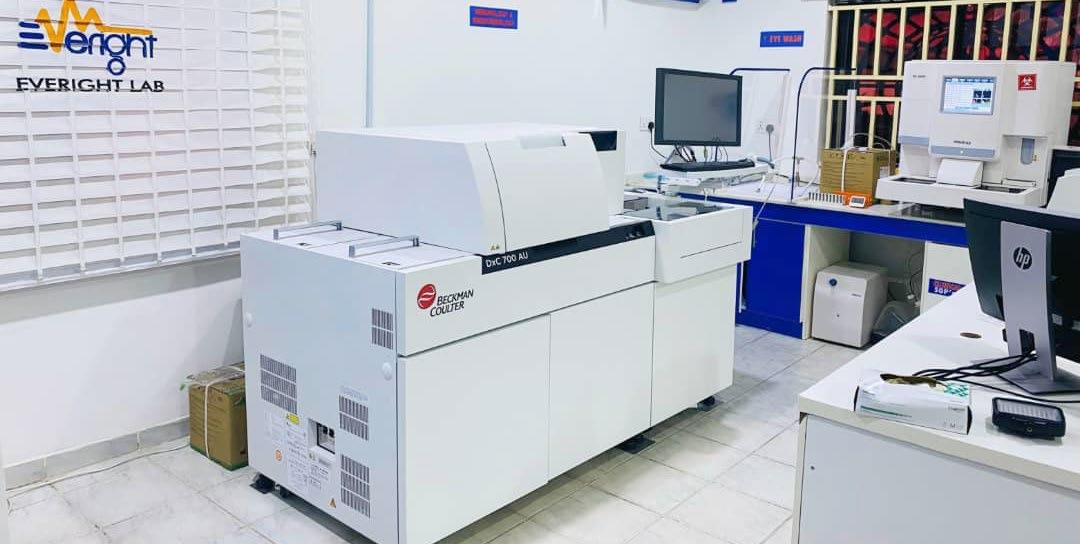
Given the requirement for COVID-19 PCR testing by different countries for international travelers and the need to reduce turnaround time and protect our PCR test result against forgery, we embedded barcodes on our result and developed LIS software that enables faster verification of results. Our secured LIS software and barcode verification system were adopted by the NCDC, and the NCDC recommended and ensured every laboratory in Nigeria that is listed for COVID-19 adopts our secured LIS software and barcode verification system. So, we introduced the LIS software and barcode verification system for COVID-19 test results in Nigeria.
Another success story is the ISO I5189 accreditation of our laboratory in Abuja. But this is not the whole story! Do you know that our laboratory at 2 Fez Street, Wuse 2, Abuja, is the only laboratory with ISO I5189 accreditation for all specialties in medical laboratory practice? Our histopathology department is the only ISO I5189-accredited laboratory in the country. In the area of medical imaging, our cutting-edge ultrasound scan, 64-slice CT, and 1.5 Tesla MRI machines place us at the top
end of premium service. So, we mean business when we talk about excellence in medical diagnosis.
How do you stay informed about industry trends and changes, and how do you incorporate that knowledge into the company’s strategic planning?
A| Staying informed about industry trends and changes and incorporating that knowledge into our company’s strategic planning is a core part of our approach. We maintain ongoing communication with our clients, partners, and manufacturers to remain connected to the pulse of the industry. Additionally, we actively organize and participate in knowledge-sharing workshops to stay up-to-date with the latest developments.
In our pursuit of continuous improvement, we also utilize surveys and assessments to identify areas where standardization and uniformity are needed, particularly in cases where disparities in results exist. Our commitment to our slogan, “Accuracy, innovation, and expertise,” is evident in all our actions.
To ensure that our entire team remains wellinformed and equipped with the latest insights and techniques, we facilitate step-down training sessions. Through these sessions, the knowledge gained from industry trends and changes is seamlessly integrated into our daily work schedules.
Ultimately, our dedication to staying informed and adapting to industry shifts aligns with our organizational values, allowing us to make informed decisions and strategically plan for the future.
Staying informed about industry trends and changes and incorporating that knowledge into our company’s strategic planning is a core part of our approach.

 By Meresia Aloo
By Meresia Aloo
On September 22, 2023, in the vibrant city of New York, amidst the skyscrapers that touch the heavens, the African Leadership Magazine bestowed a distinguished honor upon Mr. Everest Okpara. This momentous occasion was the Conference of Medical Diagnostics Excellence Award, an event that celebrated the extraordinary contributions of a man who has become a shining star in the realm of healthcare innovation. As we reflect on this remarkable accolade, we delve into the life and achievements of Mr. Everest Okpara, a name synonymous with excellence in medical diagnostics.
Mr. Everest Okpara’s journey in the world of medical diagnostics began with a vision and a commitment to excellence. In 2005, he founded Everight Diagnostic & Laboratory Services Ltd., a modest endeavor that has since blossomed into a pioneering force in the Nigerian medical landscape. His unwavering dedication, sheer hard work, and innovative spirit have been the cornerstones of this remarkable ascent.
Under his astute leadership, Everight Diagnostic & Laboratory Services Ltd. achieved milestones that have redefined medical diagnostics in Nigeria. In 2019, the company unveiled level-3 biosafety laboratories with molecular capabilities, setting new standards in the industry.
It became the first private laboratory authorized by the Medical Laboratory Science Council of Nigeria to offer COVID-19 PCR tests, and one of the initial labs approved by the Nigeria Centre for Disease Control for real-time COVID-19 PCR tests.
But Everest Okpara’s vision extended beyond the conventional. He transformed Everight into a hub of advanced medical diagnoses, introducing services like microarray and genotyping, a specialized BSL-3 facility (TBLab), genetic analysis, paternity testing, PCR, cutting-edge ultrasound scans, 64-slice CT scans, and 1.5 Tesla MRI tests. These services catapulted Everight into a league of its own.
Everest Okpara’s commitment to quality was unwavering. He ensured that Everight’s laboratories were equipped with state-of-theart equipment and staffed by experienced professionals. Best practices became the norm, resulting in the accreditation of Everight’s laboratory at 2 Fez Street, Wuse 2, Abuja, with ISO 15189:12 certification in clinical chemistry, haematology, microbiology, and histopathology. Notably, Everight’s histopathology laboratory in Abuja stands as the only accredited histopathology laboratory in Nigeria, a testament to Everest’s pursuit of excellence.
Today, Everight Diagnostic & Laboratory Services Ltd. isn’t just a healthcare provider; it’s a preferred medical tourism destination in Nigeria. It’s a one-stop-shop for medical tests, a place that provides valuable training opportunities for medical students, medical scientists, and researchers across the nation. Everest’s commitment to knowledge-sharing and skill development has furthered the field of medical diagnostics in Nigeria.
The path of Everest Okpara’s success has been lined with accolades and recognition. Everight Diagnostic & Laboratory Services Ltd. earned numerous awards, a testament to its outstanding services under Mr. Okpara’s visionary leadership. These accolades include the Innovation and Entrepreneurship in Medical Laboratory Service Delivery Award from the Medical Laboratory Directors of Nigeria (Imo State Chapter) and the Medical Diagnostic Leadership Award from Chukwuemeka Odumegwu Ojukwu University. Notably, Everight was nominated as the Most Outstanding COVID-19 Private Laboratory Company for the Year.
Yet, Everest’s journey extended beyond the laboratory. In 2017, he founded the Everight Healthcare Foundation, a charity organization dedicated to promoting health awareness and providing free healthcare to the less privileged. During the COVID-19 pandemic, he emerged as a beacon of hope, donating essential supplies such as food items, face masks, hand sanitizers, and over 100 handwashing machines to public institutions, banks, hospitals, schools, and more. The Everight Healthcare Foundation also sponsored free medical treatments to alleviate the pandemic’s impact on the less fortunate.
Mr. Okpara Everest’s academic journey reflects his commitment to excellence. He holds a B.Sc. degree in Industrial Relations and Personnel Management from Lagos State University, a certificate in Healthcare Management from Lagos Business School, and a certificate in Biostatistics and Epidemiology from Johns Hopkins Bloomberg School of Public Health, USA.
The recipient of the 2021 Africa’s Most Respected CEO Award from The Business Executive in Dubai, Everest Okpara stands as a highly organized CEO with a strong entrepreneurial spirit. His commitment to meeting stakeholders’ expectations, building lasting business relationships, and completing projects on time is exemplary. He embodies qualities such as confidence, creativity, resilience, emotional intelligence, transparency, and integrity. He is a visionary, an inspiration, a goal-oriented leader, and a transformational force who knows no limits.
In Everest Okpara, we find not just a leader in the medical diagnostics field but a beacon of hope, a symbol of innovation, and an unwavering champion of excellence. His journey is a testament to what can be achieved through dedication, vision, and a passion for making a difference in the world of healthcare. As he receives the Conference of Medical Diagnostics Excellence Award, we celebrate the man behind the success, Everest Okpara, a name that will undoubtedly continue to shine brightly in the annals of medical excellence.
Everest Okpara’s commitment to quality was unwavering. He ensured that Everight’s laboratories were equipped with state-of-the-art equipment and staffed by experienced professionals.
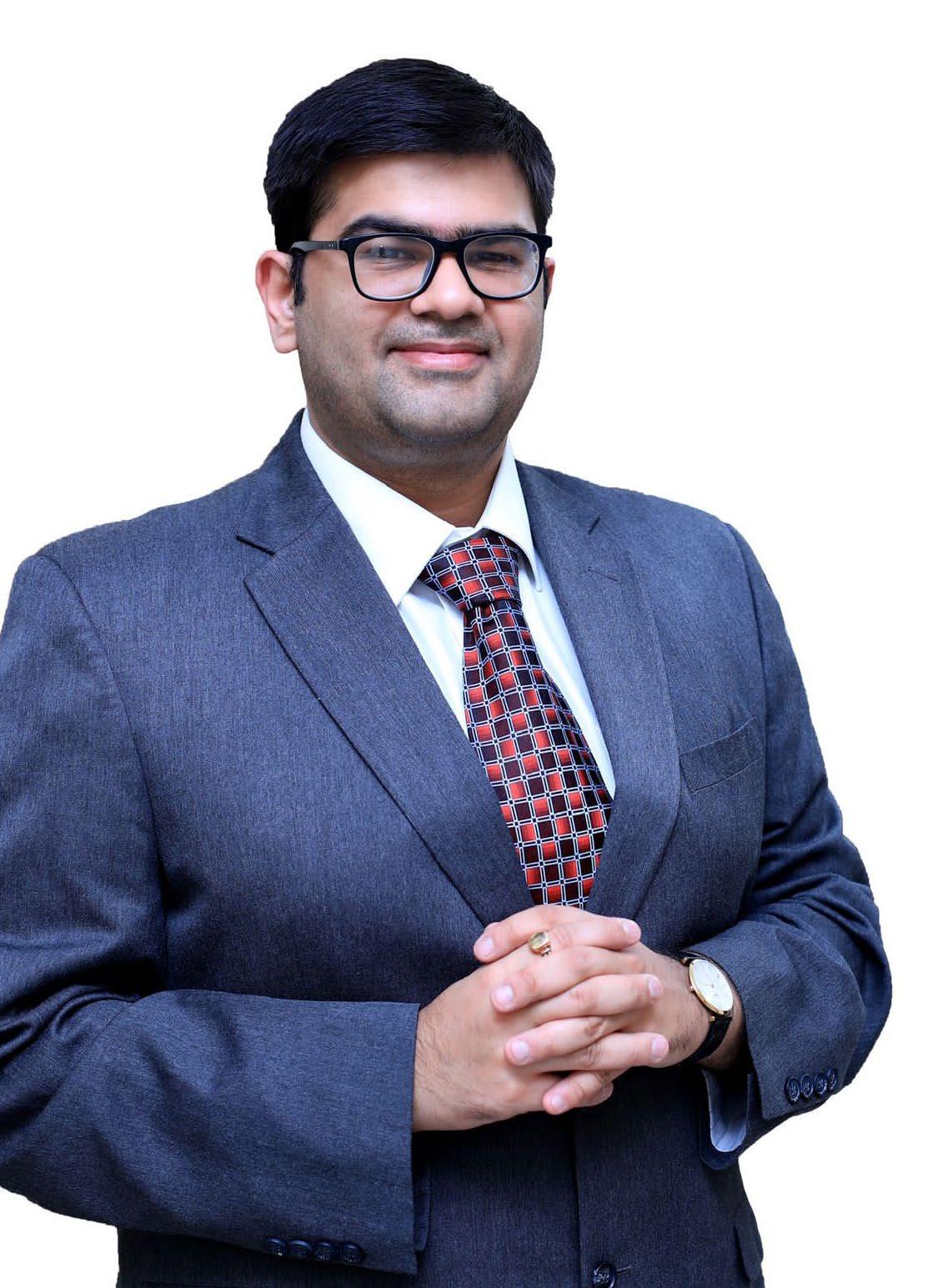
Dr. Nabhit Kapur, the Founder and President of Peaceful Mind Foundation and World Leaders for Mental Health (SDG), and the Representative of the World Fund for Development and Planning to the United Nations in New York, reflects in an enlightening interview on his journey towards becoming one of the world’s most influential psychologists. Dr. Kapur discusses his foundation’s mission to make mental health accessible and approachable, highlighting collaborations with civil society organizations and governments in Africa. He expresses deep pride in the
various awards and honors he has received throughout his career. Dr. Kapur sheds light on his impactful projects across education, agriculture, health, finance, and youth empowerment, emphasizing the importance of fruitful collaborations in Africa. Addressing investment concerns on the continent, he advises due diligence and personal networking. Dr. Kapur’s philanthropic endeavors are driven by his lifelong dedication to helping others and improving mental health perception. His leadership role in connecting African business leaders with the world has
strengthened global business ties. He offers encouraging words to aspiring African youth and shares his excitement about receiving the African Leadership Special Commendation Award, underscoring the motivation it provides to continue making positive contributions to society. Additionally, he hints at potential developments in Grenada, emphasizing the importance of fostering relationships between Grenada, India, and Africa.
(Excerpt)
Dr. Kapur, you have been celebrated as one of the world’s most influential psychologists, and your impact is felt across multiple fronts, including being the head of the department of health at the World Fund for Development and Planning and a successful mental health forum that empowers youth with psychologist-first aid training, among other achievements. Can you share with us the inspiring journey that led you to where you are today?
I started my journey in 2015 when I initiated my foundation called Peaceful Mind. The foundation aims to make mental health accessible and approachable to all. We expanded our wings and vision to various groups, people, and regions, especially in Africa, and collaborated with many civil society organizations, UNA, and governments. We had troubles and obstacles just like any other work organization, and we overcame them with our vision and commitment to make mental health accessible and approachable to all. We continue to move ahead and promote our vision.
Your excellence in your field has not gone unnoticed, as evidenced by the numerous awards you have received. Among these accolades, which do you consider to be your greatest achievements, ones that have filled your heart with immense pride and joy?
Well, honestly, all the awards I received are very dear to me, as I have been recognized at different points in time. So, my honors, like influential personality in Africa, peace ambassador in Africa, Kentucky colonel, etc., are all very close to me.
Your involvement in various projects throughout Africa, spanning education, agriculture, health, finance, and more, has undoubtedly had a profound impact on the lives of countless Africans, particularly the young generation. Can
you shed light on the transformative effects these projects have had, uplifting and empowering the youth to create a brighter future?
I had created many projects, especially in health (SDG 3), which aims at well-being specifically in mental health. The list is endless, but the main activities I established were in the youth mental health forum for discussions and involvement.
Secondly, as a believer in the continent myself, I have had the privilege to serve on various boards as an advisor, a non-executive director, and an executive for governments, IGOs, and civil society organizations. The main vision I still take with me when it comes to Africa is for more and more fruitful collaborations to have a win-win situation and not a one-sided relationship. I am not from Africa or of African descent, but I truly love the people, culture, food, and potential it has. It’s just a matter of learning, leadership, and executive decisions that need to be made. As my beloved continent continues to work for a better future, Africa’s investment landscape is often a subject of debate among foreign investors. As someone who has invested in the continent and believes in its potential, what compelling message would you convey to those who still doubt the safety and opportunities the African market offers?
Well, it’s true that investment has been very debatable in Africa and that some countries are at high risk. Many people or business entities want to enter the market and explore the opportunities, but they are not introduced by the right people and authorities. Most of them are subjected to “thugs” and corrupt practices that even the genuine players fail to expand. So my only suggestion to all the players is to simply do—not just believe in one source or mediator, but always do your own diligence and deliberations. Secondly, try to make your own network strong by visiting
Well, one word that I always say is never lose hope and always keep moving, even if you fall down again and again. The hard work definitely pays off. Don’t worry about age, time, or what people say; if you are convinced by your vision and dreams, just don’t stop.
the continent and not just sitting remotely and trying to do business. Physical interactions are a must for understanding the need, and moreover, your own horizons get wider. These I do follow, hence the chances of any mishap are reduced. And lastly, let’s not forget that these kinds of risks are everywhere.
Dr. Kapur, your selfless dedication to improving the welfare of people stretches back to your childhood and has remained steadfast throughout your life. Could you take us on a captivating journey through your philanthropic endeavors in Africa, sharing some heartwarming moments and experiences that have fueled your passion for making a positive difference?
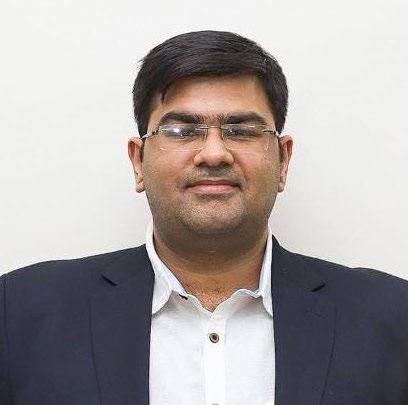
As a child, what I can remember and have a memory of is the helpful nature I had and still have. I reach out beyond my limits to help anyone without hoping for any results, but yes, I would definitely be available. I took up psychology in my education and carried it further with a vision to make mental health and its perception matter. I entered into formal international affairs when I reached out to the leaders of the world and explained that mental health is a critical element of society and that its scope is much more than clinical or diagnostic. I created the World Leaders for Mental Health, wherein we have nominated politicians on our advisory board from different countries to speak on mental health. Small projects like youth forums, Zoom sessions, etc. with every community help us connect at the grass-roots level.
As an active member who believes in Africa and its Diaspora, you play a vital role in connecting African business leaders with the rest of the world. How has your leadership strengthened these connections, leading to positive impacts on businesses and economies globally?
Leadership is all about making a change and how you can make a difference in your community. As you all know, my last visit to Africa was in 2017 to Malawi, and from that time on, the journey has continued until now. Many people say I do have the art of communication and networking, and I believe with this art I have managed to create a lot of change in people’s lives. I do bring some experience to business and the continent.
Success is a journey that requires persistence and determination. To the aspiring African youth who dream of becoming successful leaders, what heartfelt words of encouragement and advice do you have for them?
Well, one word that I always say is never lose hope and always keep moving, even if you fall down again and again. The hard work definitely pays off. Don’t worry about age, time, or what people say; if you are convinced by your vision and dreams, just don’t stop. Yes, listen to your mentors and stay on the right track.
Finally, Dr. Kapur, we are thrilled to know that you will be receiving the prestigious African Leadership Special Commendation Award during the International Forum on AfricanCaribbean Leadership (IFAL) in New York in 2023. What does this esteemed accolade mean to you, and how does it further motivate you to continue your incredible contributions to society? Also, we hear some news from Grenada coming soon; is that true? What would you like to say about that?
Well, firstly, I am really glad that I was nominated to receive this prestigious accolade and recognition from Africa Leadership Magazine. It shows the work doesn’t go unnoticed, and we all should strive to achieve more. This is a source of motivation too, as it gives a sense of responsibility that we are on the right path.
As far as Grenada is concerned, we have met officials and are looking forward to something positive coming up soon to facilitate relationships between Grenada, India, and Africa.
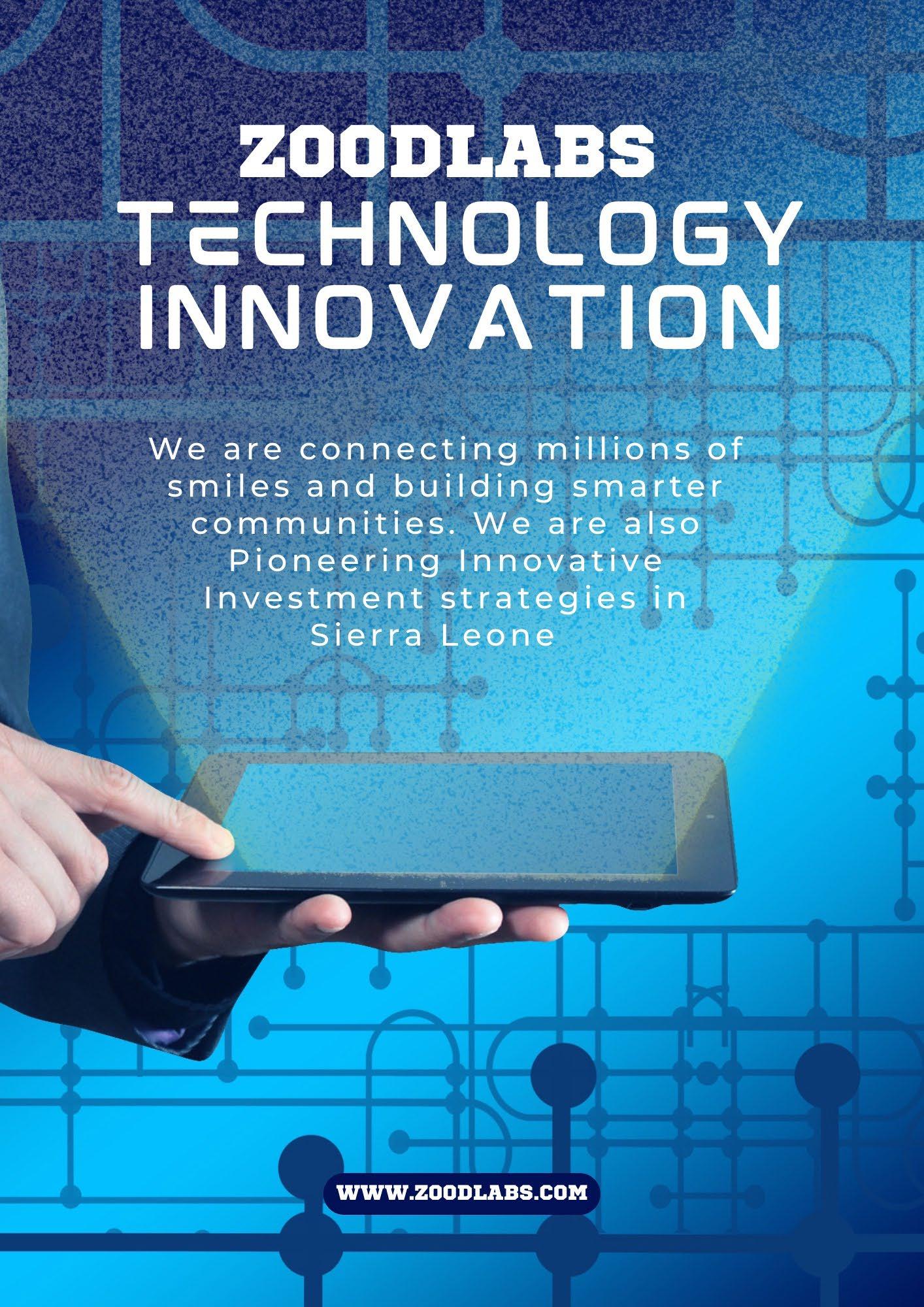
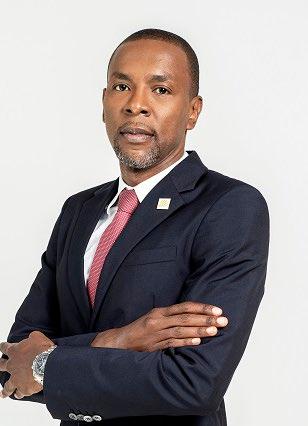
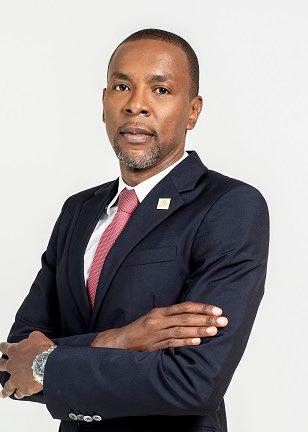
In an exclusive interview with African Leadership Magazine, Mr. Edson R. Dos Santos, Chairman and Chief Executive Officer of Etu Energias Angola, outlined the remarkable journey of his company under his leadership. Etu Energias Angola, the largest private Angolan energy company, has experienced significant growth, particularly since Mr. Dos Santos assumed his role in June 2020. Their transformation involved a renewed focus on safety, cost reduction, and efficiency, leading to impressive results such as a two-year accidentfree record, a substantial reduction in operational costs from $20 to $14 per barrel, and a remarkable turnaround from a $4 million loss in 2020 to a $182 million net profit in 2022. Mr. Dos Santos emphasized that the success was driven by the company’s people, who are considered their greatest asset.
Furthermore, Mr. Dos Santos highlighted Etu Energias Angola’s commitment to environmental, social, and governance (ESG) standards, their transition from an oil company to an integrated energy company, and their active involvement in local communities through social responsibility initiatives. Etu Energias Angola’s dedication to building schools, clinics, and social centers, along with their investment in solar energy and compliance with international standards, has enabled them to secure international financing for acquisitions worth over $1 billion USD. The company’s strategic vision is to become a premier integrated energy company, proudly African but operating at international standards, with a focus on renewable energy, growth in the African market, and continued investment in their workforce.
Mr. Dos Santos advised aspiring leaders to be bold and resilient, emphasizing that perseverance leads to success. He expressed his gratitude for receiving the “Special African Business Leadership Commendation Award” but credited the achievement to the entire Etu Energias family.
(Excerpt)
Mr. Dos Santos, can you provide an overview of ETU Energias Angola’s journey under your leadership, highlighting the significant milestones achieved?
Etu Energias is the largest private 100% Angolan energy company. With approximately 300 employees, we operate three (3) oilproducing blocks and one (1) under exploration; we are also partners in five (5) other oil blocks, all in Angola. This year, we proudly celebrate our 23rd anniversary. As a small consulting company in the early 2000s, we have been able to not only survive but also grow. I joined Somoil in June 2020, and since then, our focus has been to turn around the company. We established safety and protecting the environment as our number one priorities; then we launched a cost reduction and efficiency programme called EMAGRECE (lose weight)
in Portuguese that led us to re-negotiate 90% of all contracts and create more efficient ways of doing the same job with huge success, the key being that everyone participated with ideas and implementation. The third point was to increase production, but with a focus on “profitable barrels.” Low investment and quick returns with a payback of less than 6 months.
Results have been tremendous: (i) we have now gone more than 2 years without a serious accident; (ii) we achieved the lowest opex per barrel, going from $20/BBL to $14/BBL; (iii) we tripled our oil production; and as a result, we went from a -$4MUSD loss in 2020 to a +$182 net profit in 2022. At the heart of it all are our people, who are without a doubt our biggest asset.
Could you share an example of a specific project or initiative that you consider a gamechanger for etu Energies Angola and describe how it has positively impacted the company and the energy sector in Angola?
Tough question, but I would have to say our focus is on how we get good results: ESG (environment, social, and governance) and compliance. We are building an energy company using best practices adjusted for Angola. The way we achieve good results is as important as the results themselves.
Etu Energies is making significant efforts to improve the environment through flare reductions; for example, we converted all our diesel generators to natural gas and just started to install solar panels in our own operations. Our rebranding from Somoil to ETU Energias, which means you and me in Bantu, has everything to do with our change in vision from an oil company to an energy company.
We are very proud to be African, and we take social responsibility very seriously, focusing on health, education, and social integration. ETU takes a one-stop shop approach by going to a village and building a school, clinic, or small hospital, as well as a social centre or church. We make sure that we install solar panels to provide electricity to those facilities.
ETU Energias is local content; we are a product of Angolanization, and 98% of our workforce is Angolan. Giving back is part of our mission as a company, so we take social responsibility very seriously.
Building walls is not enough for us; we get involved in major maintenance and training, particularly teachers.
Etu created a Compliance and Processes area dedicated to making sure that we meet international standards. Since then, we have started doing more work with international companies such as BCG, Schlumberger, and White & Case, and we have been able to not only secure the Trace International compliance certificate but also improve our internal processes.
This step change has allowed Etu Energias to secure international financing for the acquisition of various assets from major energy companies such as Total Energies, GALP, Sonangol, and PTTEP in excess of $1 billion USD.
How have you strategically positioned ETU Energies Angola to address the evolving energy landscape in Angola and the wider region? Can you share any notable achievements in this regard?
Angola is blessed with natural resources, from hydrocarbons through sunlight to rivers, and I believe it has all the ingredients to become an energy hub in Africa. We took a difficult
decision to change our vision from an oil company (Somoil) to an integrated energy company (Etu Energias). We want to cover the whole spectrum. Today, we are becoming a really strong operator of mature assets, particularly onshore and shallow water, while expanding outside of E&P via downstream, lubricants, and now solar energy. There are now Etu petrol stations, Etu lubricants, and more to come.
We are setting up an agile, efficient, and ambitious energy company with an African DNA (flexibility) but operating with international standards—our people are at the heart of it!
Talking about oil and gas, talking about energy in Angola, there was only one local player in the past. Now there is a new energy company in Angola, ETU Energias, producing energy for the growth of the country. We are actively evaluating opportunities to expand into other African countries such as Namibia, Congo, EG, etc.
We want to excel as an integrated energy company in Angola first, and then going into Africa is only a natural step in diversifying our portfolio.
In your time as CEO, Etu Energies Angola has likely encountered various challenges. Can you discuss a particular challenge you faced and the innovative solutions your team implemented to overcome it?

I joined the company right in the middle of COVID, when the industry was under unprecedented crises that combined low oil prices with low demand. ETU was losing money and having poor safety performance, with the government threatening to take away our operating licence.
We went back to basics, starting with making safety our number one priority. We then focused on what we controlled since we could not control the oil price. We launched a cost reduction programme called EMAGRECE. Every dollar spent in the company was challenged: do I have to spend it now? Can I repair instead of buying new? We also focused on increasing not just production but “profitable barrels” by betting on new technology to increase production in our assets.
Results have been tremendous, making ETU a company with a net profit in excess of $180 million USD now. However, having the right
people and making sure you motivate them with a clear and simple vision makes a big difference.
Etu Energies Angola has played a role in the development of the local workforce and communities. Can you elaborate on any corporate social responsibility initiatives and their impact on the local community and workforce development?
ETU Energias is local content; we are a product of Angolanization, and 98% of our workforce is Angolan. As an individual, my scholarship to go and study in the UK came from the petroleum industry; my practical, on-the-job training came from the best IOC, ExxonMobil. We want to replicate and expand that.
Giving back is part of our mission as a company, so we take social responsibility very seriously, but being 100% Angolan, we do it with a slight twist. Our workforce comes from the villages, so we took a one-stop shop approach to prioritising health, education, and social inclusion. When we go to a village, we make sure we build or repair three things: a clinic, a school, and a community area or church. However, we do not stop at building walls. We get involved—ETU employees go there and train people on malaria, for example; we maintain the infrastructure. One good example is a school that had everything, but the teacher kept missing classes, and students were severely impacted; the issue was transportation, so we got a motorcycle for the school, and the problem was solved. We listen to the community, and our projects are fit for purpose.
Angola’s energy landscape is dynamic and competitive. Can you highlight how ETU Energies Angola has maintained its competitive edge and any market leadership achievements under your leadership?
By focusing on excellence without losing our agility. We decided where we wanted to play and really focused all our efforts on excelling as an onshore or shallow water operator, particularly in mature assets. We elevated the type of companies we collaborate with; this way, we are being challenged in a more professional manner and can develop our people faster.
However, we are also pioneers in Angola in terms of upstream M&A activity; we decided to go downstream when everyone was running away from it, including our own Etu lubricants.
We, of course, believe in renewables and took the bold step of starting solar energy projects as an independent Angolan company.
All this makes Etu Energias the largest and, in many ways, the first 100% Angolan private energy company.
Looking forward, what are your vision and key strategic goals for etu Energies Angola in the next 5–10 years, and how do you plan to continue achieving milestones in the ever-evolving energy sector?
Our vision is to make Etu Energias the premier integrated energy company. Proudly African but working under international standards.
We will continue to invest in hydrocarbons while continuously reducing our carbon footprint. Renewable energies will represent a bigger part of our portfolio—about 20%—but by maintaining our core, we want to produce the energy for Angola´s growth.
Expanding into other parts of Africa is also in our midterm plans.
We believe that to be successful, we need to continue to focus on people, which is our biggest asset, and their growth.
You are a successful leader in your field. What advice do you have for aspiring business and political leaders in your field and others across the nation and abroad?
Be bold and resilient. You´ll have ups and downs, but if you don’t give up, good things will come.
The “Special African Business Leadership Commendation Award” is an outstanding accomplishment. What does this honour mean to you personally?
Thank you very much! I´m grateful and truly honoured to receive this distinguished award. It is a great source of motivation to continue striving for excellence. However, I must say that this belongs to the Etu Energias family; I’ve got a great team, and this award is theirs.
Our focus is on how we get good results: ESG (environment, social, and governance) and compliance. We are building an energy company using best practices adjusted for Angola. The way we achieve good results is as important as the results themselves.
In a bold move that marks a departure from its colonial past, Mali has decided to remove French as an official state language. This significant step was solidified when Mali’s new constitution received overwhelming approval, with a staggering 96.91% vote of confidence in a June referendum. This article delves into the recent resistance demonstrated by several African countries in their complex relationship with France.
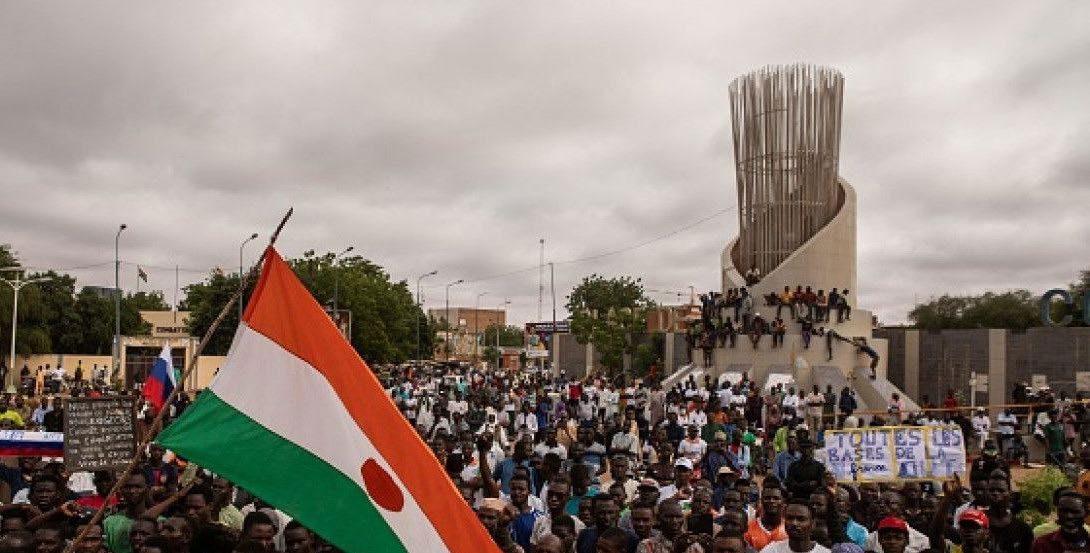
Mali’s transformation involves making French the primary working language while also officially recognizing the nation’s 13 national languages. Additionally, Mali will preserve 70 local languages, including Bambara, Bobo, Dogon, and Mintaka, all of which gained national language status back in 1982.
After enduring a decade of political instability and heightened jihadist insurgencies, Mali has come under the governance of a military junta. Colonel Assimi Goita, leader of the junta, spearheaded the implementation of the new constitution, ushering in the Fourth Republic in Mali. This shift away from the French language aligns with the growing anti-French sentiments in West Africa, driven by perceptions of military and political interference.
The relationship between Paris and Bamako has been fraught with allegations of military setbacks against jihadists and claims of political meddling. France concluded its nine-year military operation in Mali by withdrawing its remaining troops from the region to confront armed groups. In response, Mali’s military government mandated the suspension of all
non-governmental organizations (NGOs), including those funded by France. This decision was a response to Paris’ halt in development aid to Bamako, stemming from concerns about Mali’s alleged collaboration with the Russian private military company, Wagner.
Mali’s actions resonated in Burkina Faso, which announced the termination of a military agreement allowing French troops to engage insurgents on its soil. The rationale behind this move is rooted in the belief that the nation should be self-sufficient in defending itself. Burkina Faso grapples with an Islamist insurgency primarily led by affiliates of al Qaeda and the Islamic State, who have gained control over significant territories.
French President Emmanuel Macron acknowledged the decision but stated that he awaited further clarification from Burkina Faso’s transitional president, Ibrahim Traore. Macron characterized France’s delegation of defense responsibility to Burkina Faso as a natural progression and emphasized the one-month deadline stipulated in the military agreement.
The friction between France and African nations like Burkina Faso and Mali has prompted significant shifts. French troops departed from Mali as both Burkina Faso and Mali underwent transitions to military juntas, toppling traditional alliances and realigning security priorities. Macron has leveled accusations against Russia, asserting its “predatory” influence in troubled African countries. This comes at a time when France’s influence in its former colonies is on the wane.
The anti-French sentiment extends beyond diplomatic circles as public opinion in Africa undergoes a transformation. The aftermath of colonial history is being revisited and contested, especially by younger generations armed with digital access to information. Misinformation sometimes clouds this discourse, but the core criticism revolves around France’s perceived arrogance and historical role.
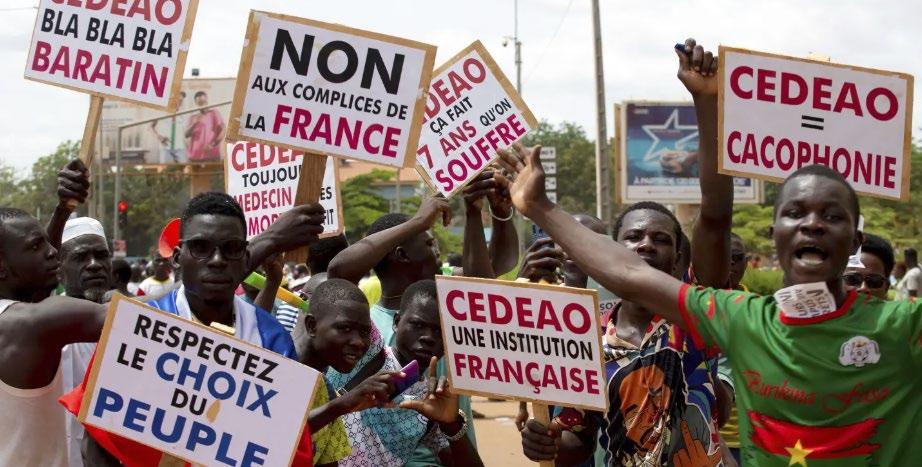
In Mali, where French soldiers battled armed Islamist groups for nearly a decade, France faces allegations of disrespecting the nation’s sovereignty. This sentiment is shared not only by activists but also by top officials, including the prime minister. France’s portrayal as a puppet master has been exacerbated by sanctions imposed by the Economic Community of West African States (ECOWAS), intended to pressure the junta to relinquish power.
In this ever-evolving landscape, activists have emerged as influential figures. Figures like Mr. Thiam, for instance, have utilized their social media platforms to draw attention to deteriorating security conditions and organize protests. The rise of activism has been accompanied by unconventional actions, such as burning the French flag and targeting French-owned businesses, reflecting a deeper resentment.
The withdrawal of French troops and the adoption of anti-France measures by African nations mark a pivotal moment in the diplomatic relationships between these countries and their former colonial power. As perceptions evolve and new voices emerge, the dynamics in Africa’s geopolitical landscape are undergoing a profound transformation.
In a remarkable and exclusive interview conducted by African Leadership Magazine, Ambassador Ivan Kholostenko, the Extraordinary and Plenipotentiary representative of Ukraine to the Federal Republic of Nigeria, sheds light on the boundless potential that lies ahead for the Ukrainian-Nigerian relationship. This candid discussion unveils the aspirations, history, and initiatives that underscore the importance of fostering robust bilateral ties between these two nations.
Ambassador Kholostenko’s optimism about the potential of Ukrainian-Nigerian relations resonates strongly throughout the interview. He emphatically states, “I believe that there is powerful potential in Ukrainian-Nigerian relations, and a long history of development awaits us ahead.” This assertion aligns seamlessly with the official stance of Kyiv, the capital and largest city of Ukraine. The strategic foreign policy of Kyiv is undeniably directed towards the African continent, with a special focus on Nigeria.
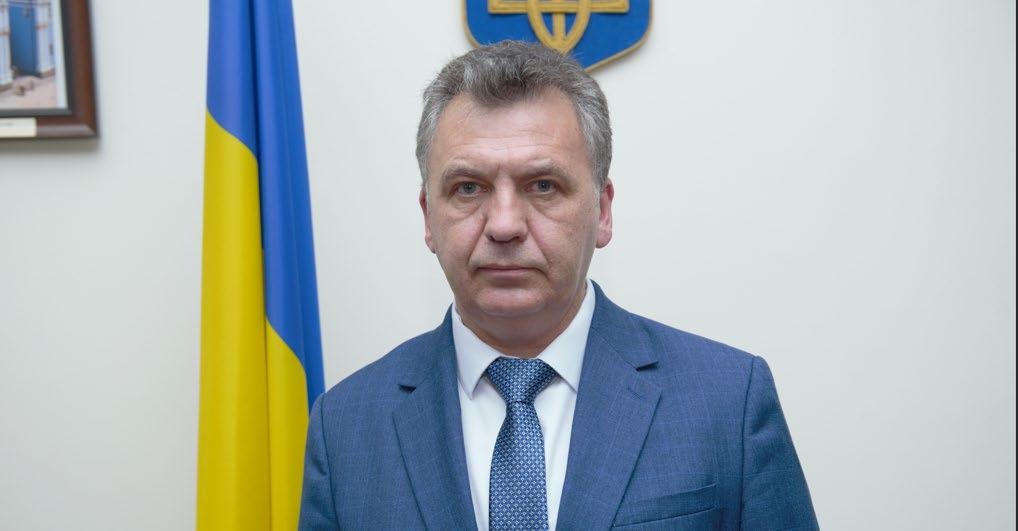
The essence of diplomatic relationships transcends borders, aiming to foster mutual benefits that drive political, economic, cultural, and scientific advancements while upholding peaceful coexistence. It is often said that international challenges can best be addressed through collaborative efforts. This sentiment is echoed by Ambassador Kholostenko, who acknowledges, “We could only solve our problems by cooperating with other countries.”
During the interview, Ambassador Kholostenko highlights a significant milestone in the history of UkrainianNigerian relations: Ukraine’s representation at the inaugural events of His Excellency President Tinubu. The Minister of Foreign Affairs of Ukraine, Dmytro Kuleba, attended these events, marking a watershed moment in the bilateral diplomatic ties between the two nations. This gesture underscores Ukraine’s commitment to nurturing relationships with Nigeria’s new administration and resonates as a message of respect and collaboration to all African nations.
With unwavering conviction, Ambassador Kholostenko expresses his belief in the comprehensive cooperation that lies ahead. He envisions a path paved with prosperity and mutual benefit for both Ukraine and Nigeria. As diplomatic relationships thrive on open communication and trust, the ambassador emphasizes the importance of devising strategies that establish trust and connections with leaders and citizens alike. His dedication to the role is evident as he reflects, “For any diplomat, observing positive results of his performance is the best reward possible.”
The interview also delves into the cultural intersections between Nigeria and Ukraine, illustrating the rich diversity inherent in both nations. Ambassador Kholostenko underscores the value of cultural exchange and its role in fostering deep understanding and friendship between countries. The globalized world presents an ideal backdrop for cultural interactions, educational exchanges, and tourism between Nigeria and Ukraine, promoting mutual understanding.
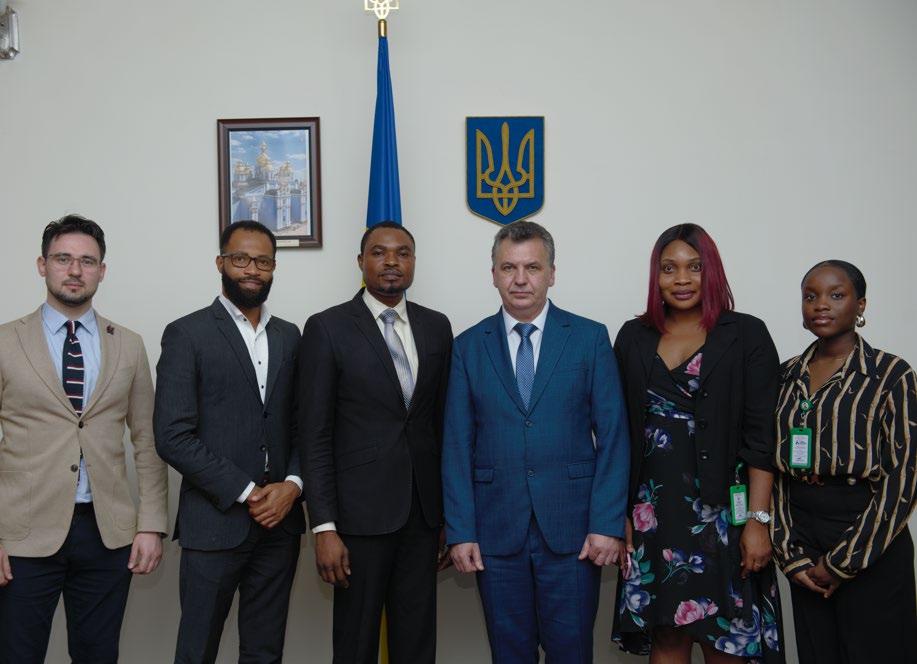
Ukraine, strategically positioned at the crossroads of Eastern Europe, boasts a vibrant tapestry of traditions, arts, and music. These cultural elements are deeply woven into the nation’s history, contributing to its unique identity. In parallel, Nigeria stands as a testament to cultural diversity, with over 250 ethnic groups that collectively create a rich amalgamation of art, music, literature, and folklore. This harmonious blend of cultures offers an incredible opportunity for both nations to appreciate and learn from one another.
Ambassador Kholostenko emphasizes, “Cultural exchange is a powerful catalyst for fostering understanding, appreciation, and friendship between nations. This flourishing partnership between Ukraine and Nigeria is not only enhancing cultural understanding but also paving the way for stronger diplomatic, economic, and social ties.”
The synergy between Ukraine and Nigeria in fostering cultural exchange holds the potential to strengthen diplomatic, economic, and social ties. Cultural understanding is a catalyst for
nurturing relationships and building bridges of cooperation. By encouraging artistic collaborations, educational programs, and mutual visits, the two nations can weave a tapestry of shared experiences and knowledge.
As Ambassador Kholostenko eloquently concludes, the flourishing partnership between Ukraine and Nigeria is not confined to the realm of culture alone. It serves as a stepping stone to a future of deeper diplomatic, economic, and social integration. The commitment to mutual respect, cooperation, and understanding between these nations sets a promising example for the rest of the world to emulate.
In conclusion, the interview with Ambassador Ivan Kholostenko resonates as a testament to the boundless potential of Ukrainian-Nigerian relations. As both nations embark on a journey of cooperation and understanding, their cultural exchanges and diplomatic efforts stand to shape a powerful and prosperous future. The story of Ukraine and Nigeria serves as a reminder that diplomacy and mutual respect can pave the way for shared development and success on the global stage.
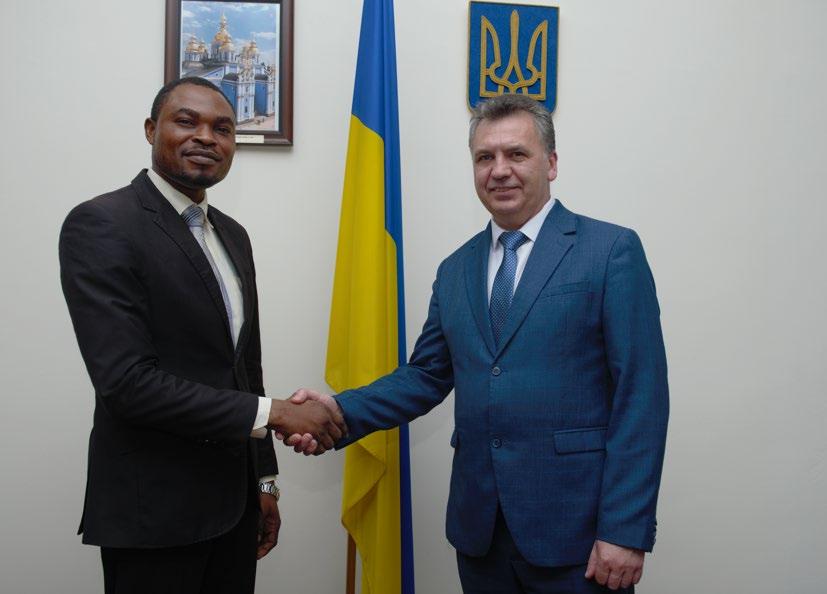
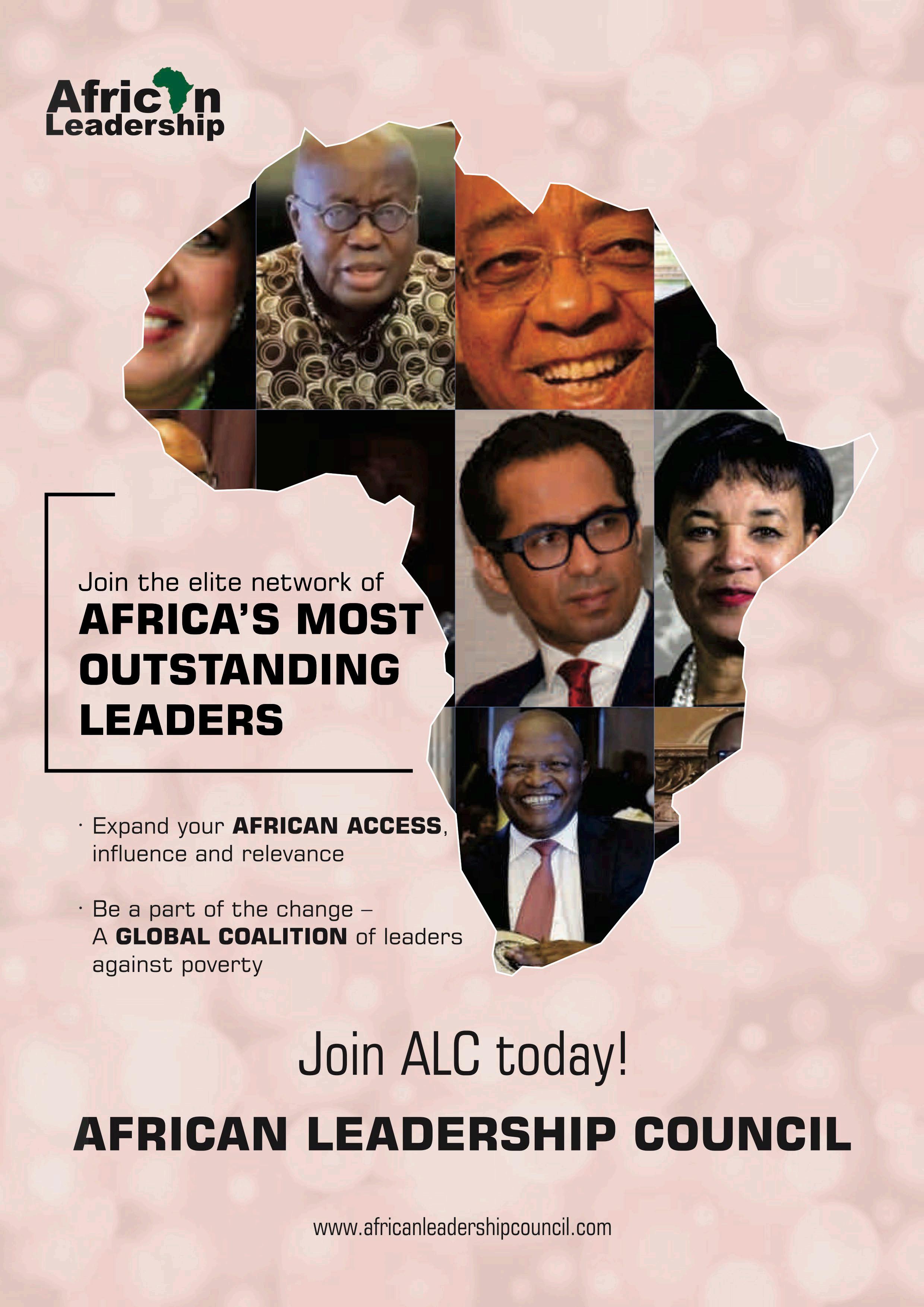
Here are some of the remarkable achievements and milestones that have been accomplished under the leadership of one of Africa’s influential leaders, Mr. Dieudonne Kasembo Nyembo. As the head of GECOTRANS SARL, this visionary leader has implemented various initiatives that have had a positive impact not only on the company but also on Congolese society as a whole.

In this exclusive interview, the visionary leader takes us through his journey of success and imparts valuable advice to emerging African business leaders.
Excerpt
Q: Your company has achieved significant advancements and progress under your leadership. Could you kindly share some of your proudest achievements and highlights that have led to these successes?
A: Under my leadership, our company has achieved diversifications that have addressed the real needs of Congolese society. These include:
- Investment in a 3-hectare container park aimed at alleviating congestion at the Matadi Seaport, a transit port on the Congo River. While relatively small in size for such a vast country, it plays a critical role in reducing additional costs caused by ships anchoring for extended periods due to congestion, such as containers being blocked in transit at the port of Pointe Noire.
- Investment in the MAVUMA Asphalt Sand Bitumen Manufacturing Plant project. This innovative venture enables the Democratic Republic of the Congo to produce its own bitumen for improving its road infrastructure. Given the DRC’s size, interconnecting its various cities is vital.
- Investment in a 99.99% crude gold merchant gold refinery unit, CONGO GOLD RAFFINERIE, located in the South Kivu province.
Q: You are an influential leader in the African business environment. Could you share some of the techniques you have employed to ensure growth and development at GECOTRANS SARL?
A: My primary technique for success has always been my personal commitment to the company’s operations. Additionally, I prioritize putting my staff at the center of business development, ensuring they have a conducive work environment. Building and maintaining our reputation and credibility is essential to garner support from banks and financial institutions.
Q: You have been selected to receive an exclusive award for excellent Leadership in the United States of America, New York. What does this mean to you, your team, the company, and the nation?
A: This award is a source of immense pride and motivation. It acknowledges the dedication and seriousness we bring to our work. Being recognized among African leaders positions us favorably in
the global market, where we already collaborate with international partners. This award will also motivate my team, fostering a sense of pride in their great teamwork.
Q: Business environments are challenging worldwide. What major challenges have you faced at GECOTRANS SARL, and how have you mitigated these difficulties to achieve the extraordinary success that is evident today?
A: We operate in a challenging political environment with armed conflicts in several regions where we have vested interests. To address these challenges:
- We develop specific strategies tailored to each environment, relying on strong interpersonal relationships and the courage of our employees.
- The seriousness and professionalism we exhibit reassure our customers and partners. We also incorporate general information into our strategies.
Q: Your corporate social responsibilities and sustainability efforts at GECOTRANS SARL are commendable. What drives you in this regard, and could you share some of the projects you have undertaken for the benefit of local communities?
A: Our driving force is our commitment to local communities. We place great importance on benefiting these communities. In many of our projects, particularly those in remote areas like MAVUMA, we engage the local workforce, involving them in the development of their communities.
We initiate social projects in various localities where our offices are situated, such as constructing schools and providing public lighting using solar panels.
Q: The award you are set to receive in New York is part of an International Forum on African-Caribbean Leadership. What advice do you have for future entrepreneurs and aspiring business leaders seeking to make a difference in their countries?
A: My advice to future entrepreneurs and business leaders is to:
- Have a deep understanding of the industry they wish to enter, ideally aligning it with society’s genuine needs, and develop a passion for it to deliver their best.
- Prioritize integrity and commitment to ensure they maintain a positive reputation, which, in turn, garners support from various stakeholders.
